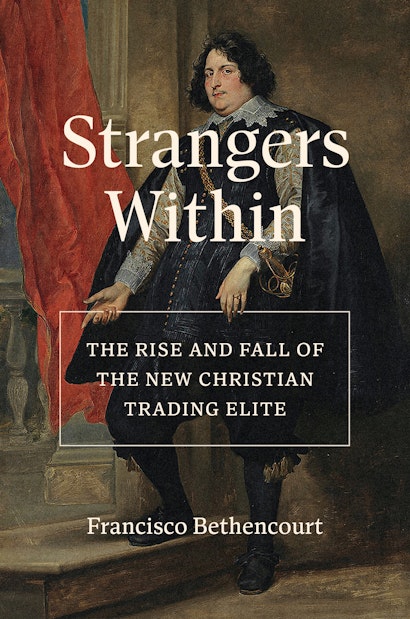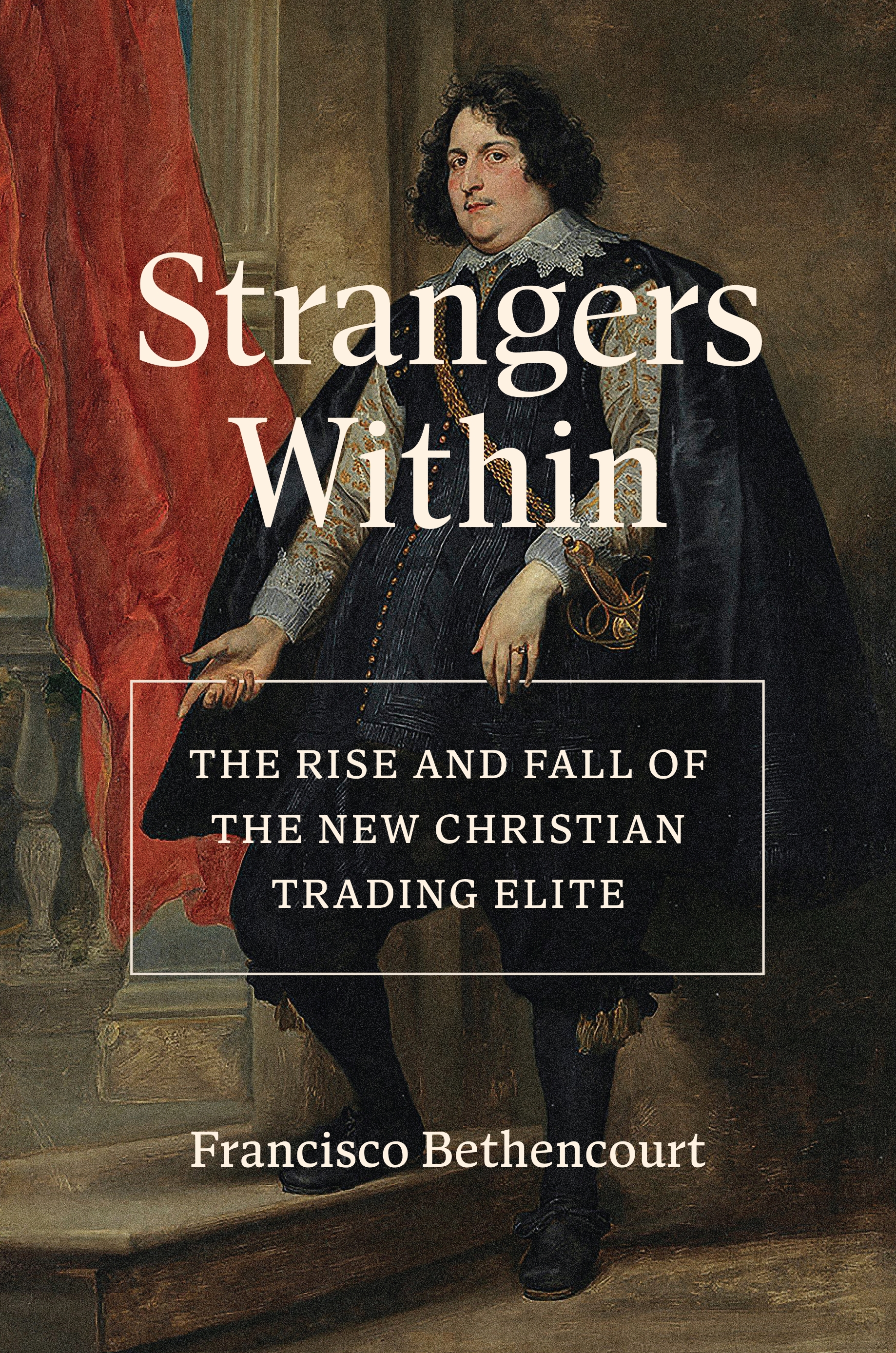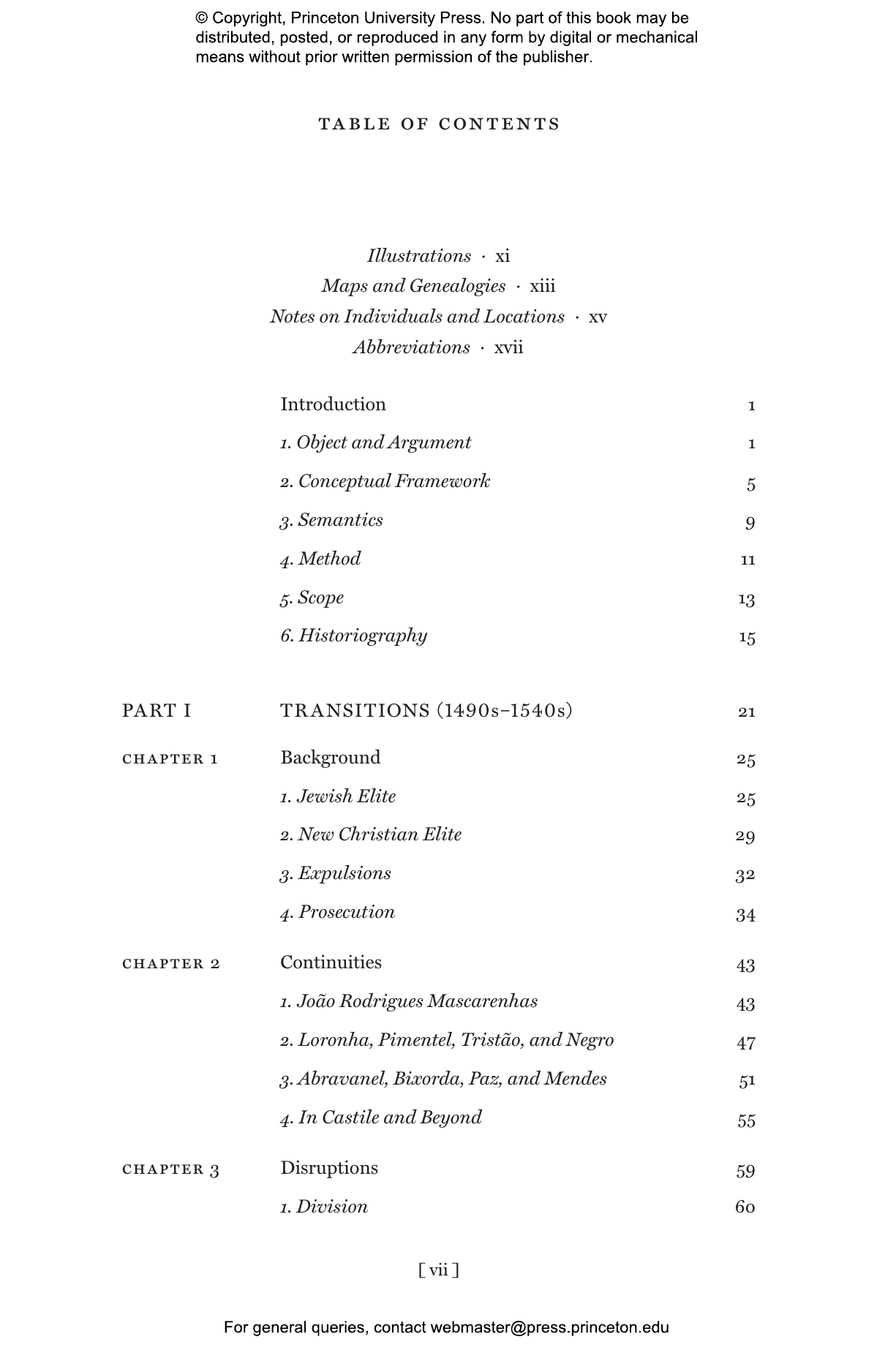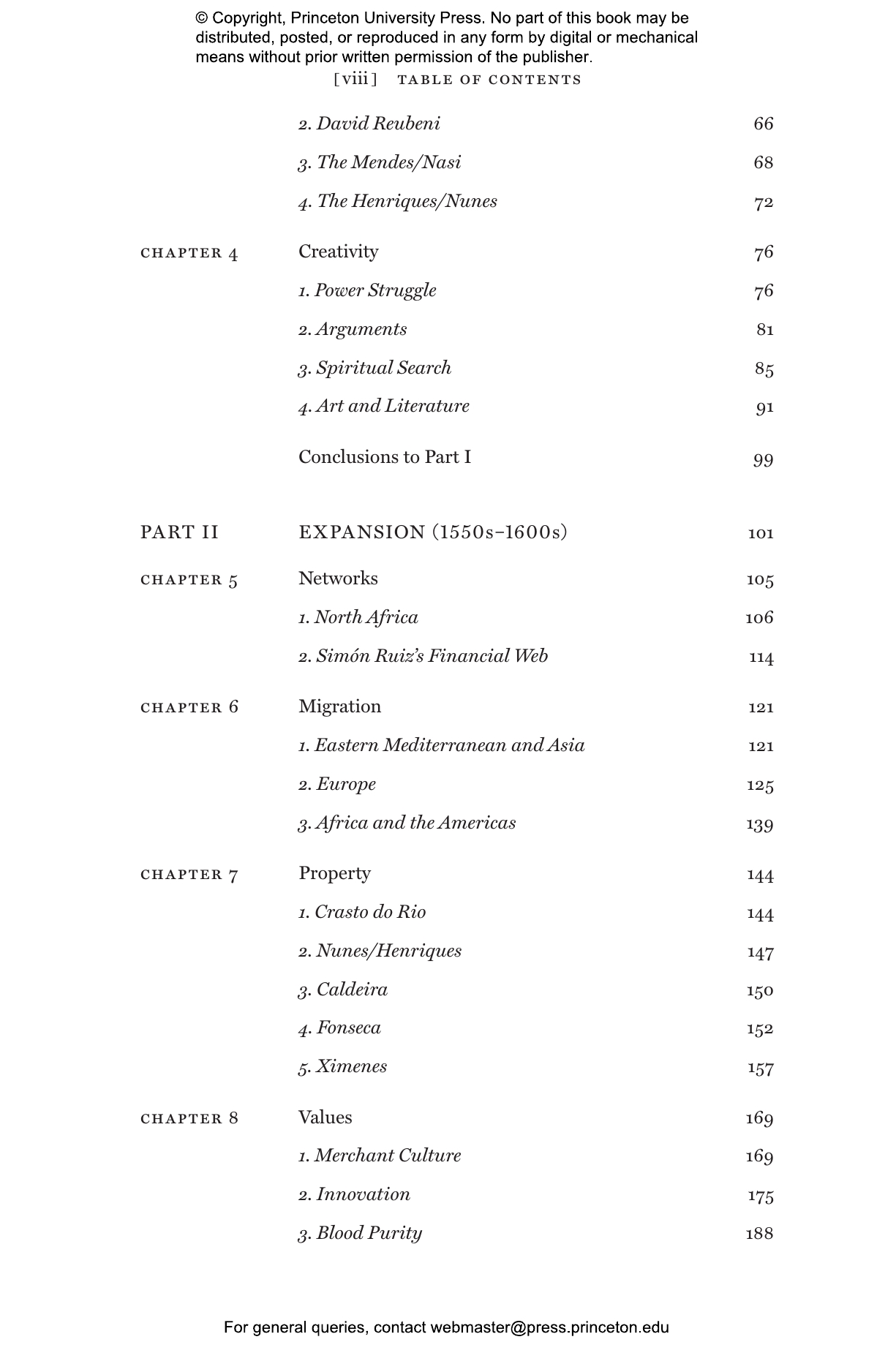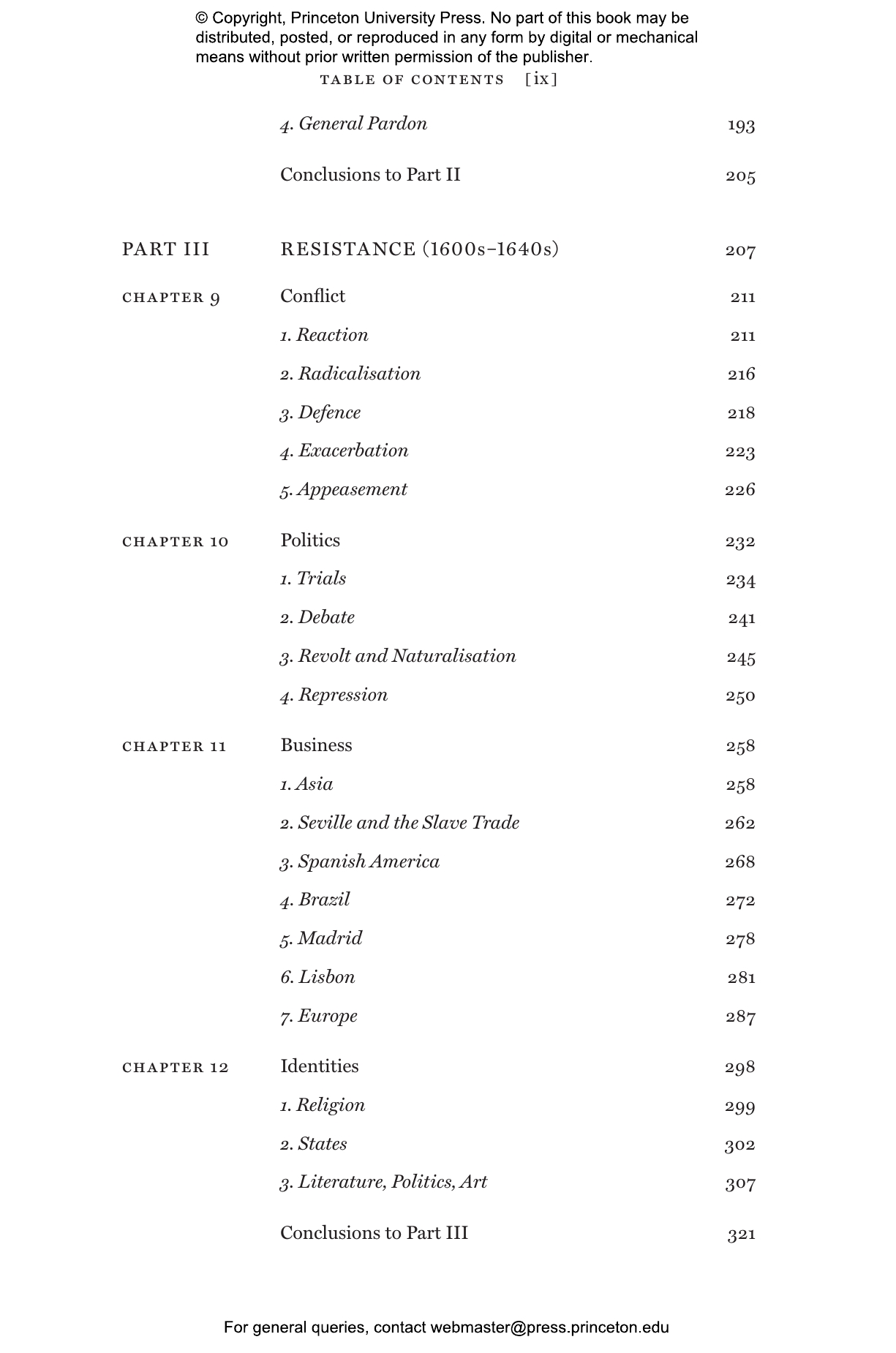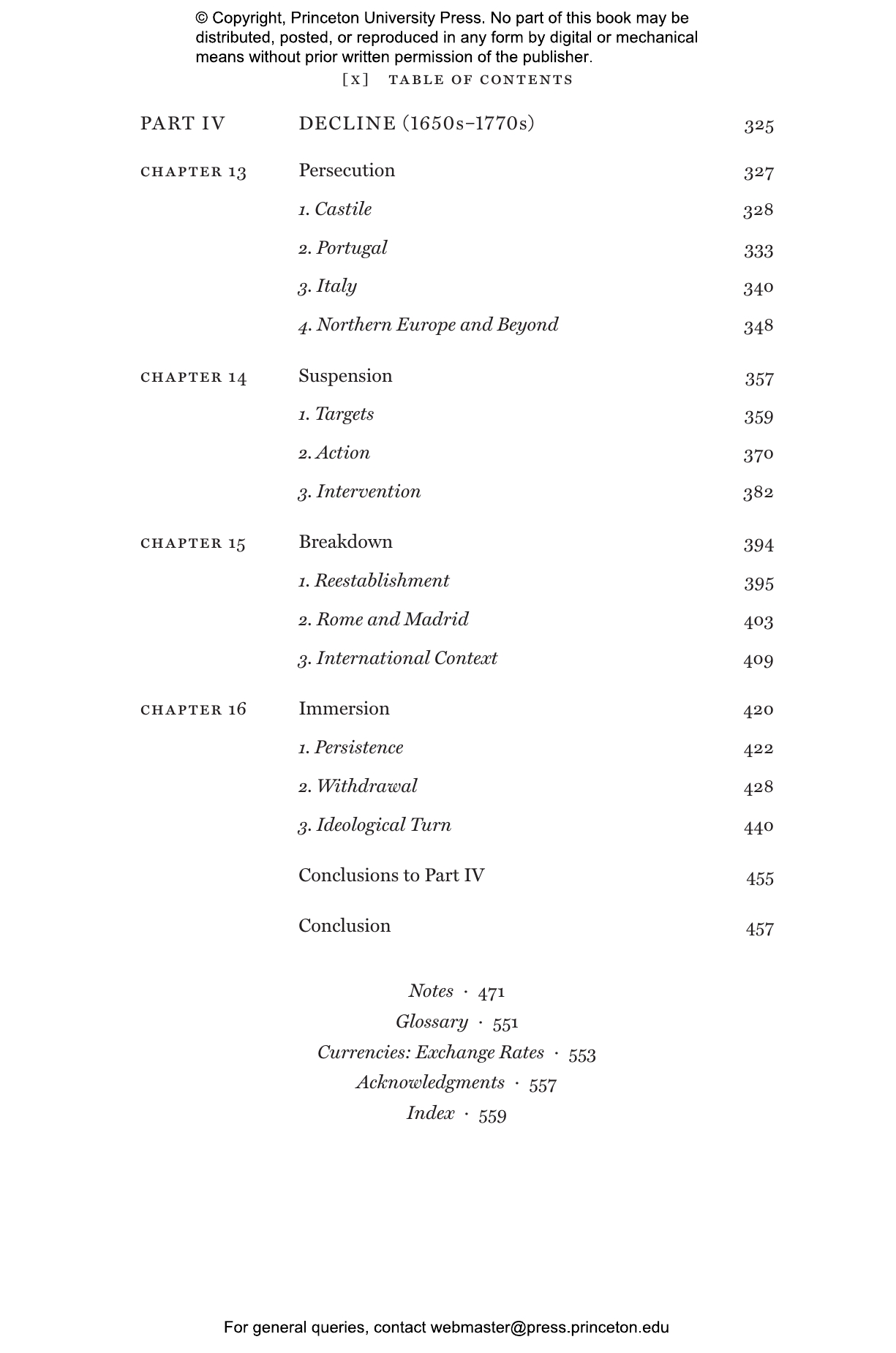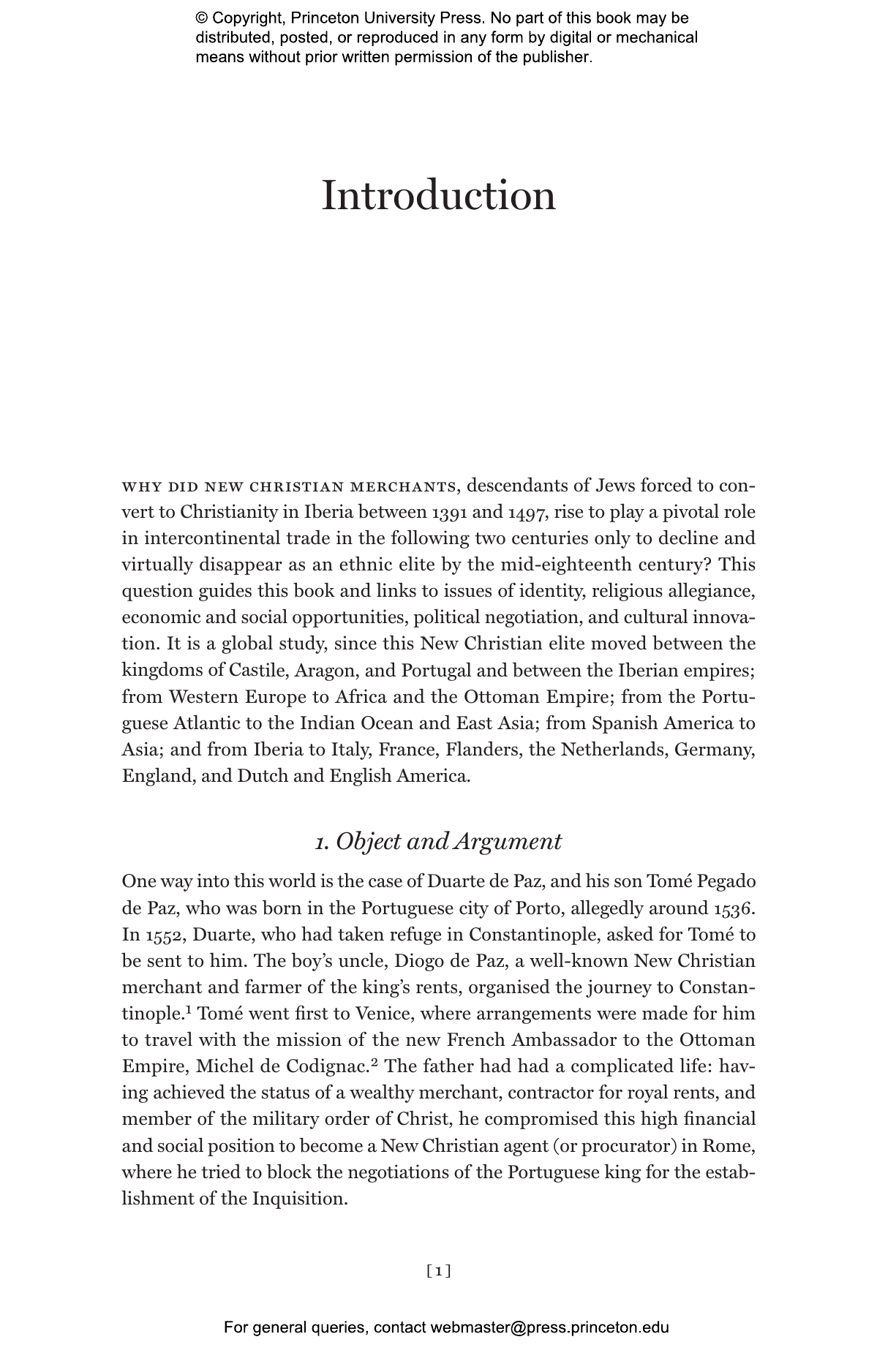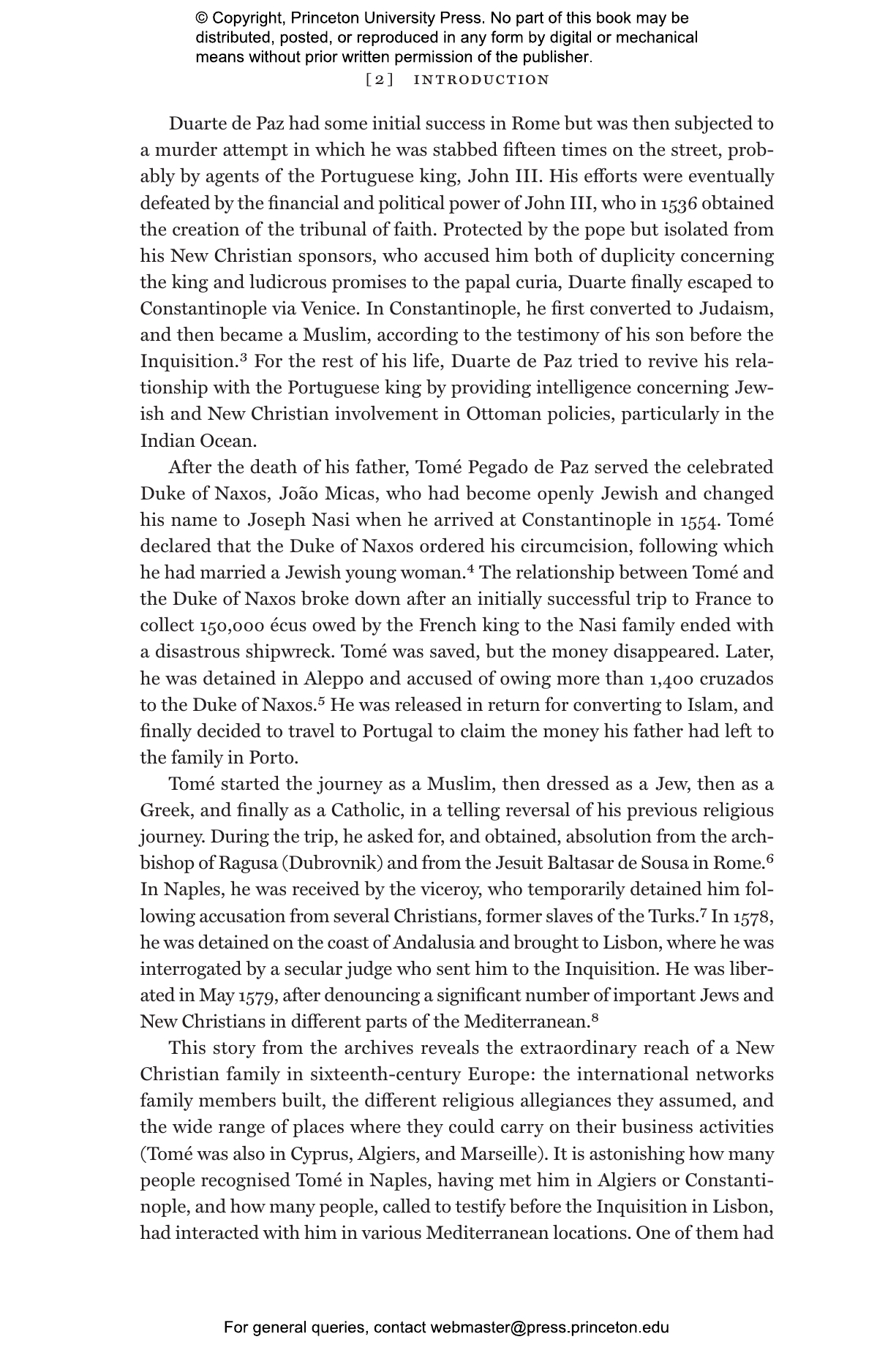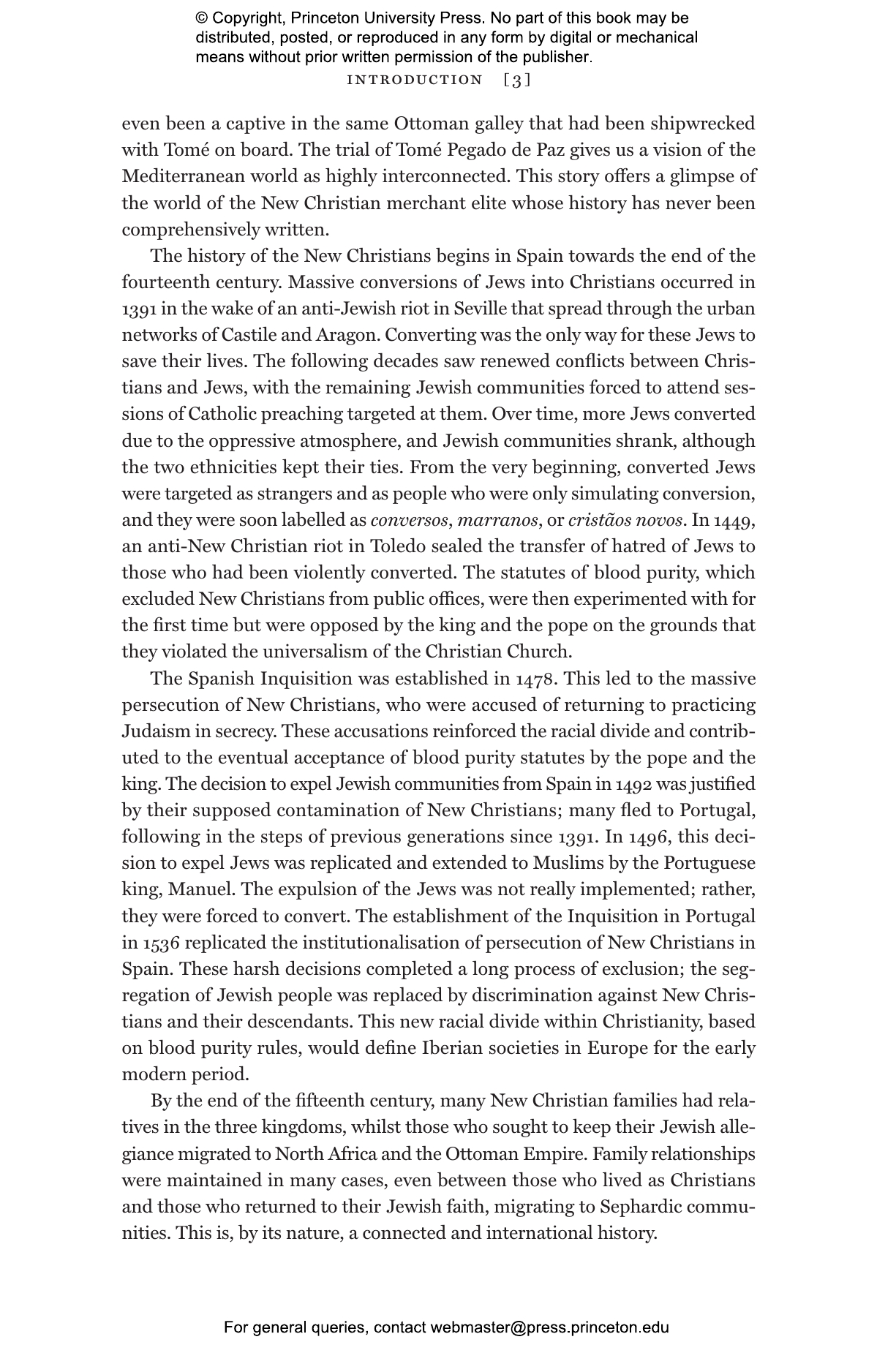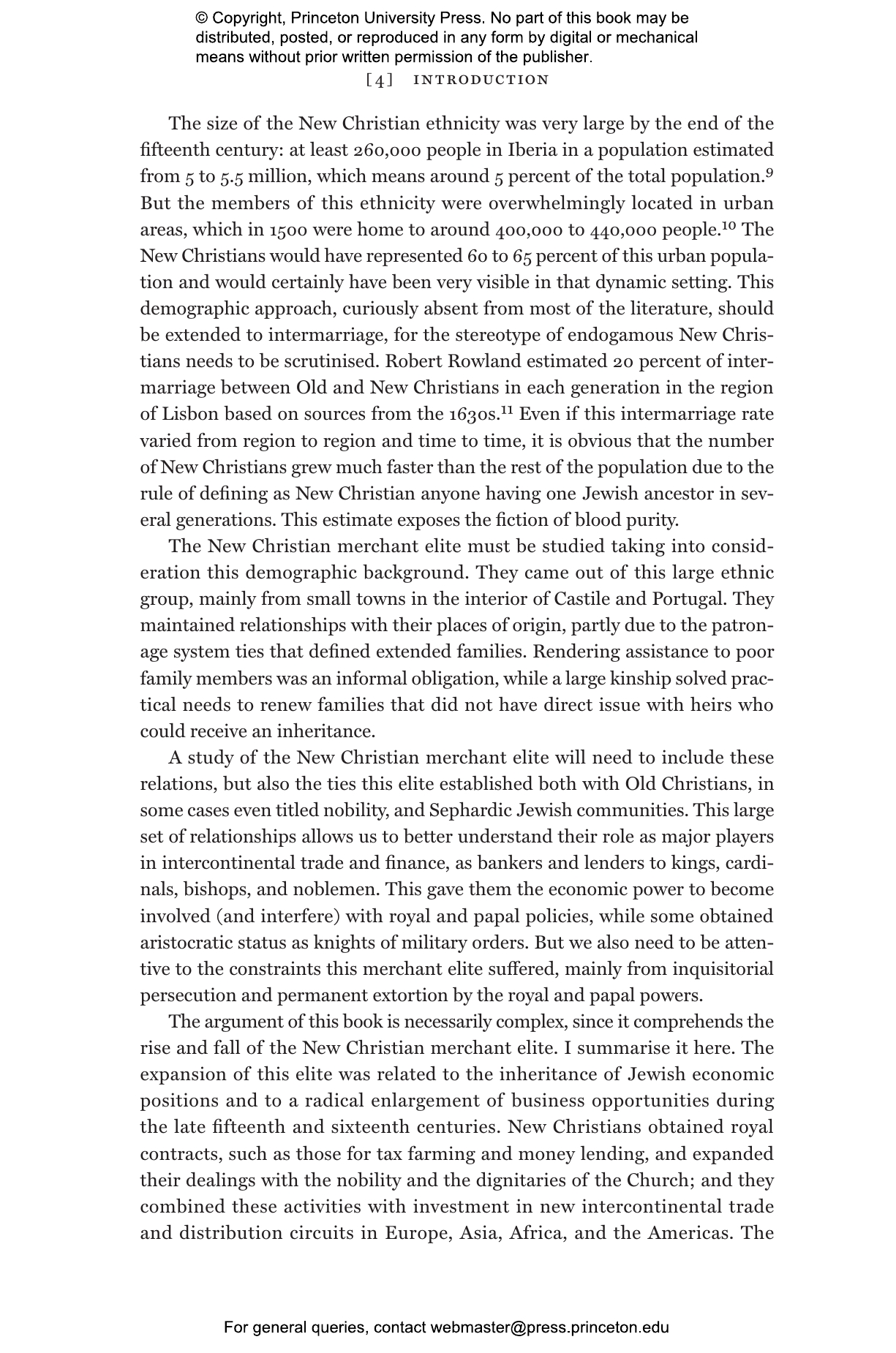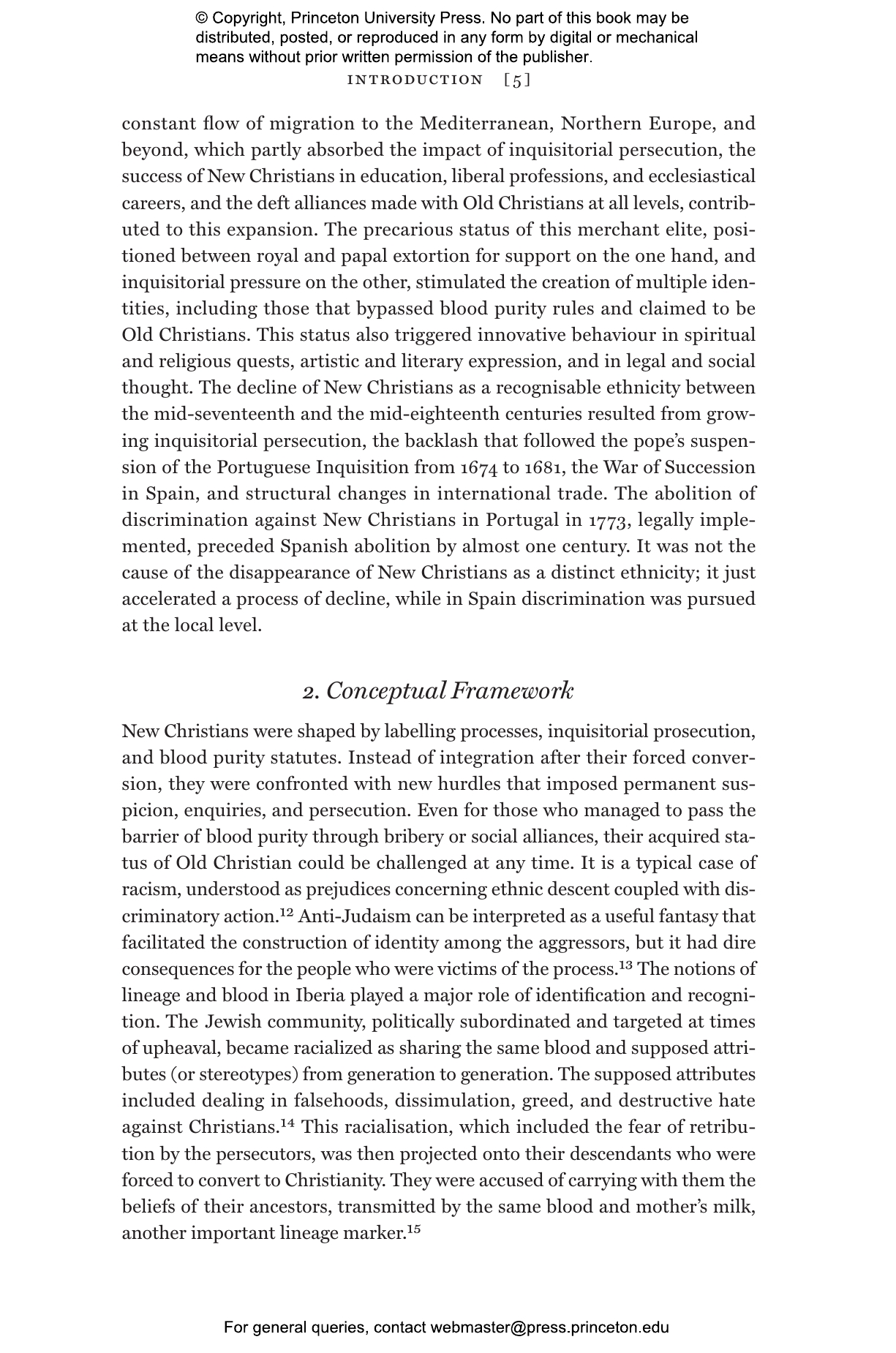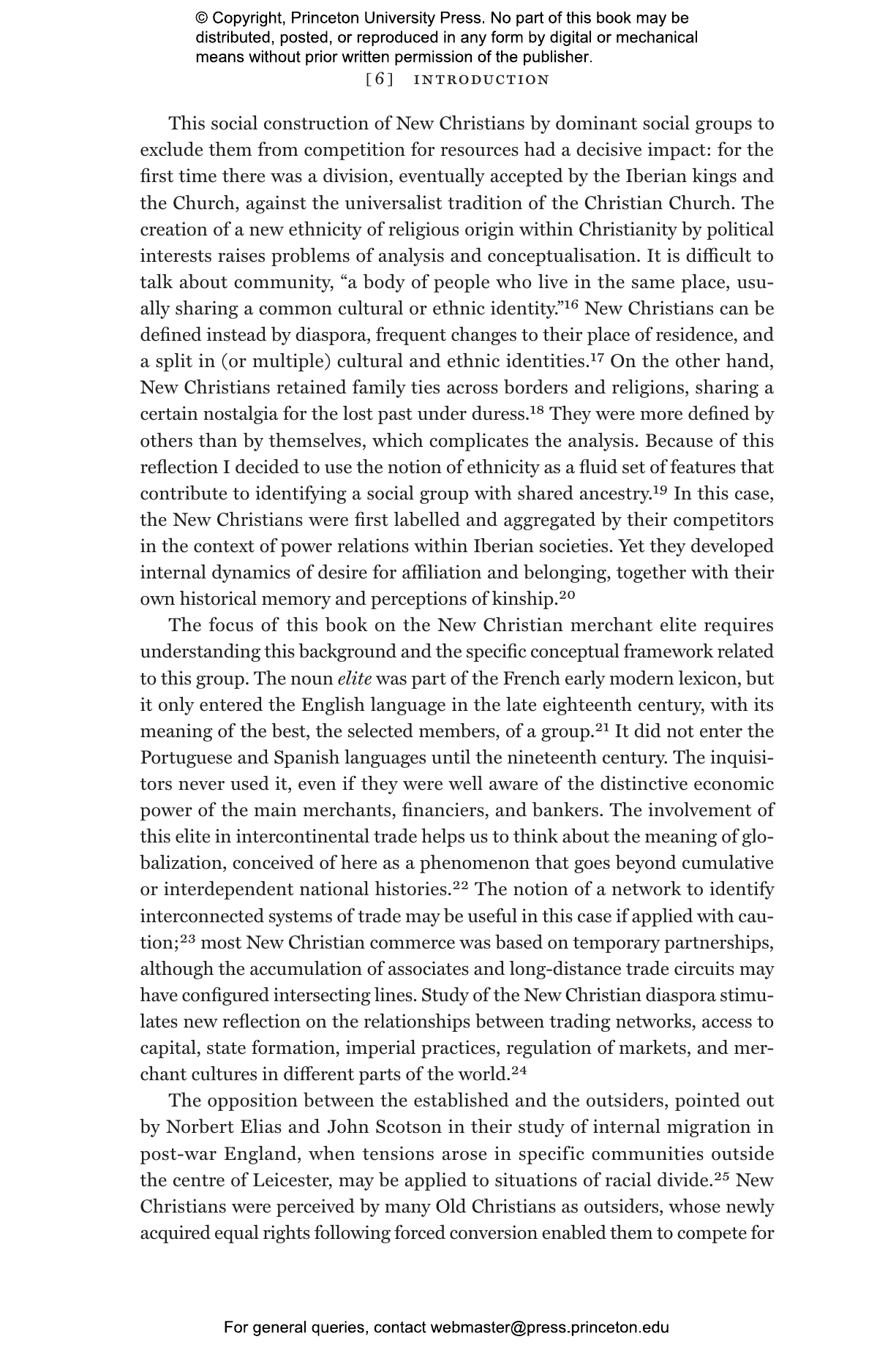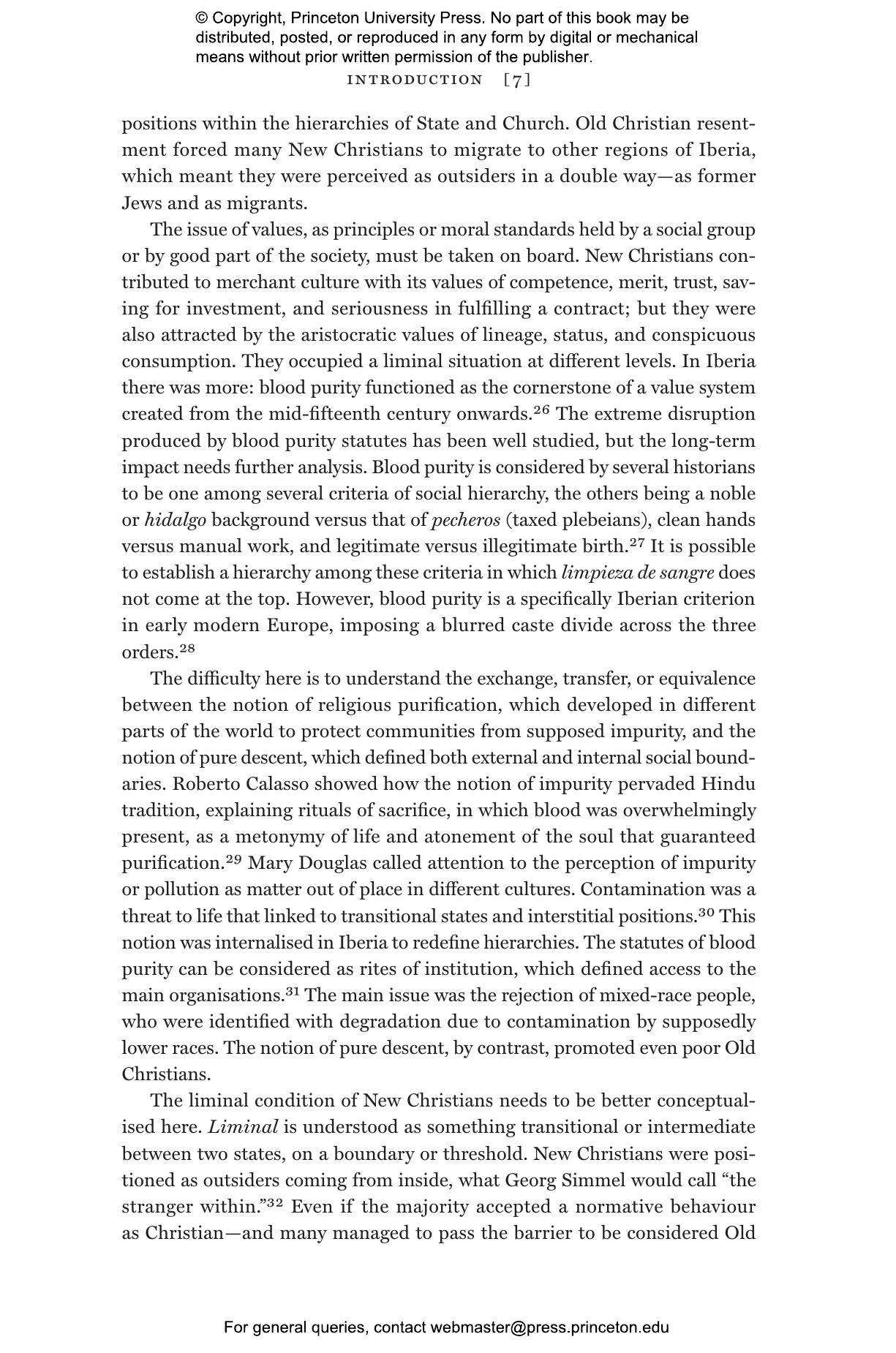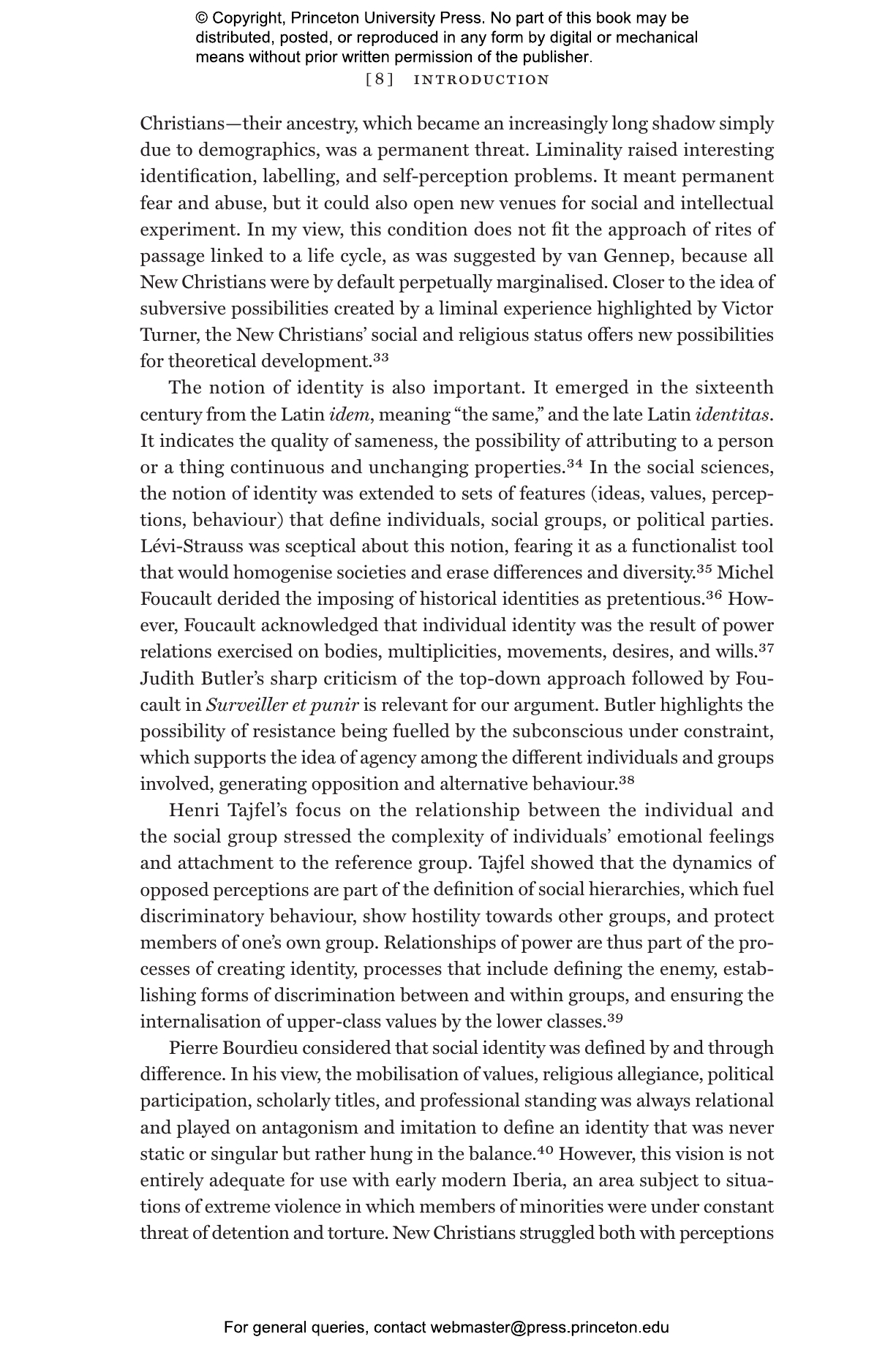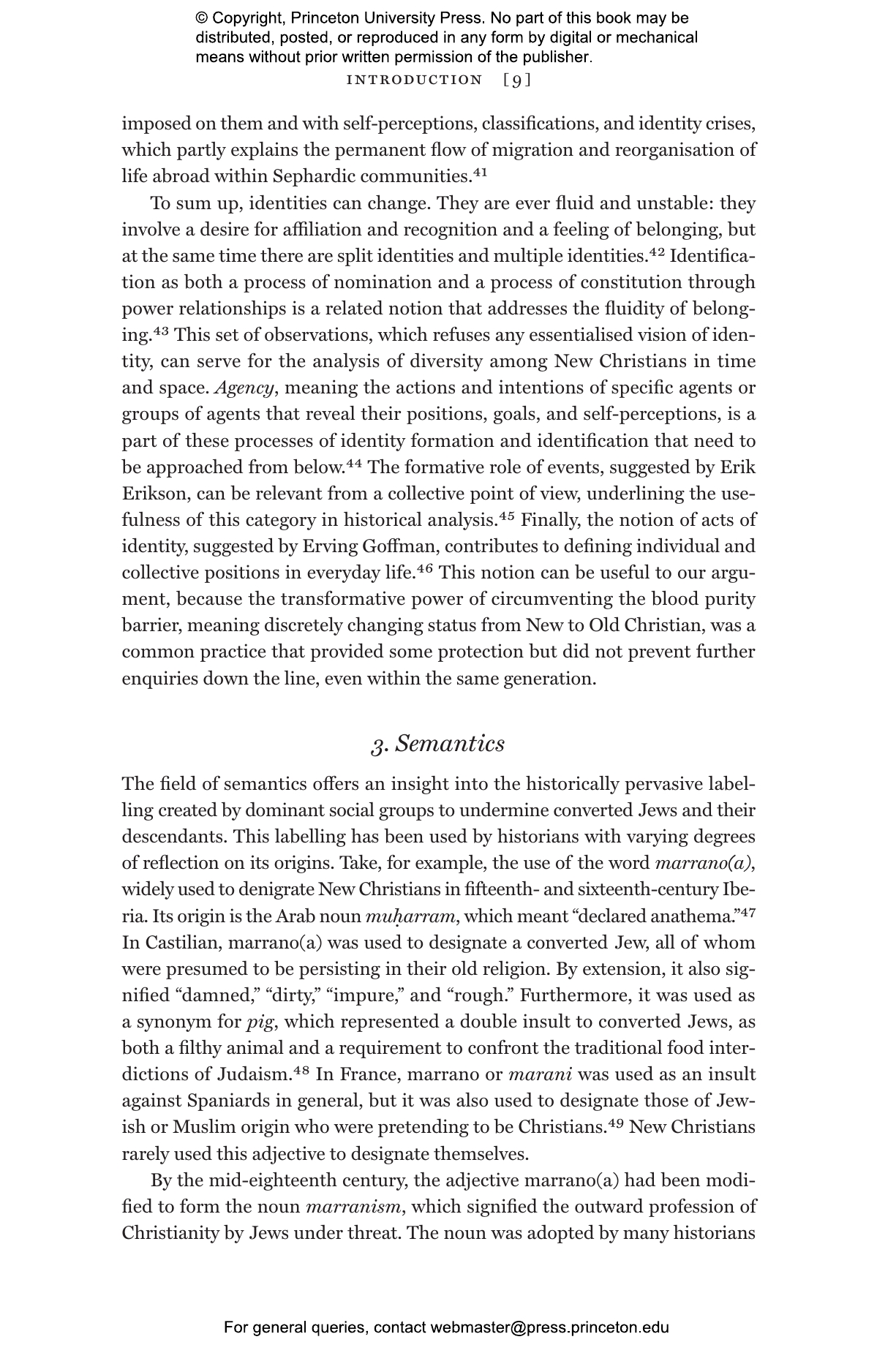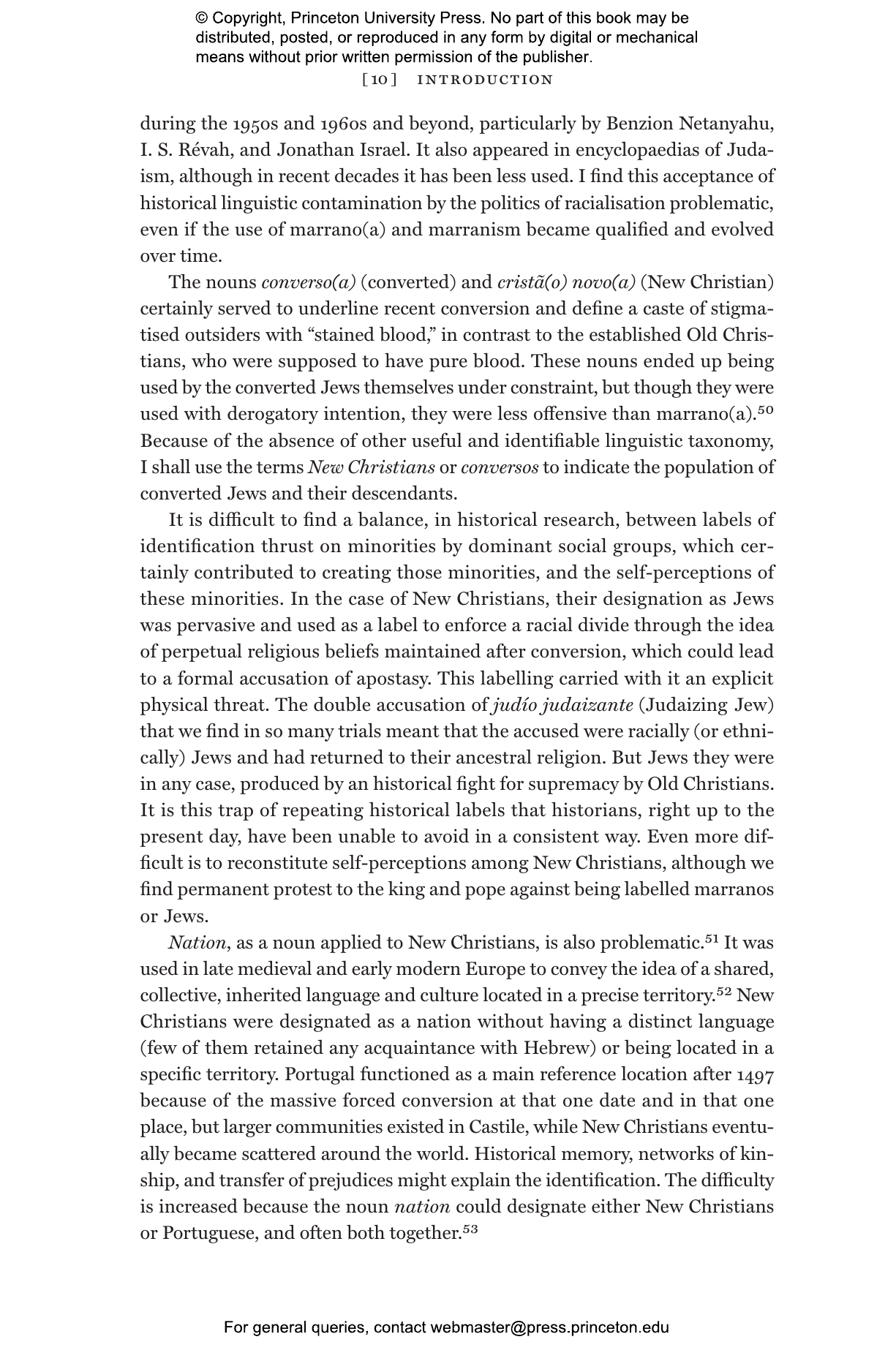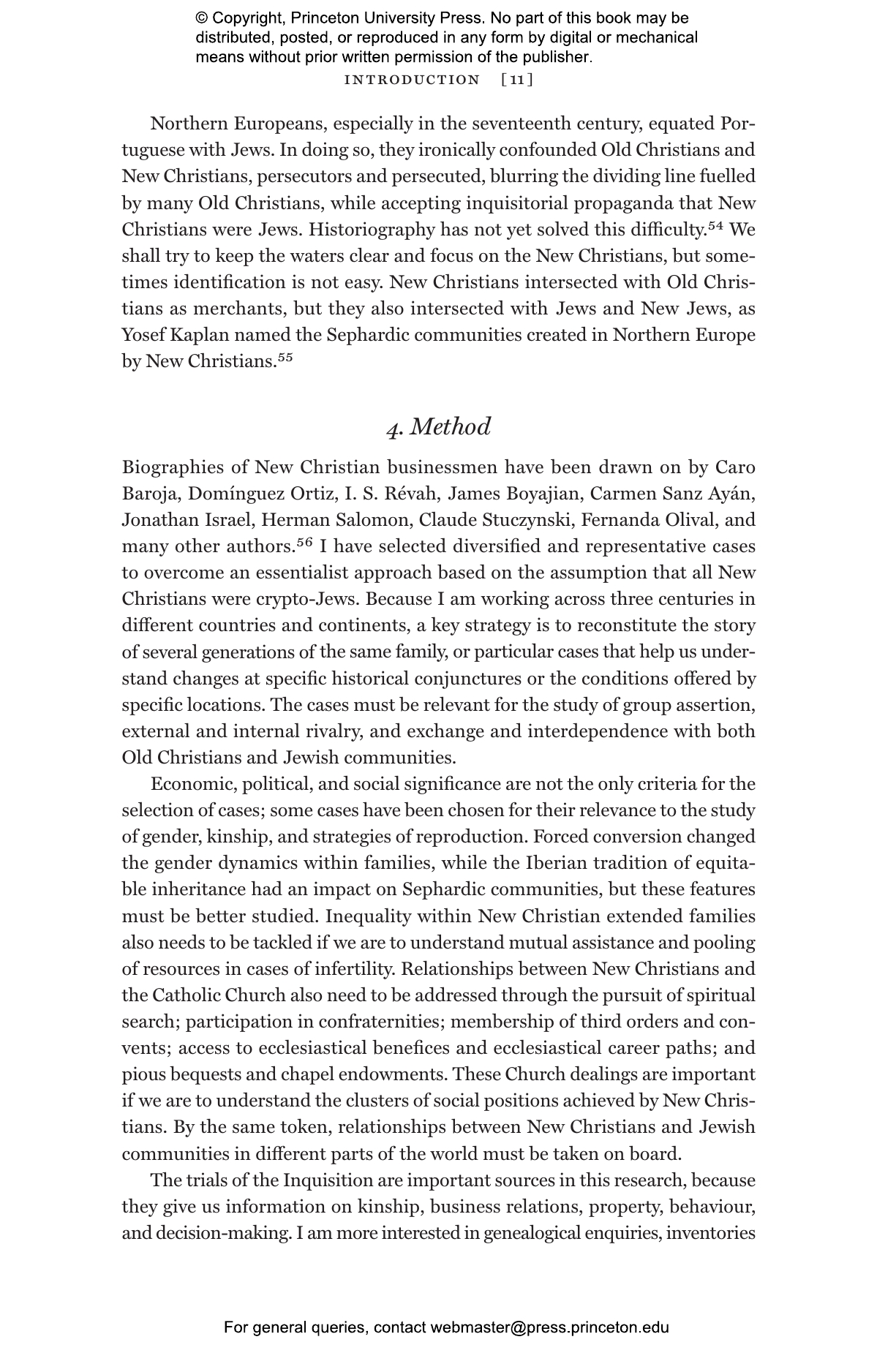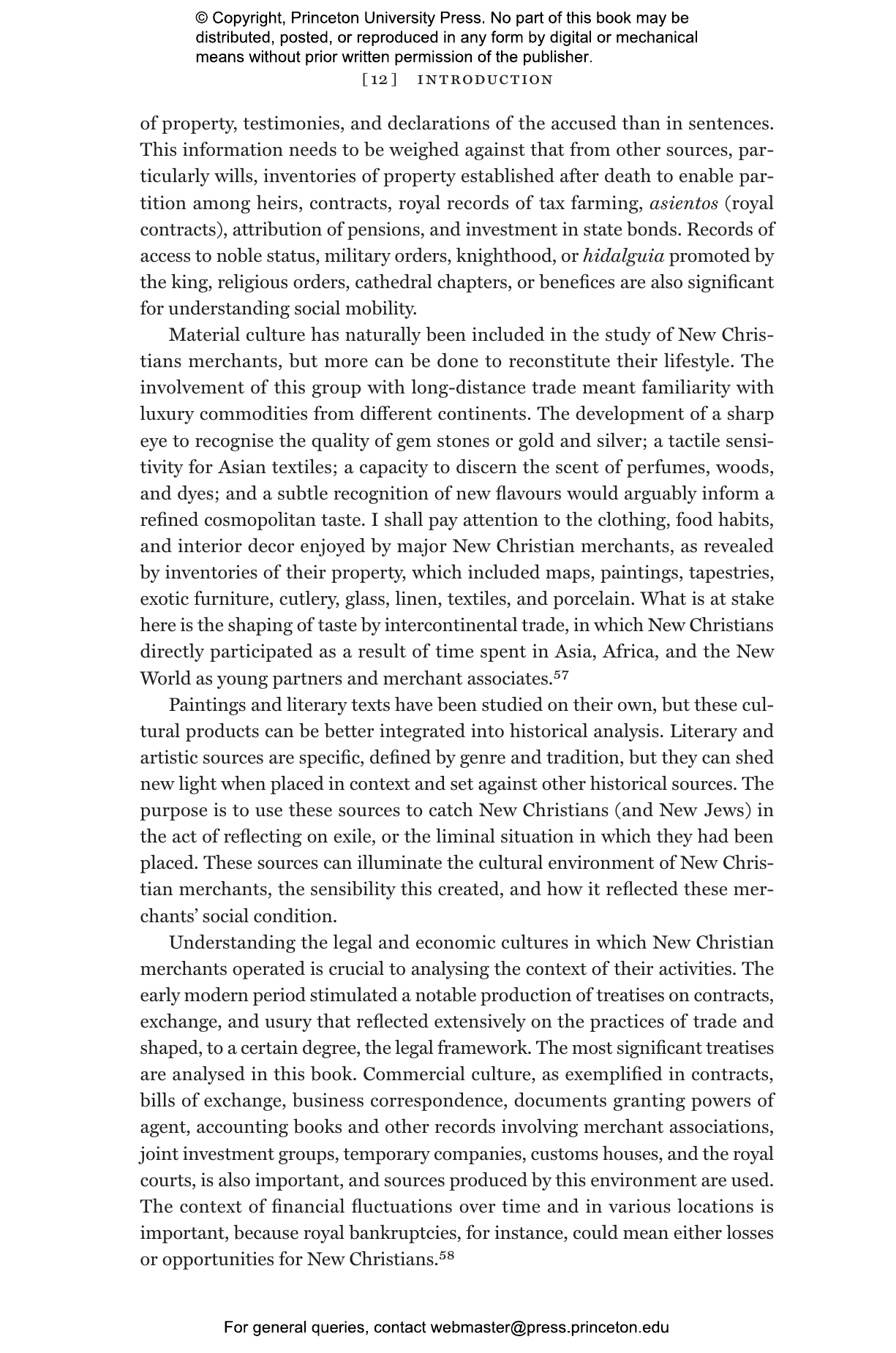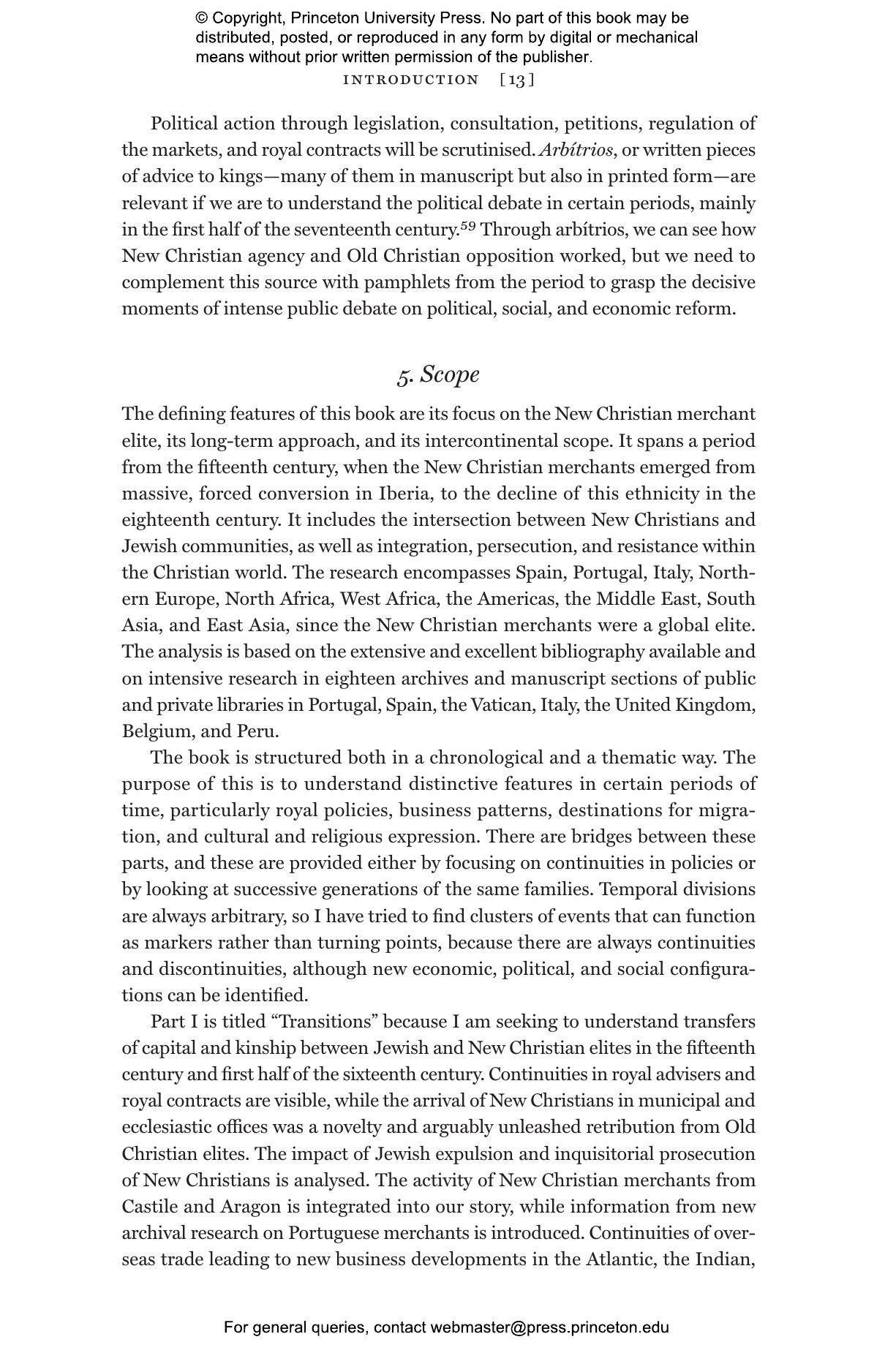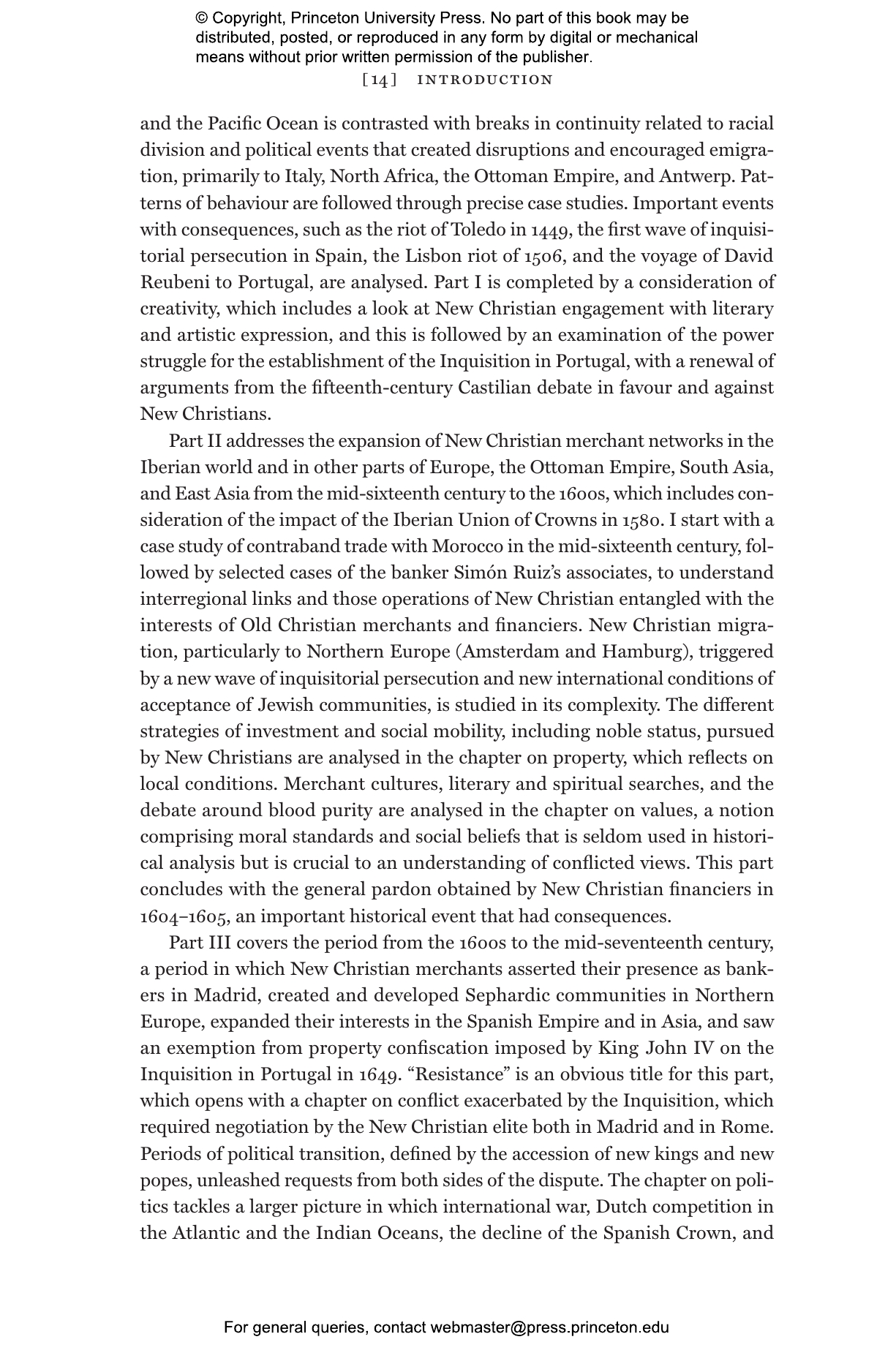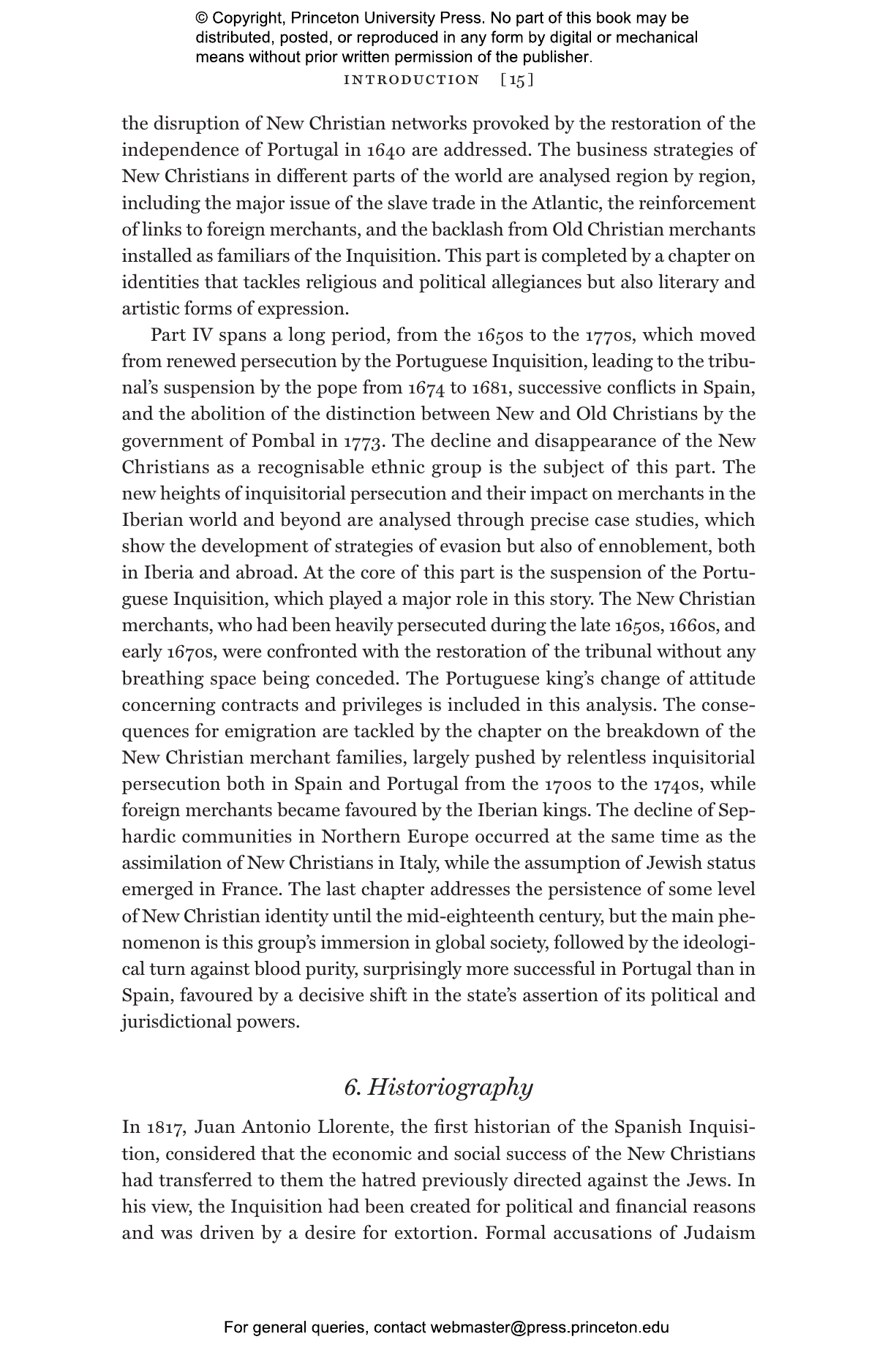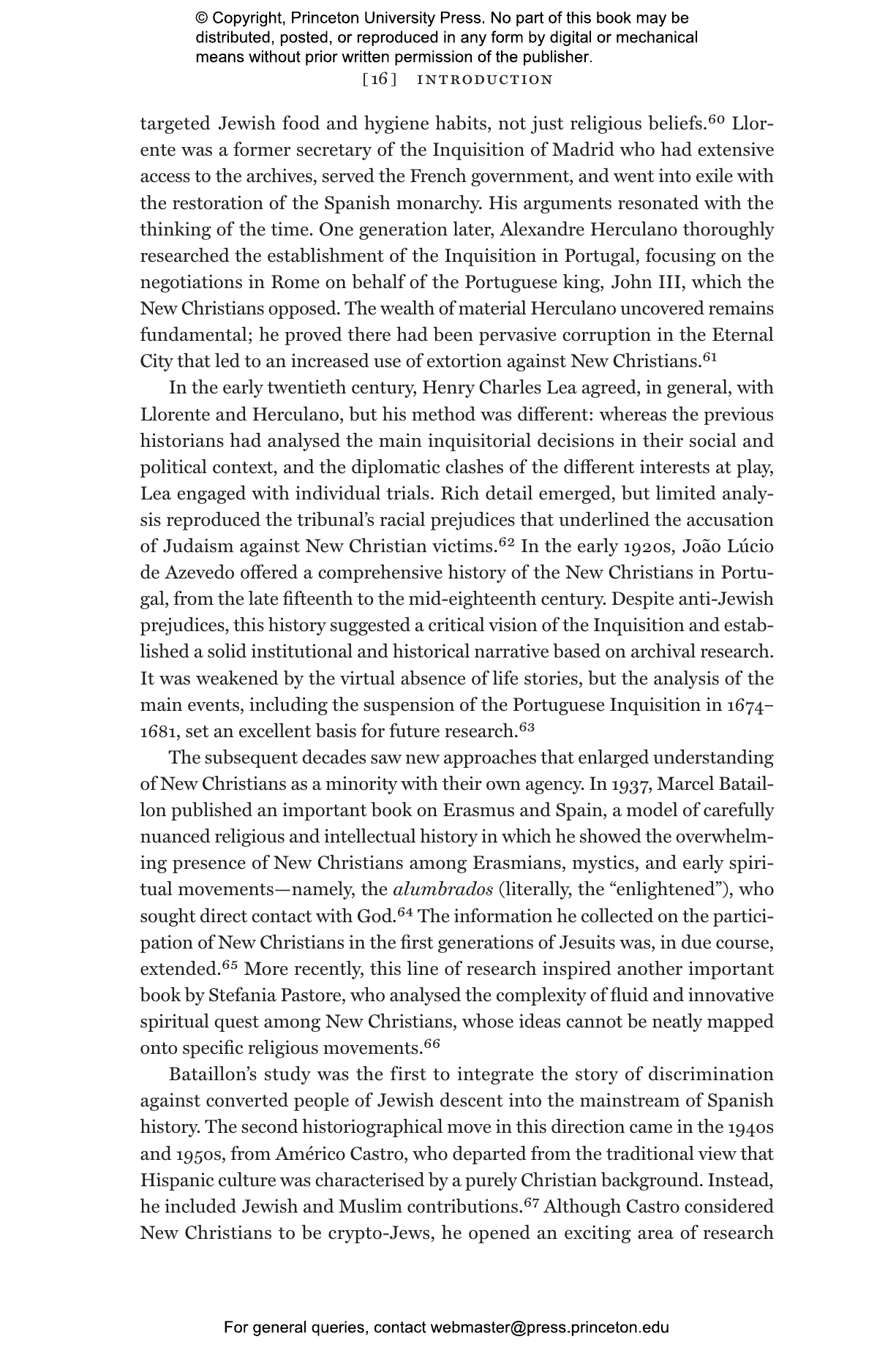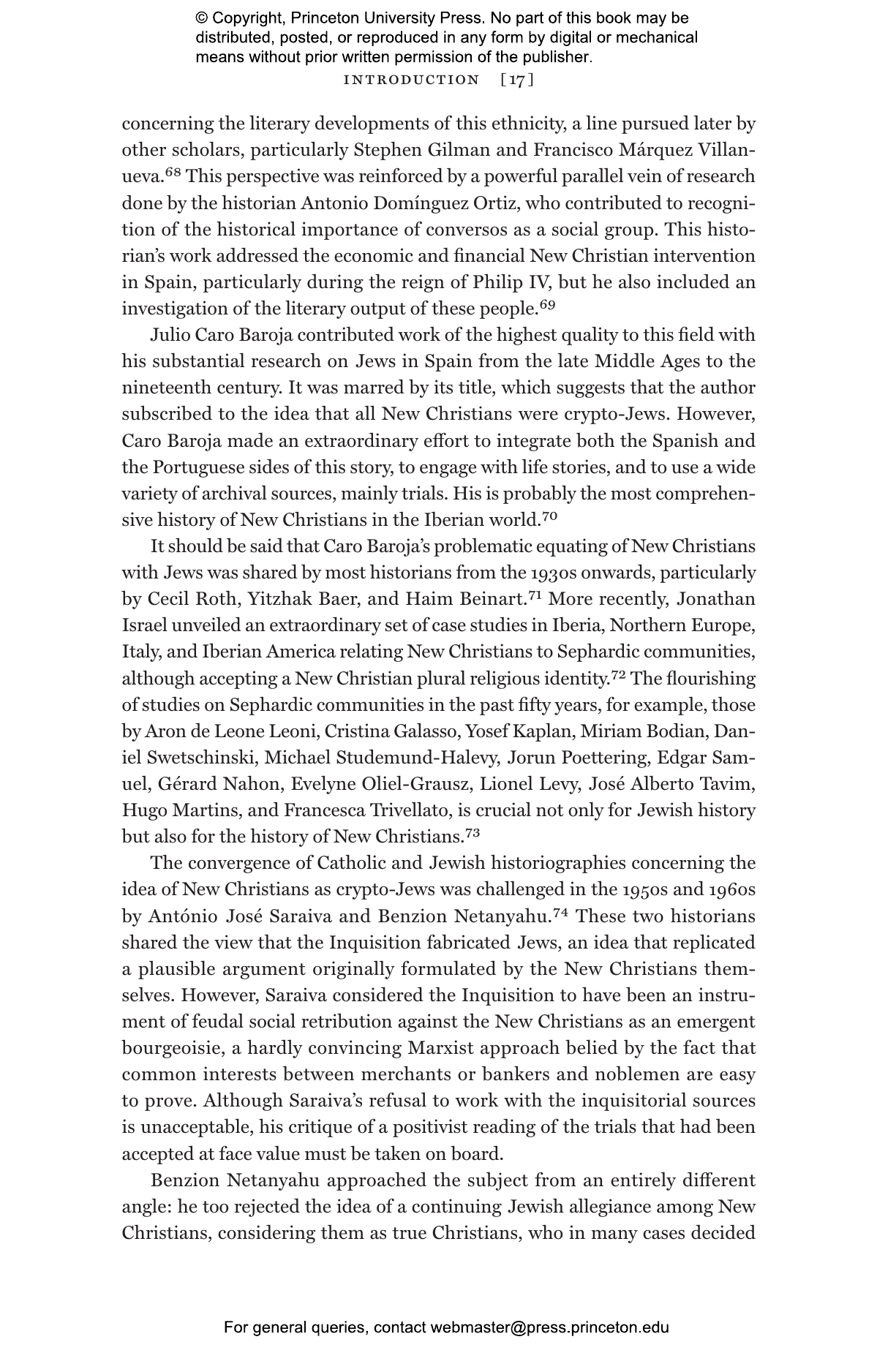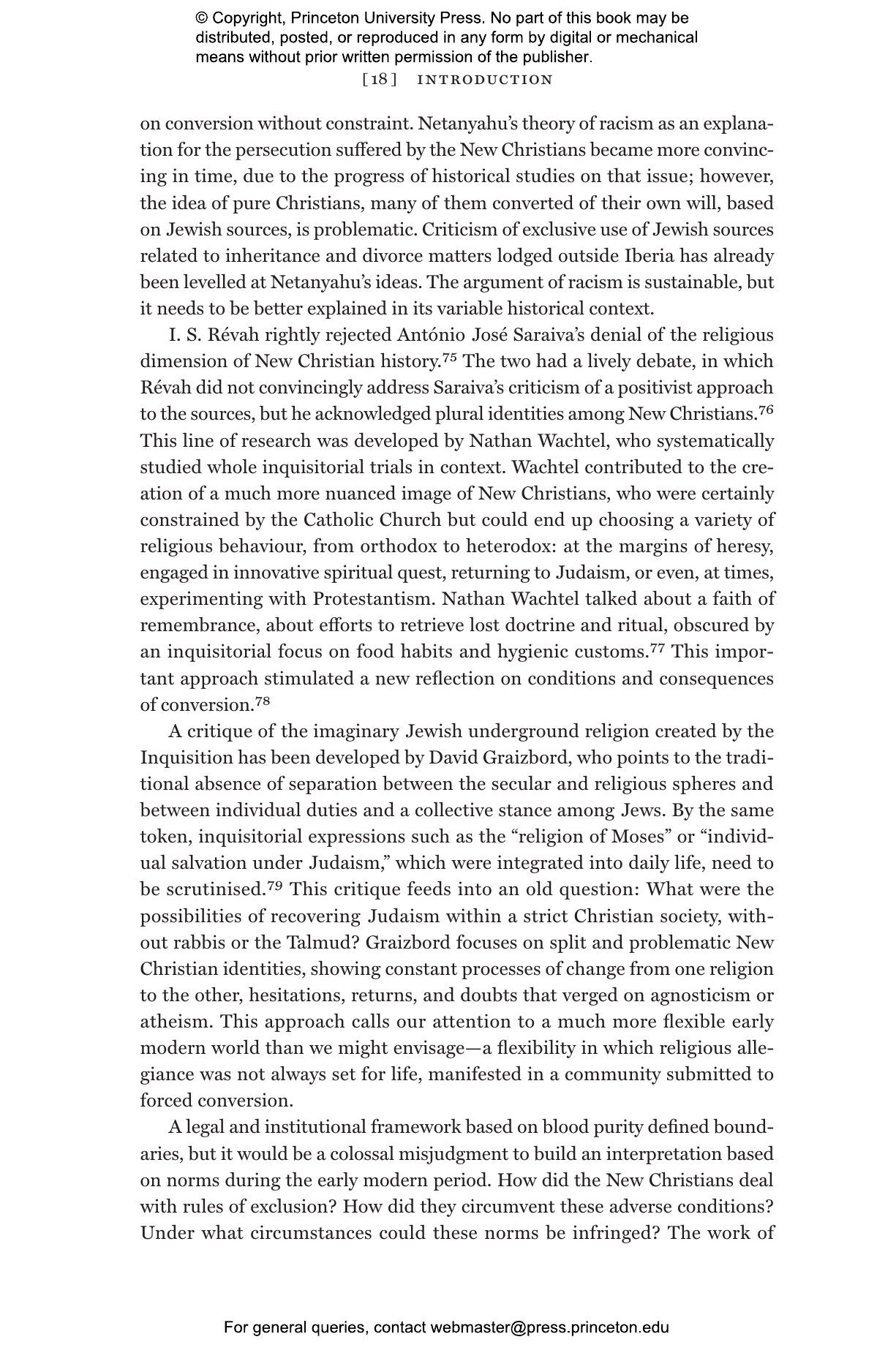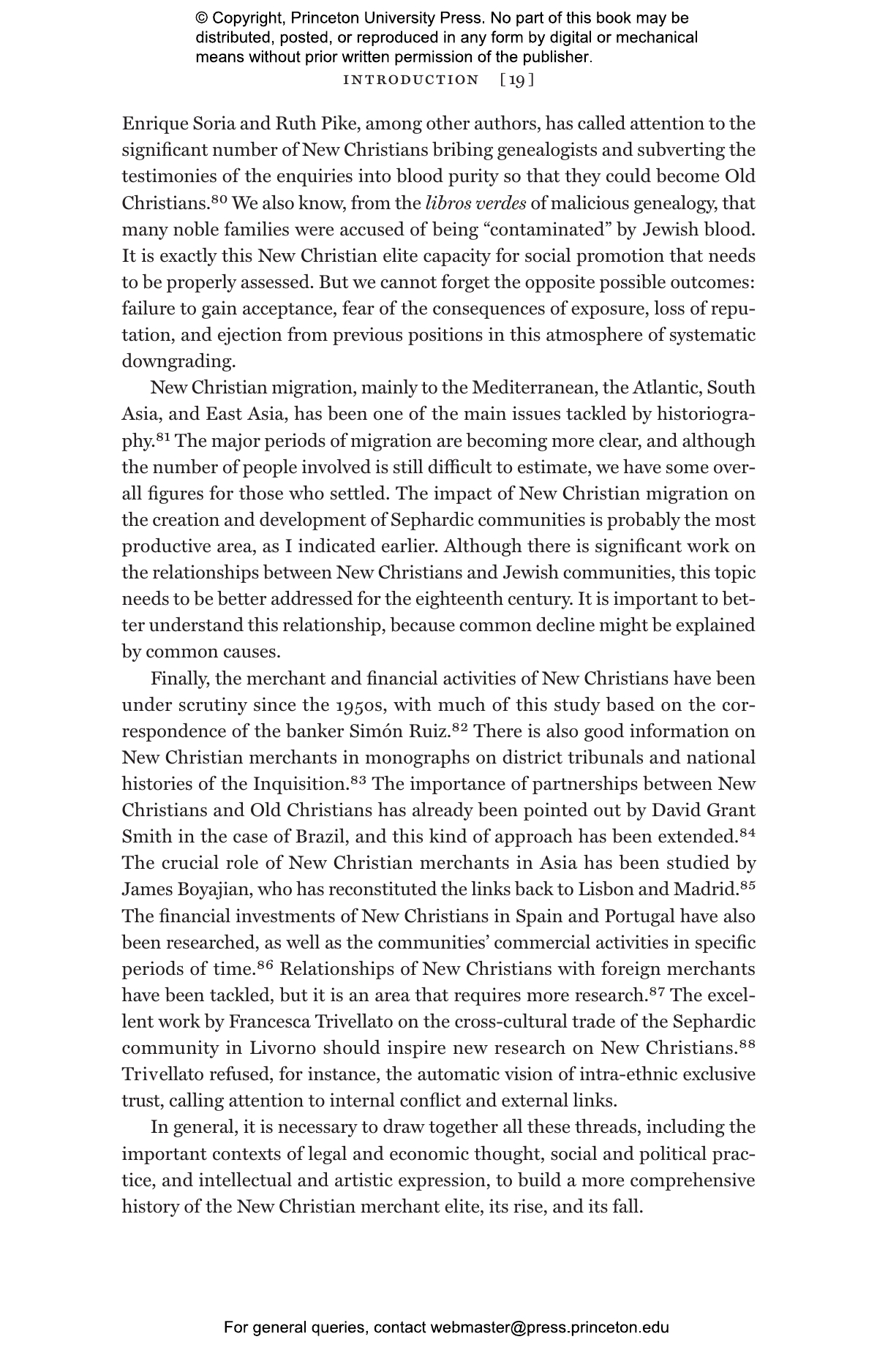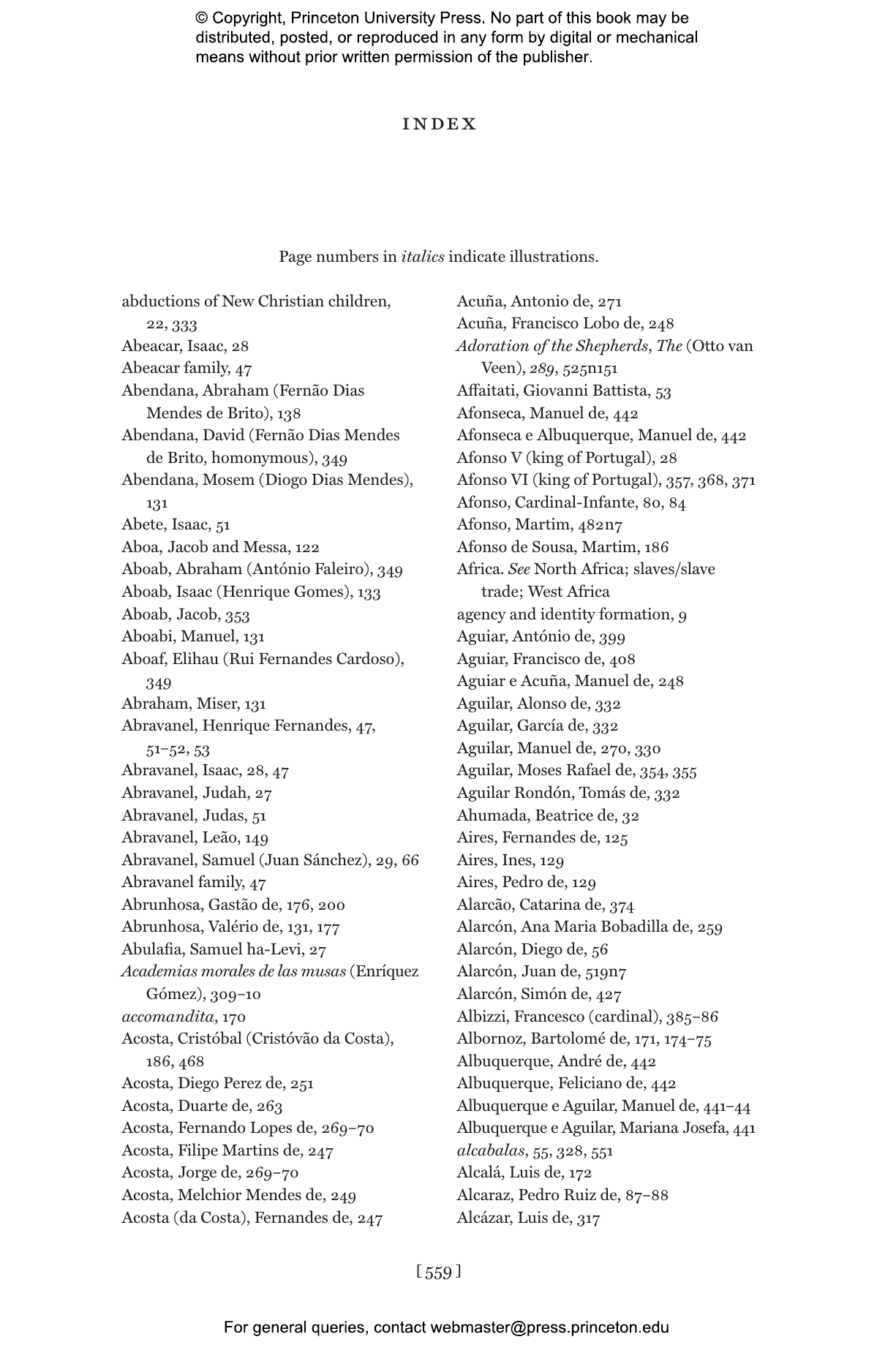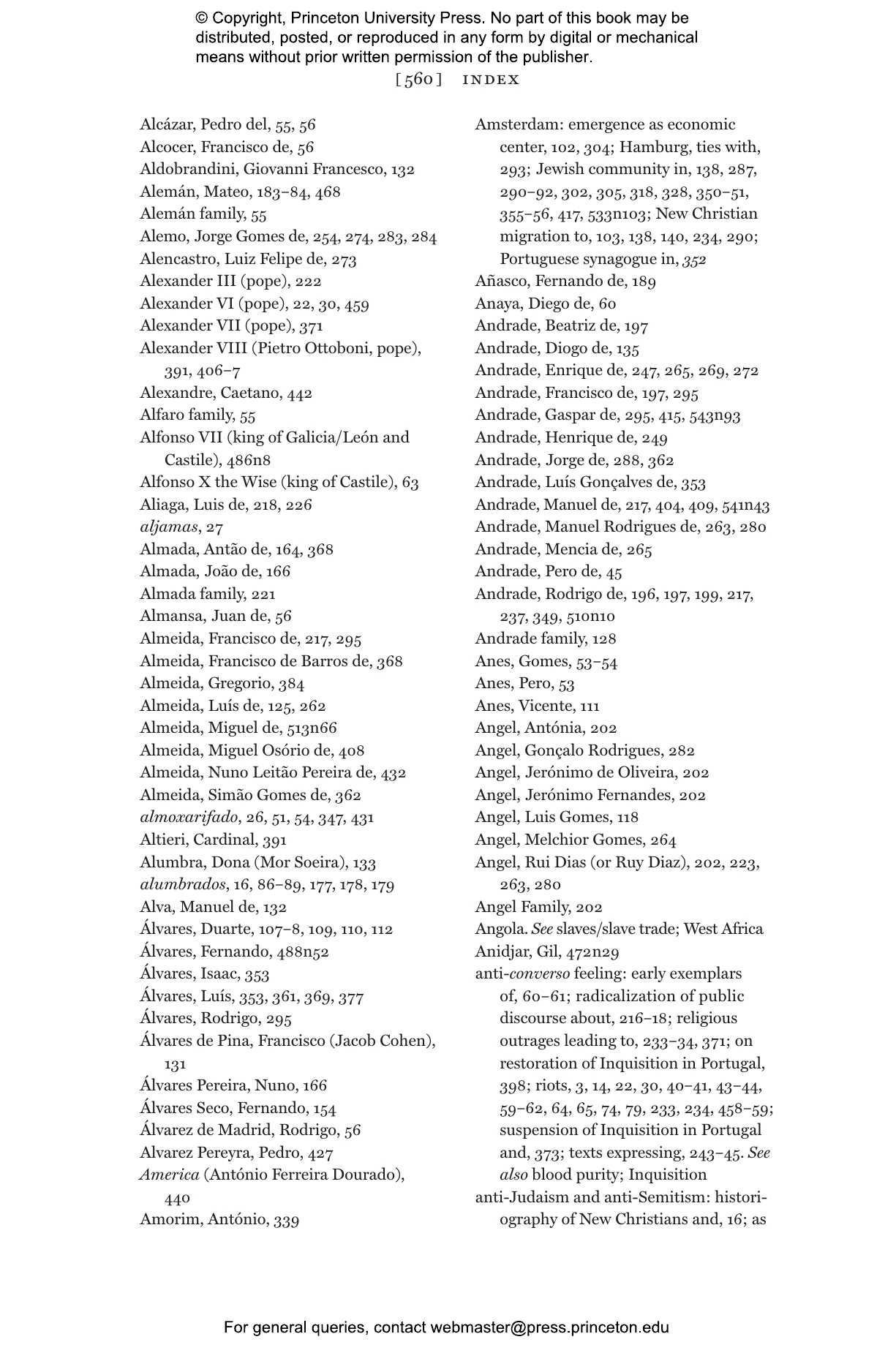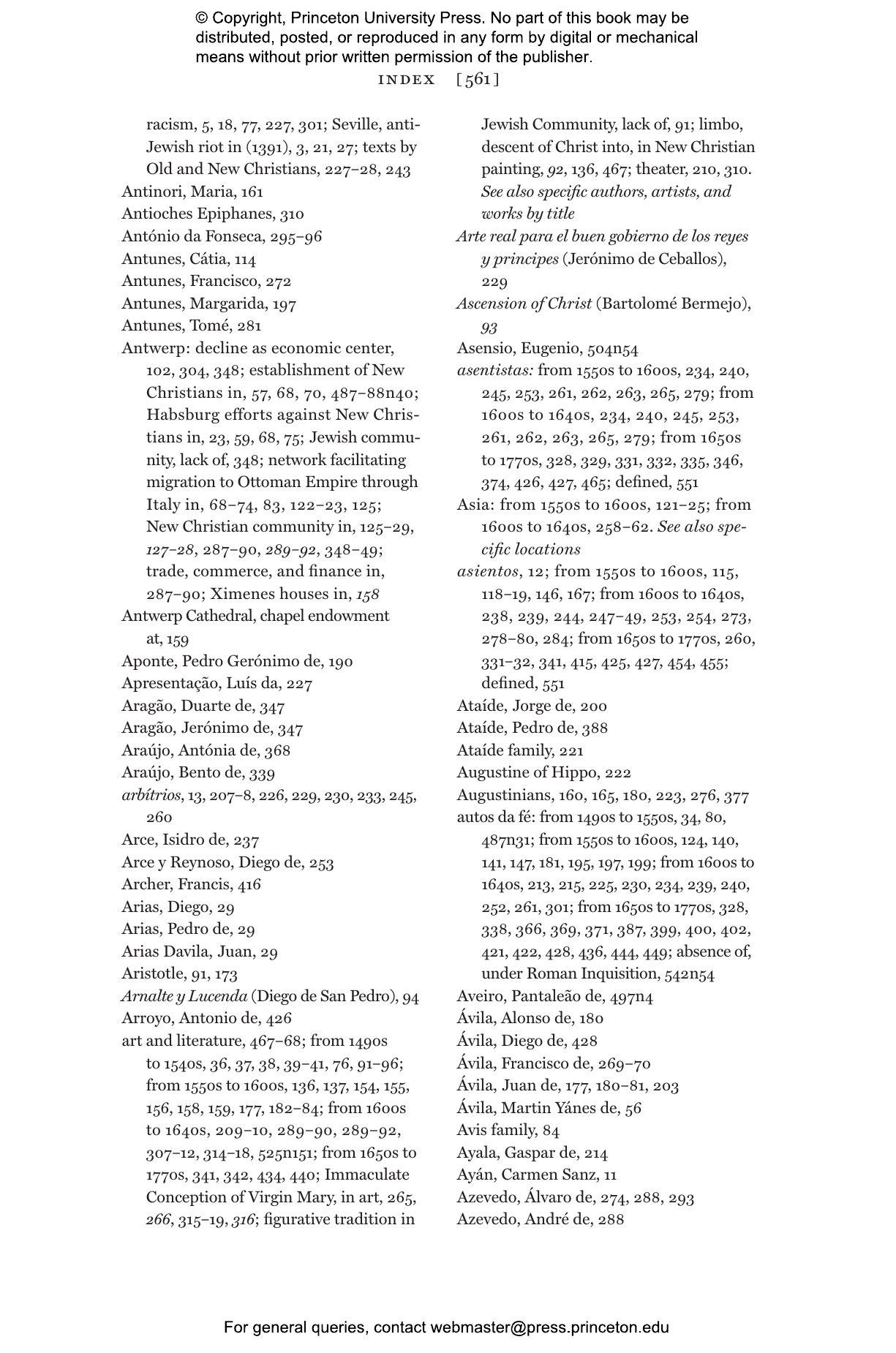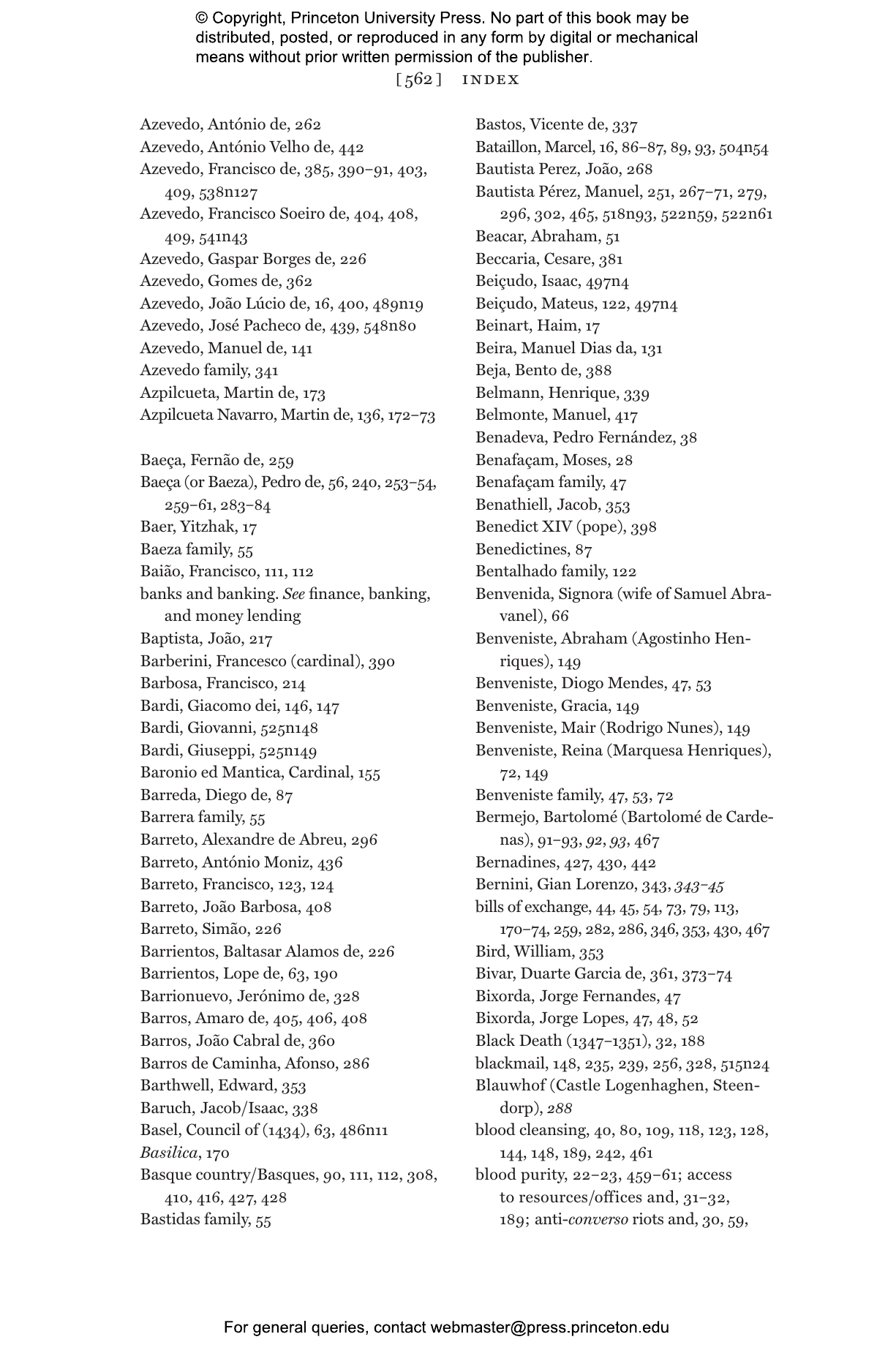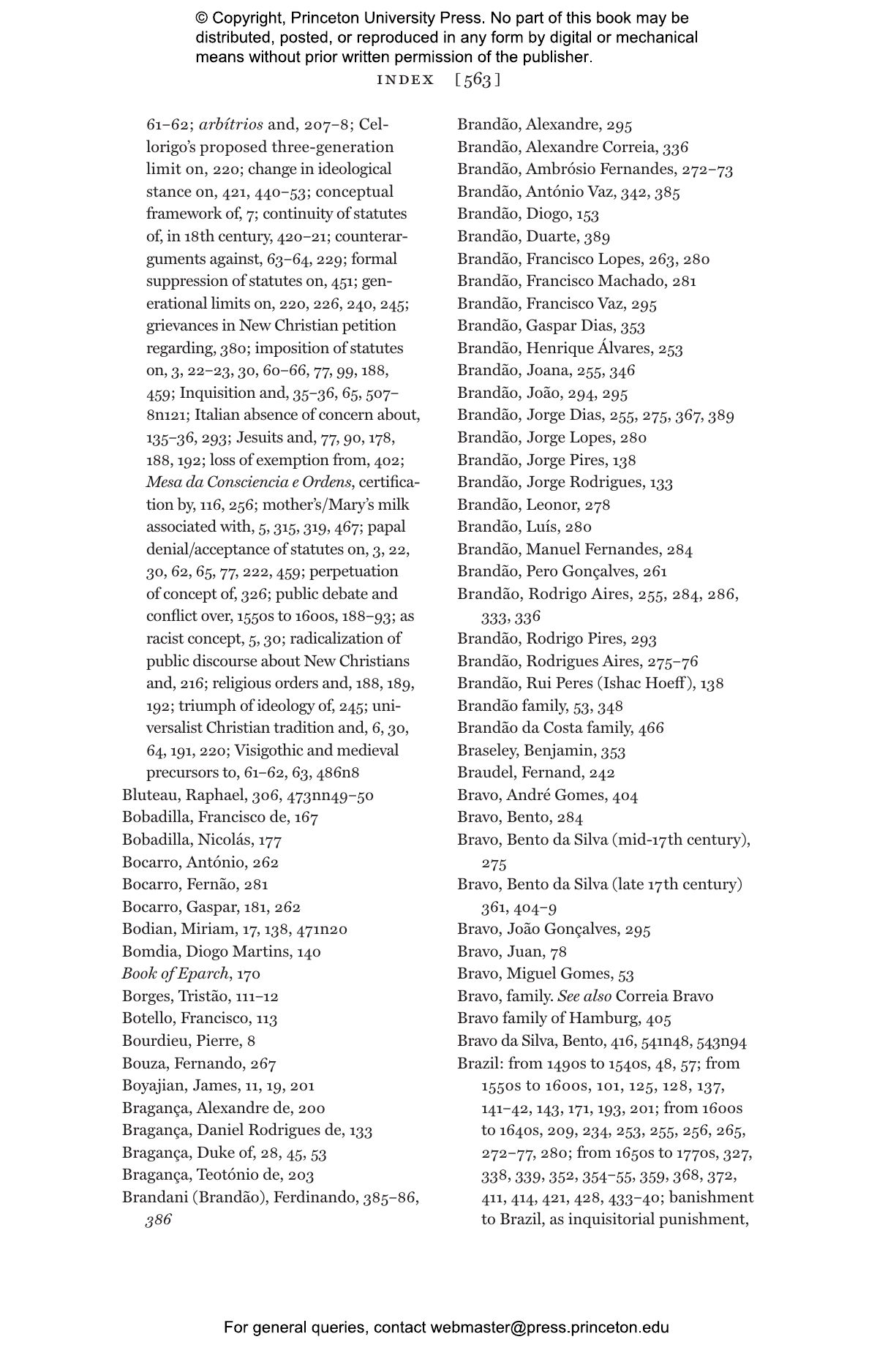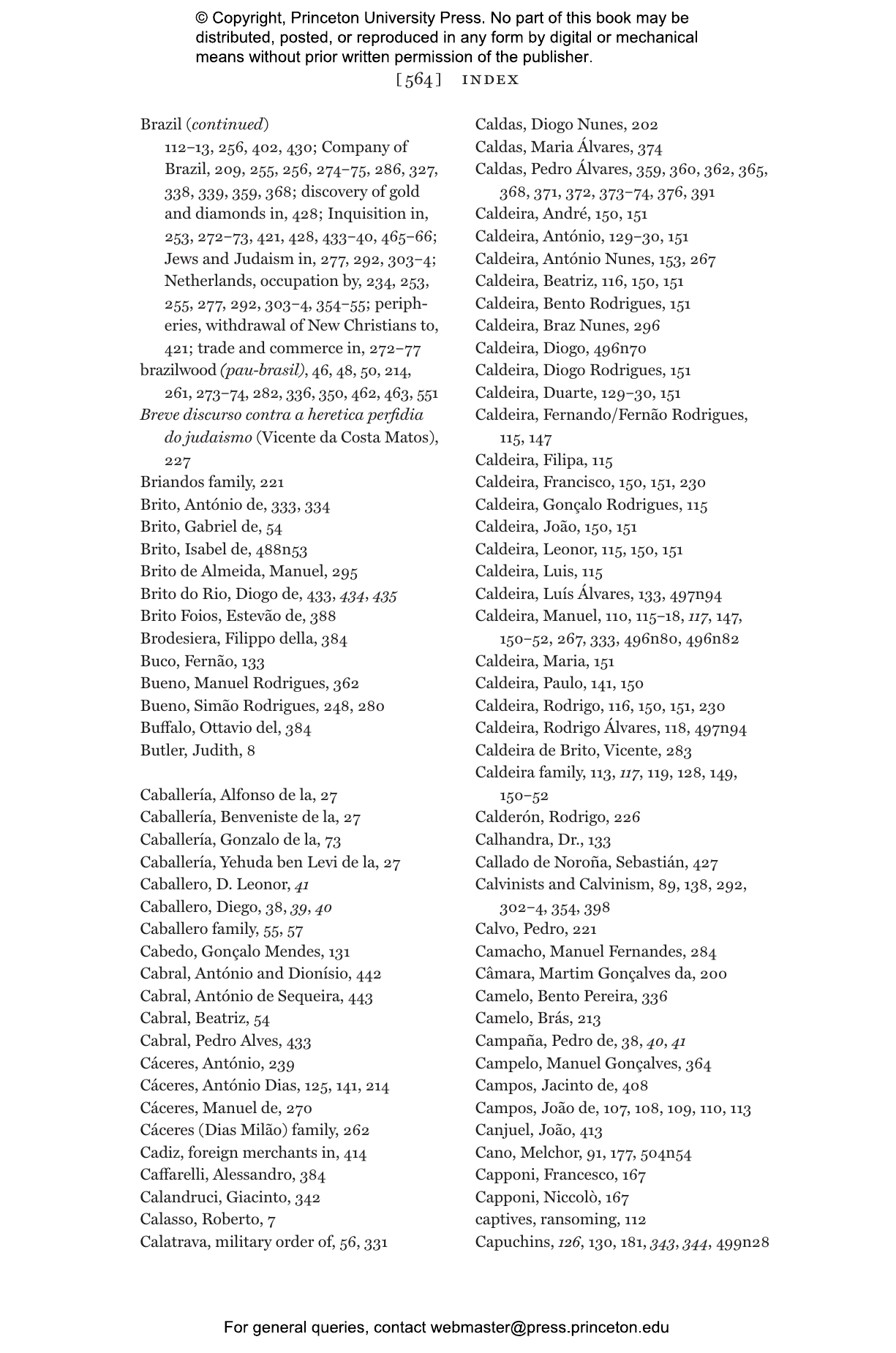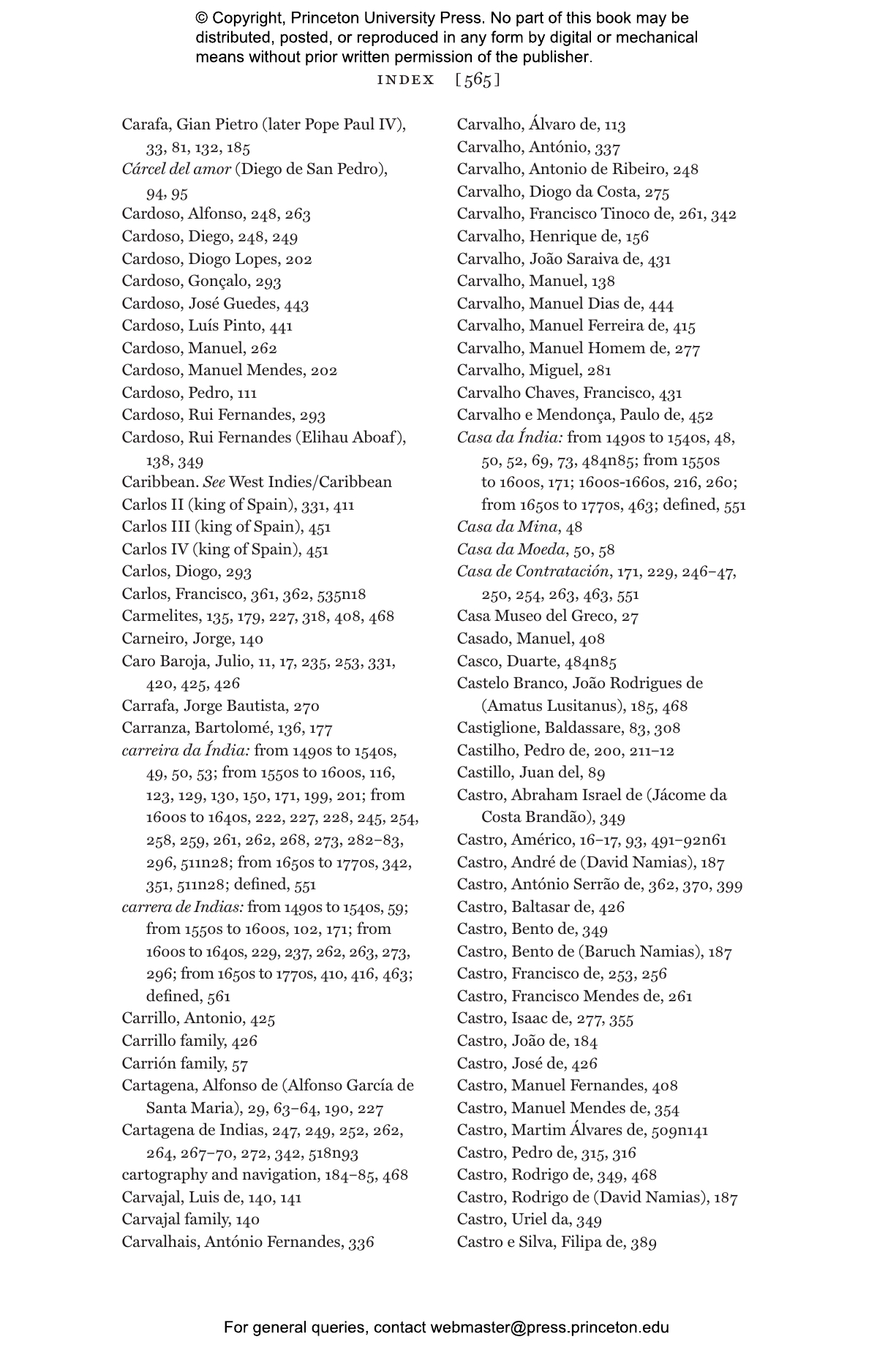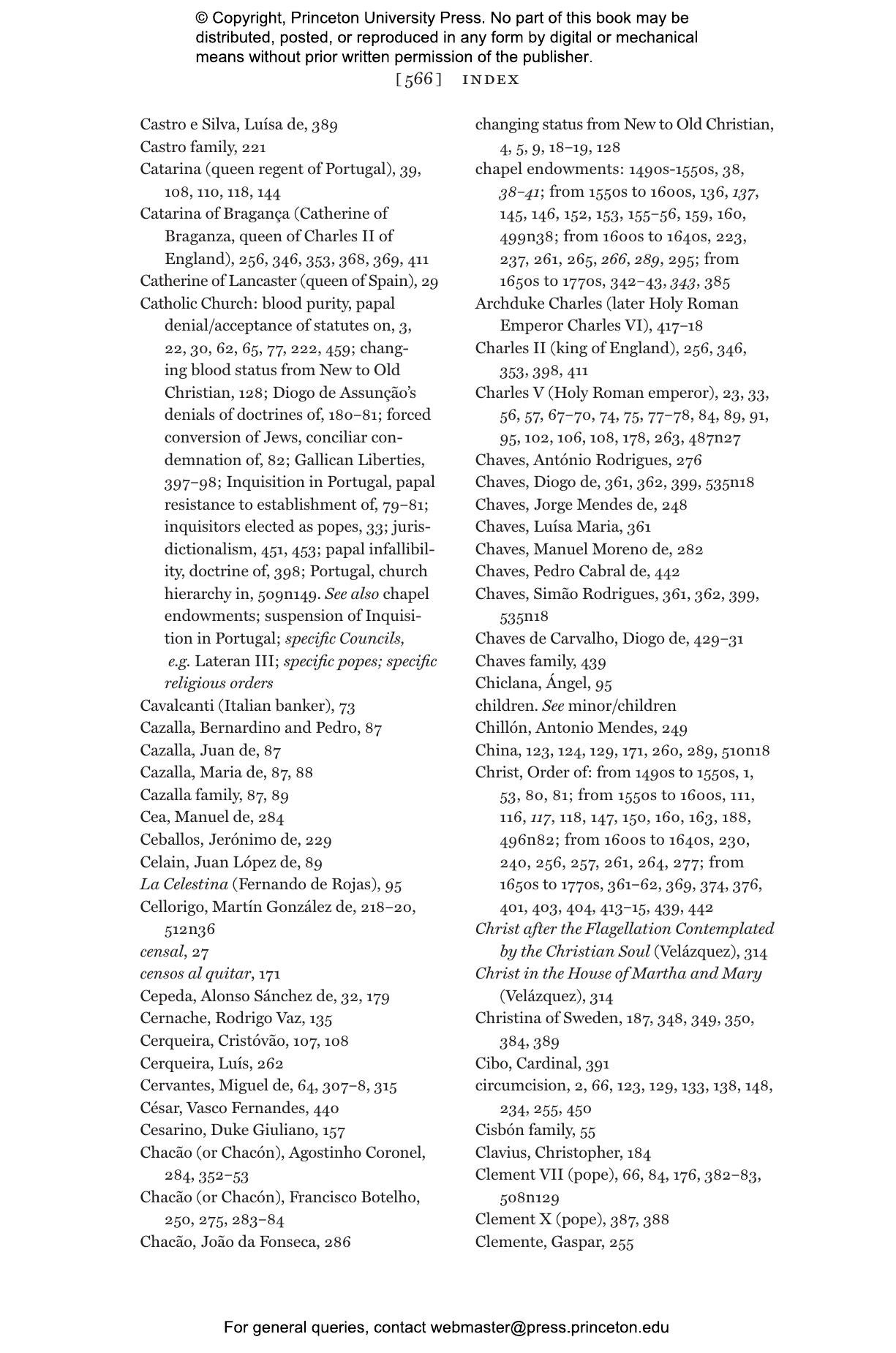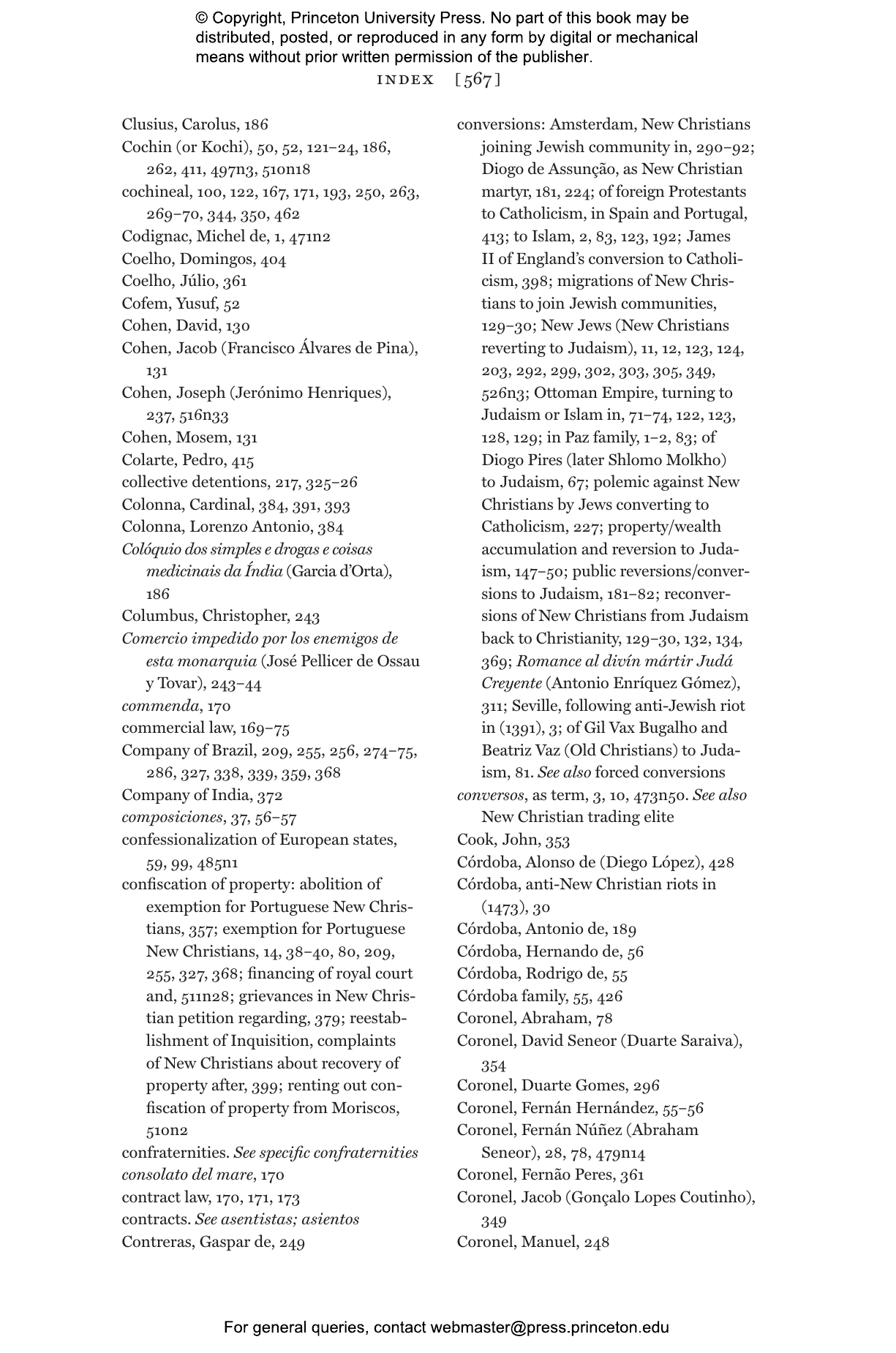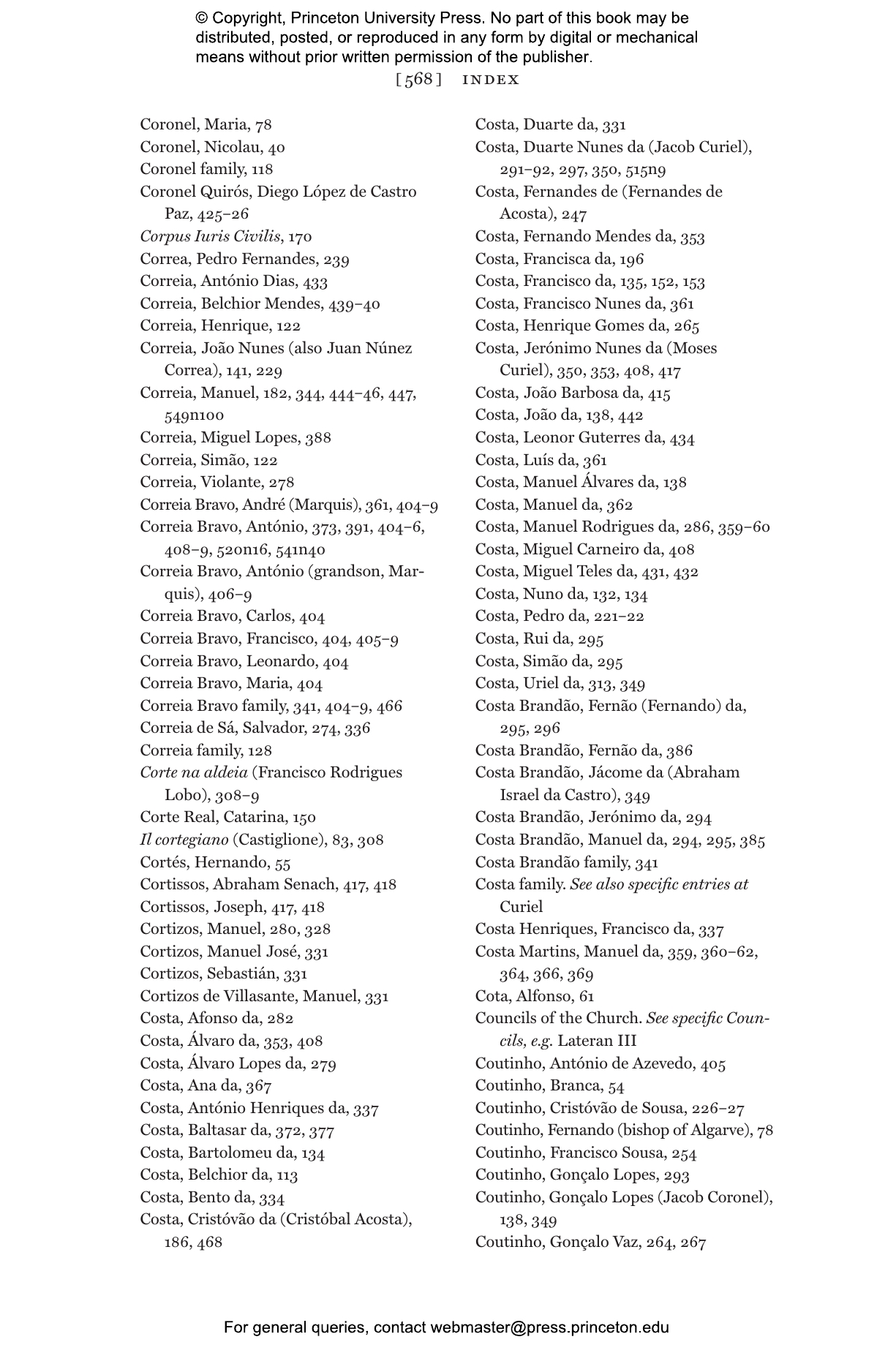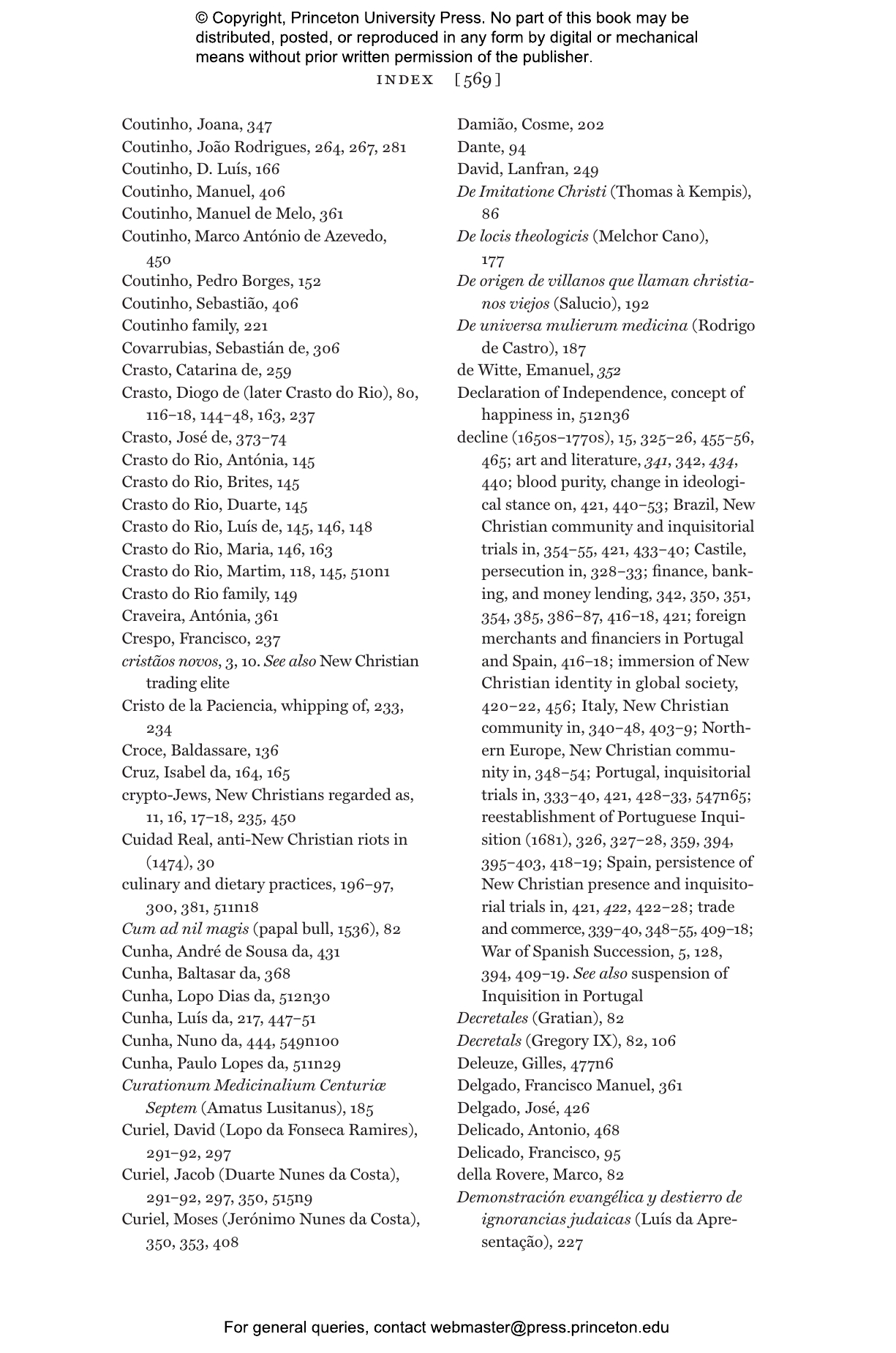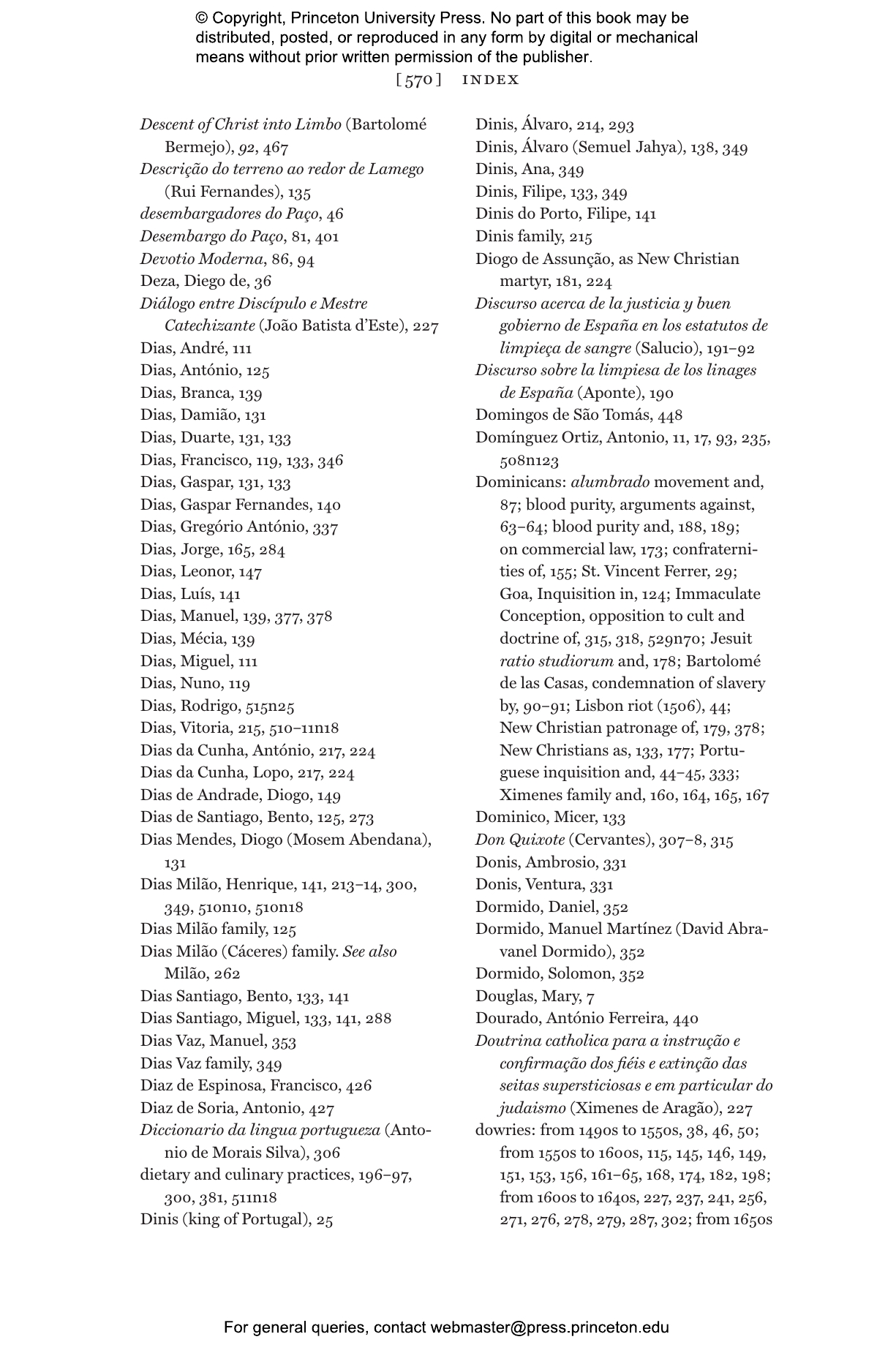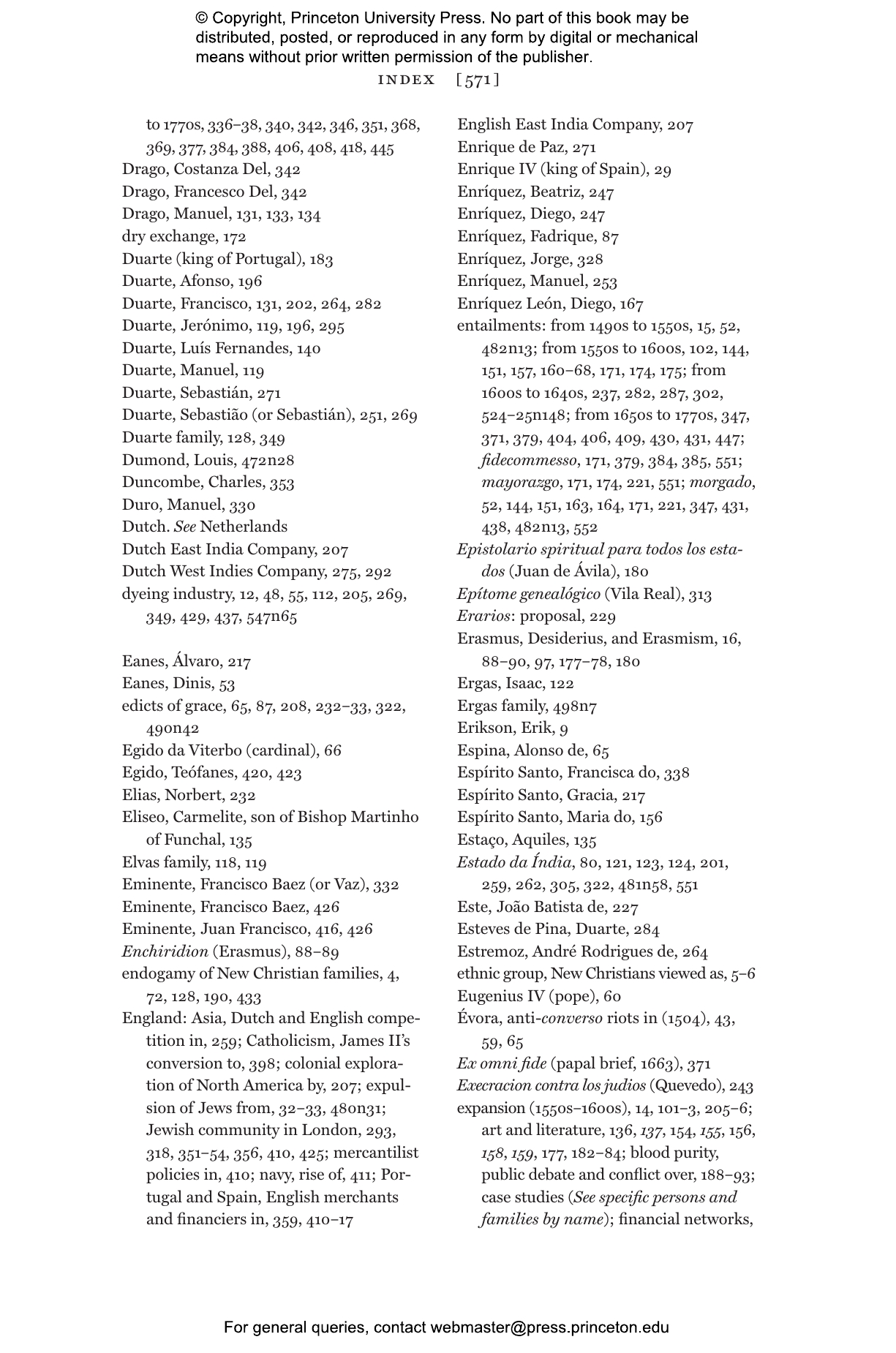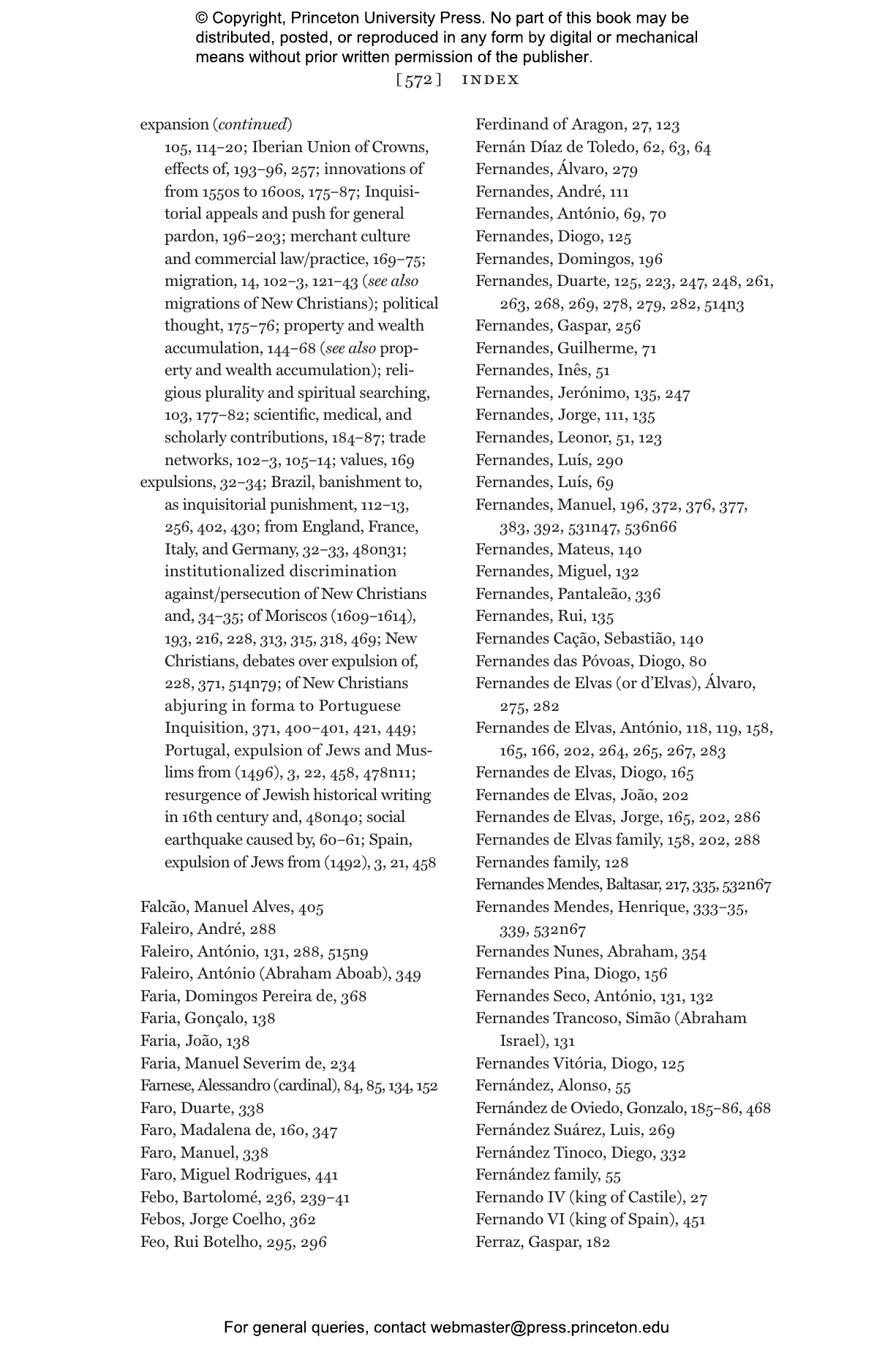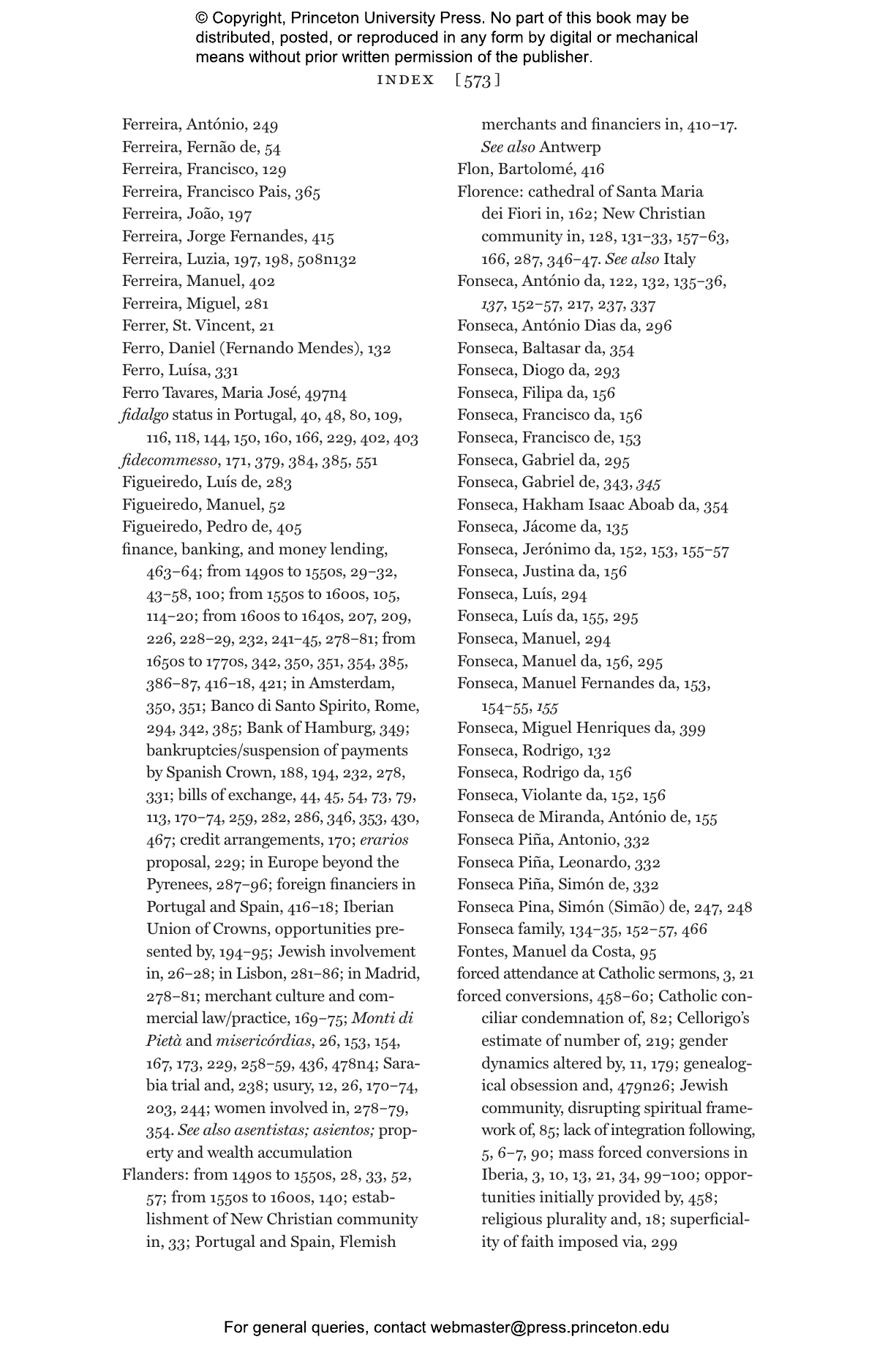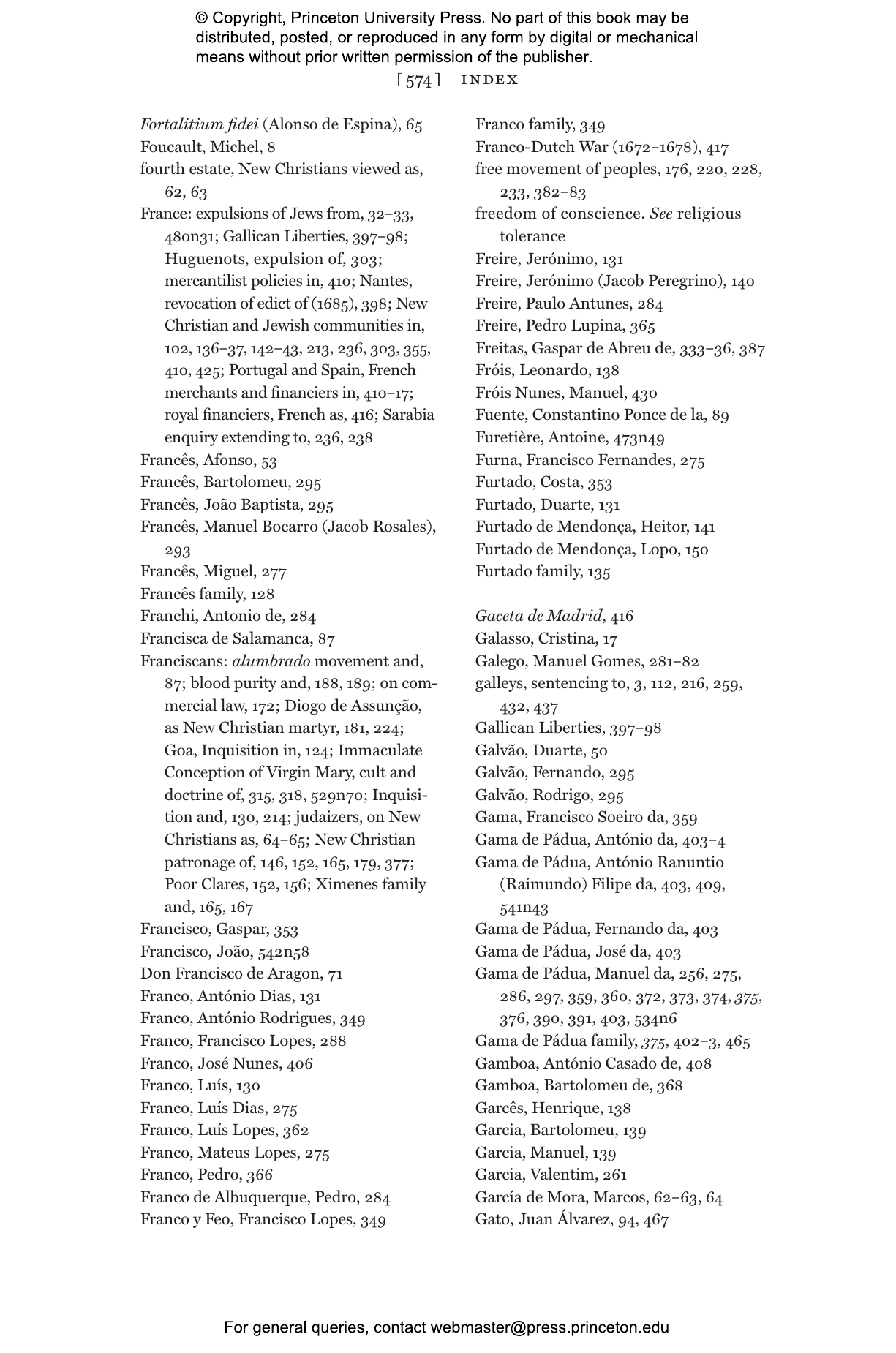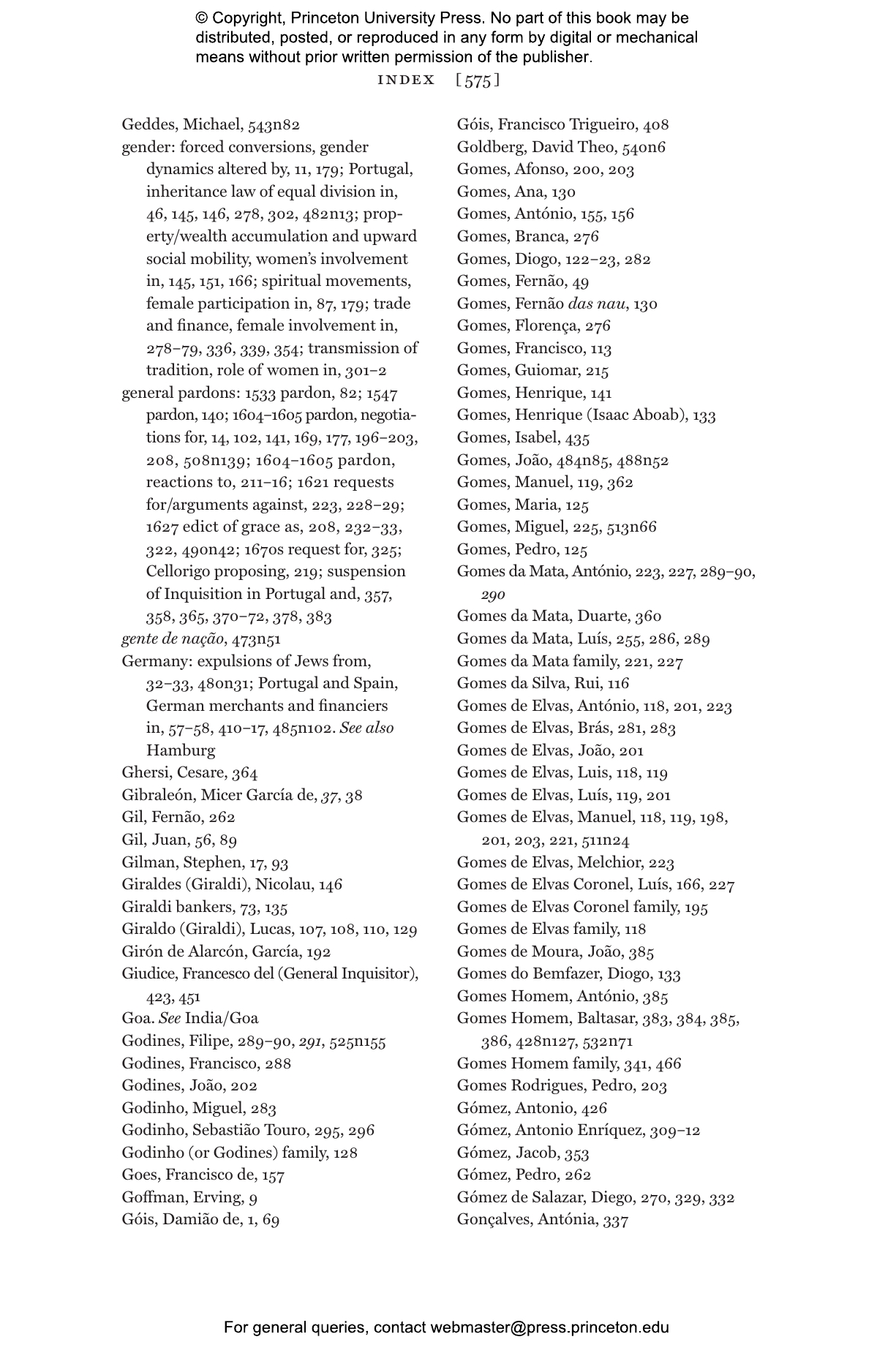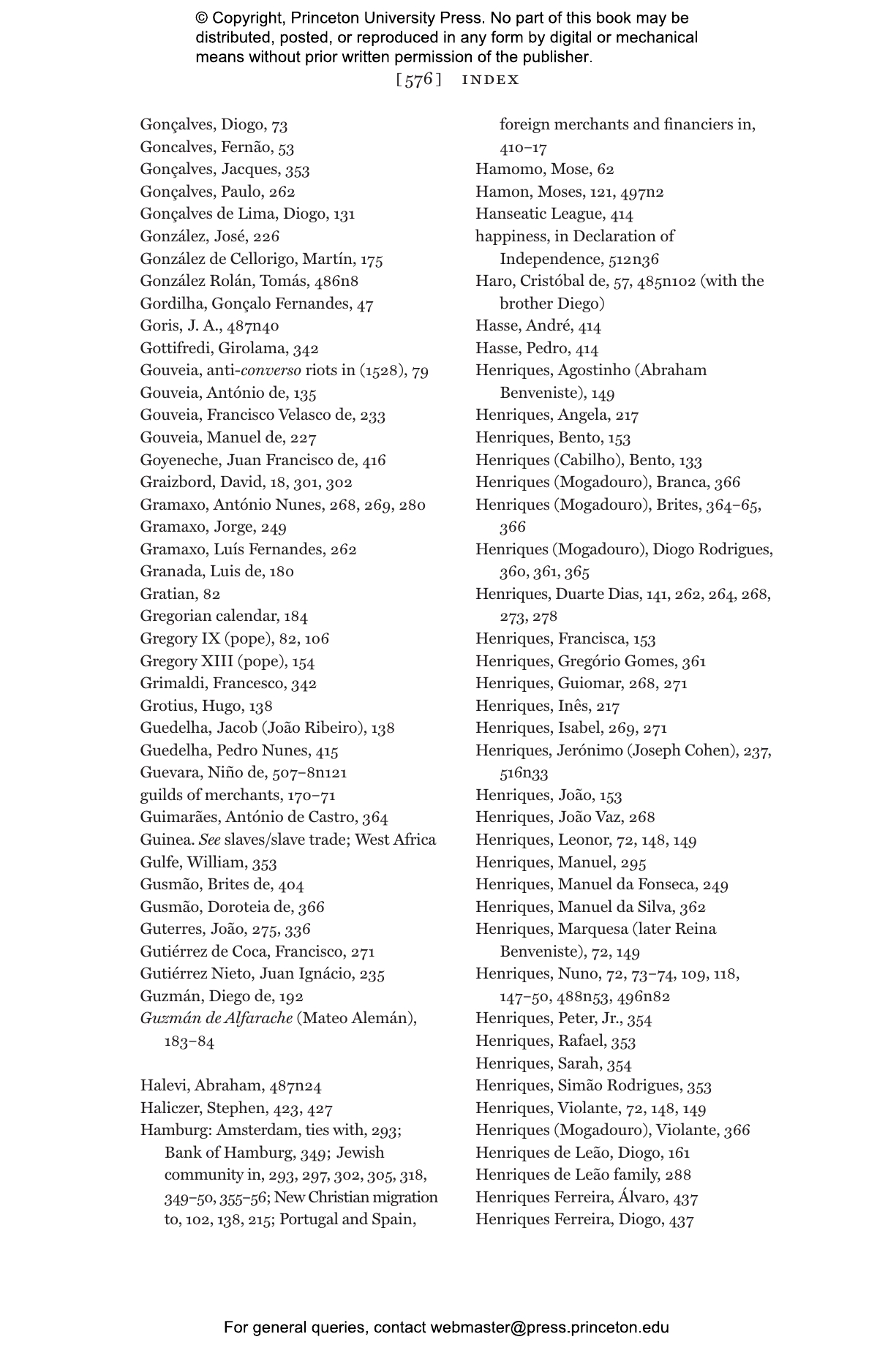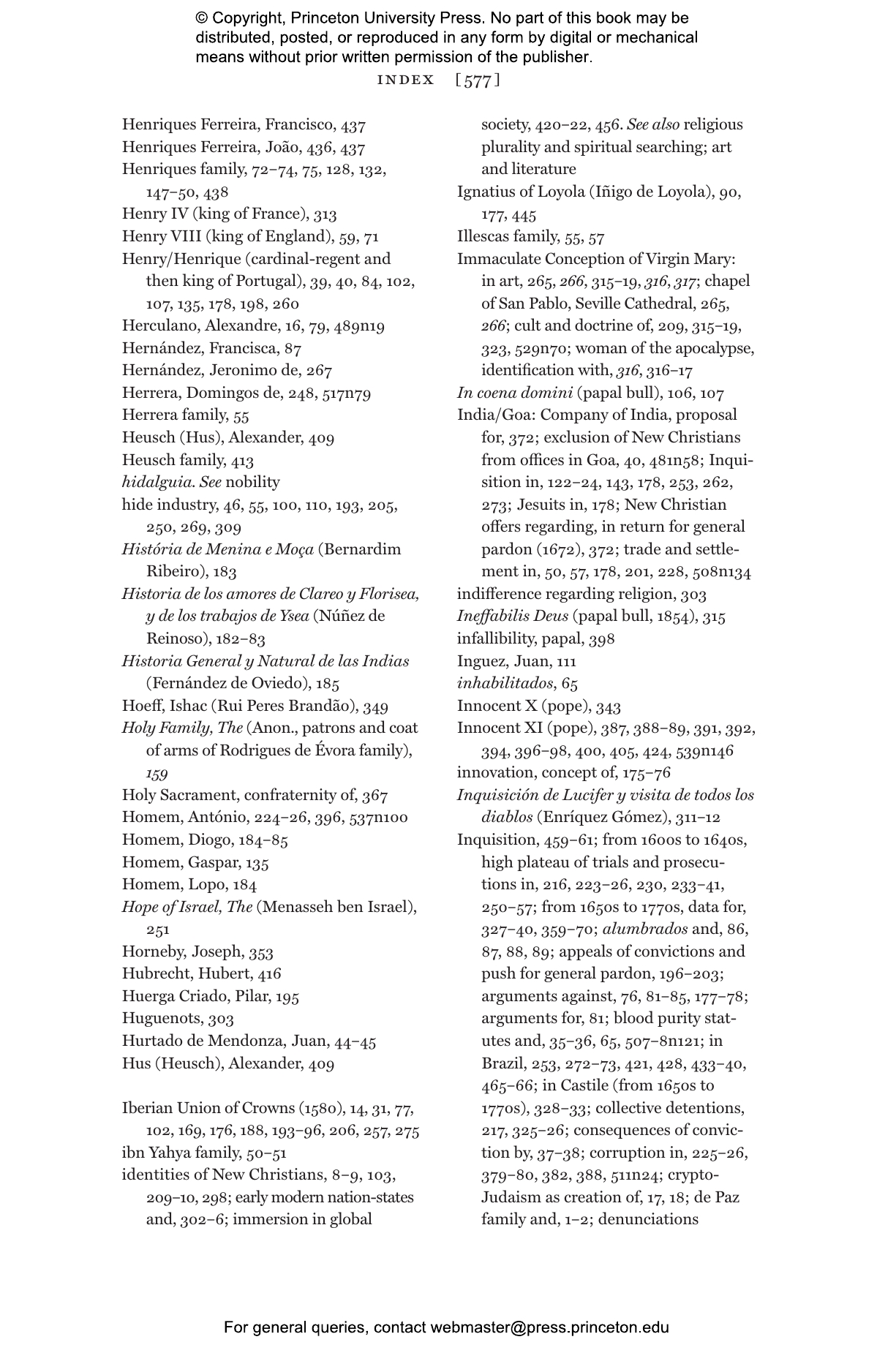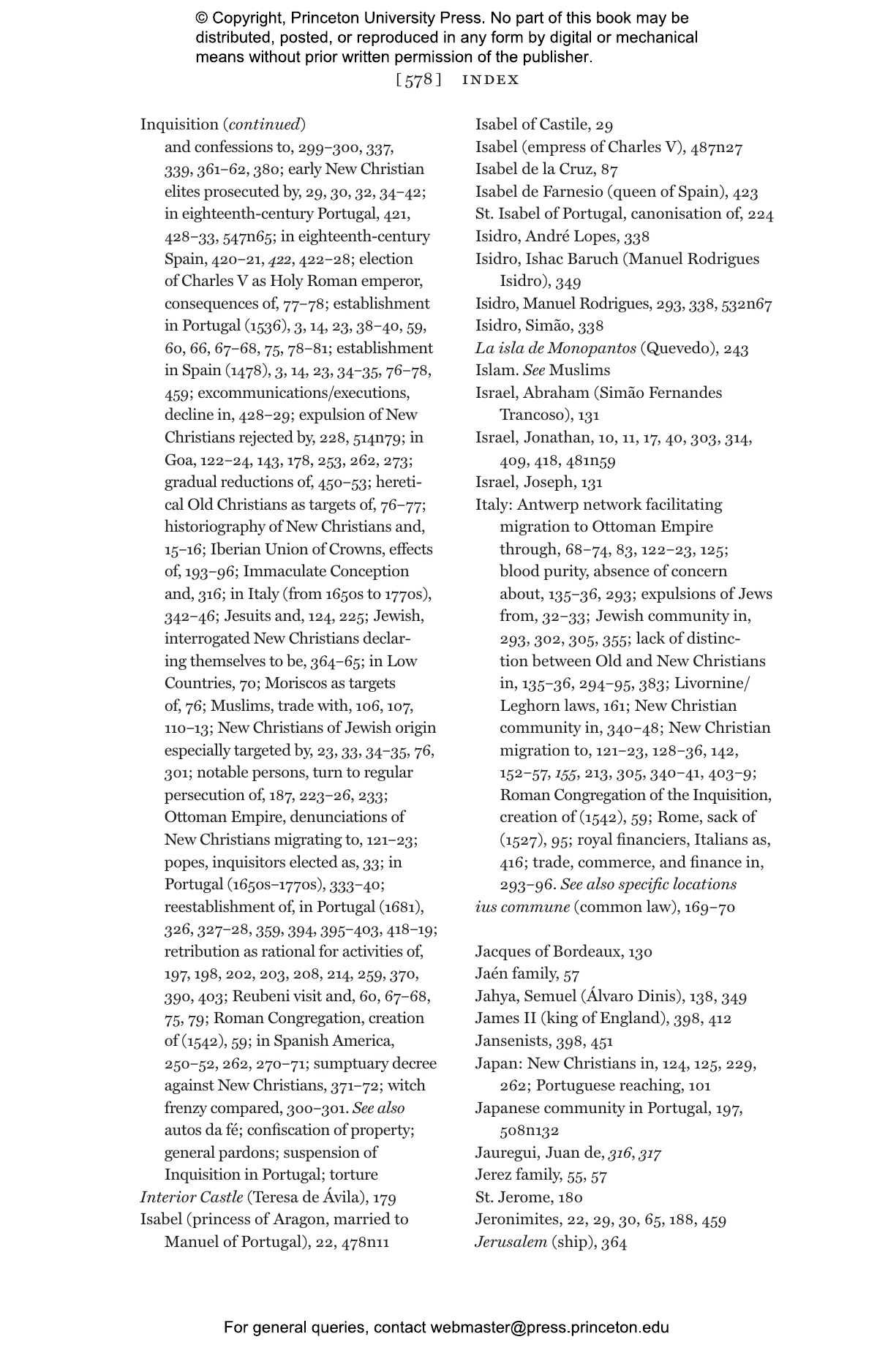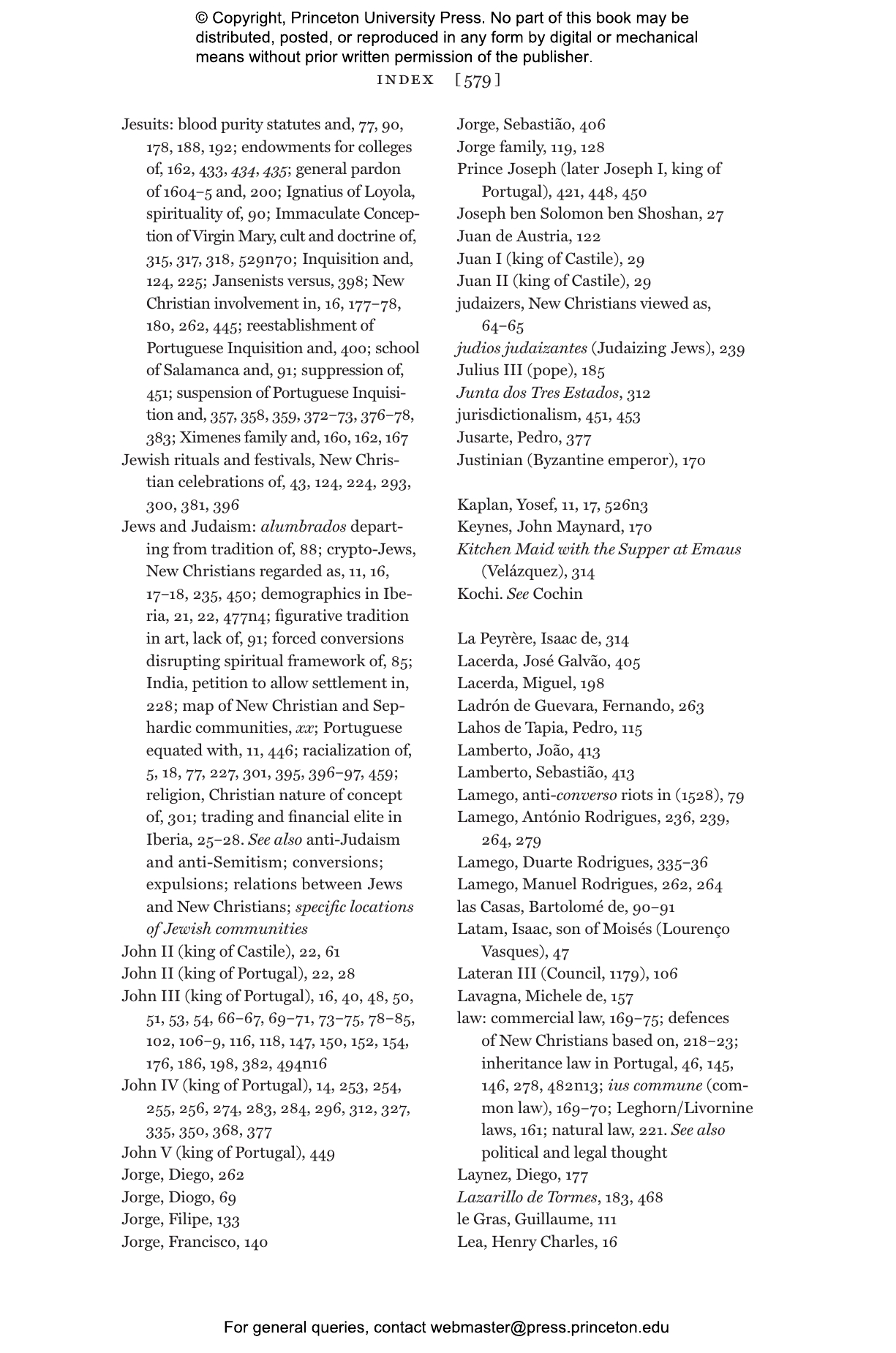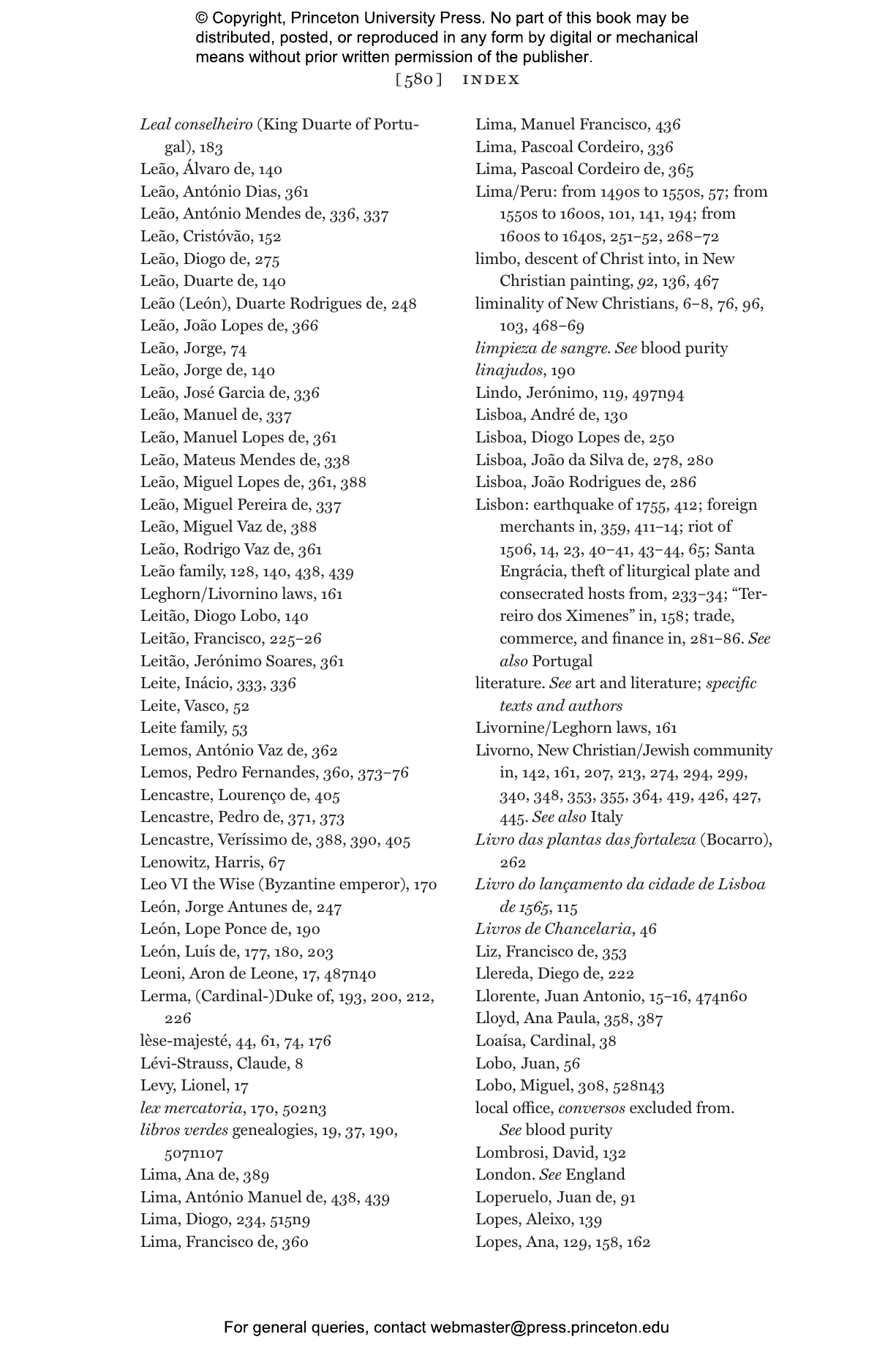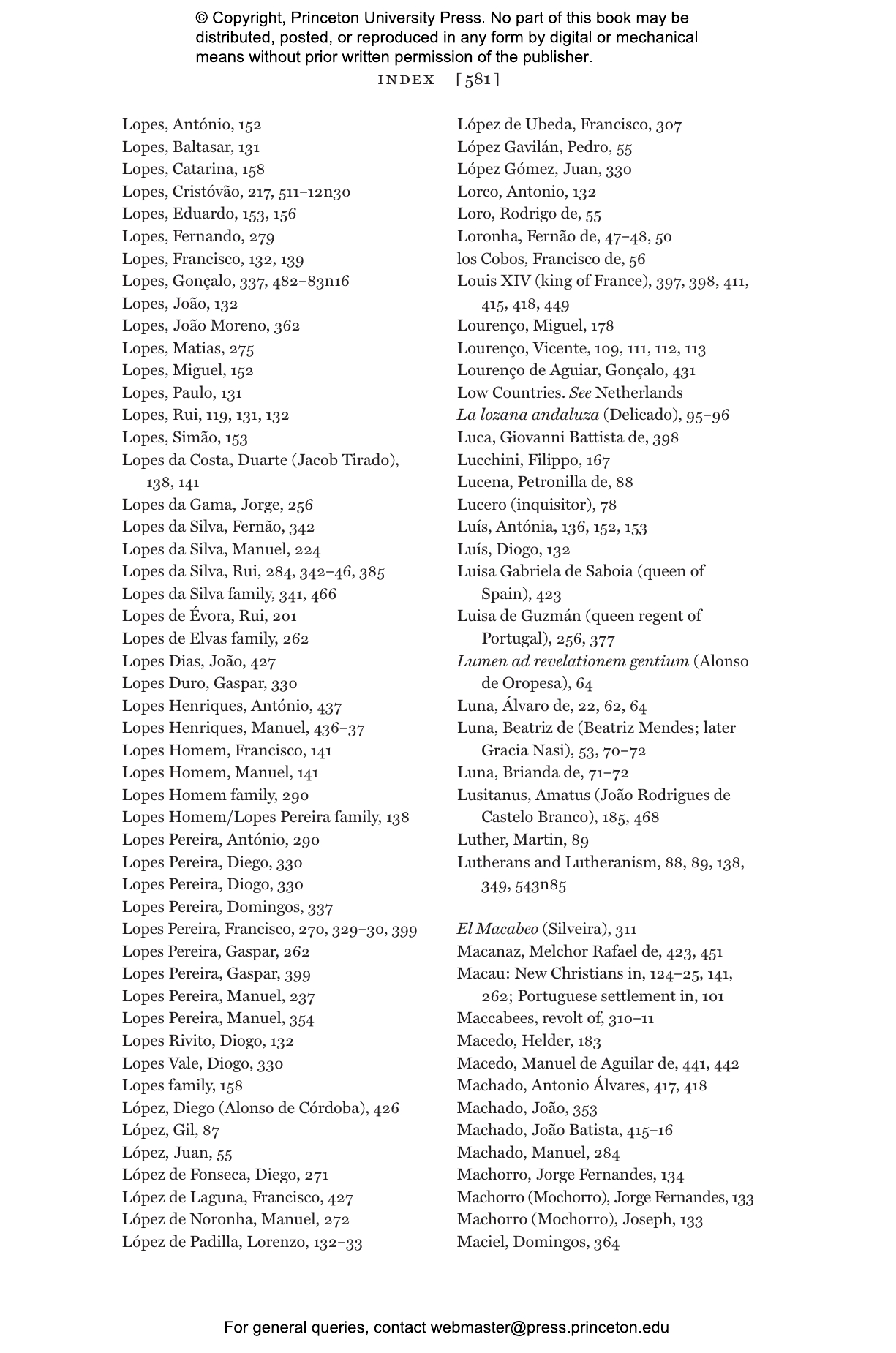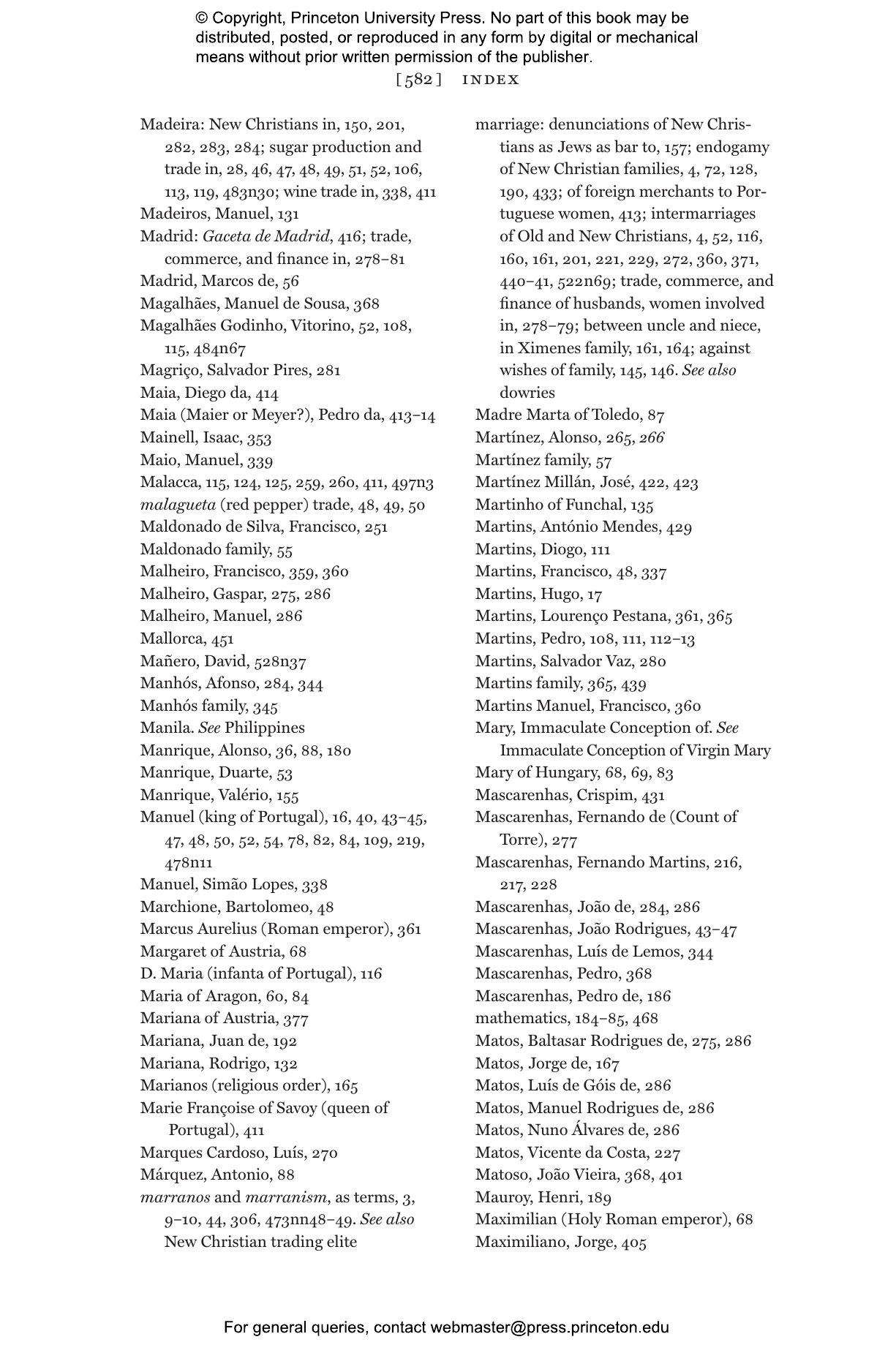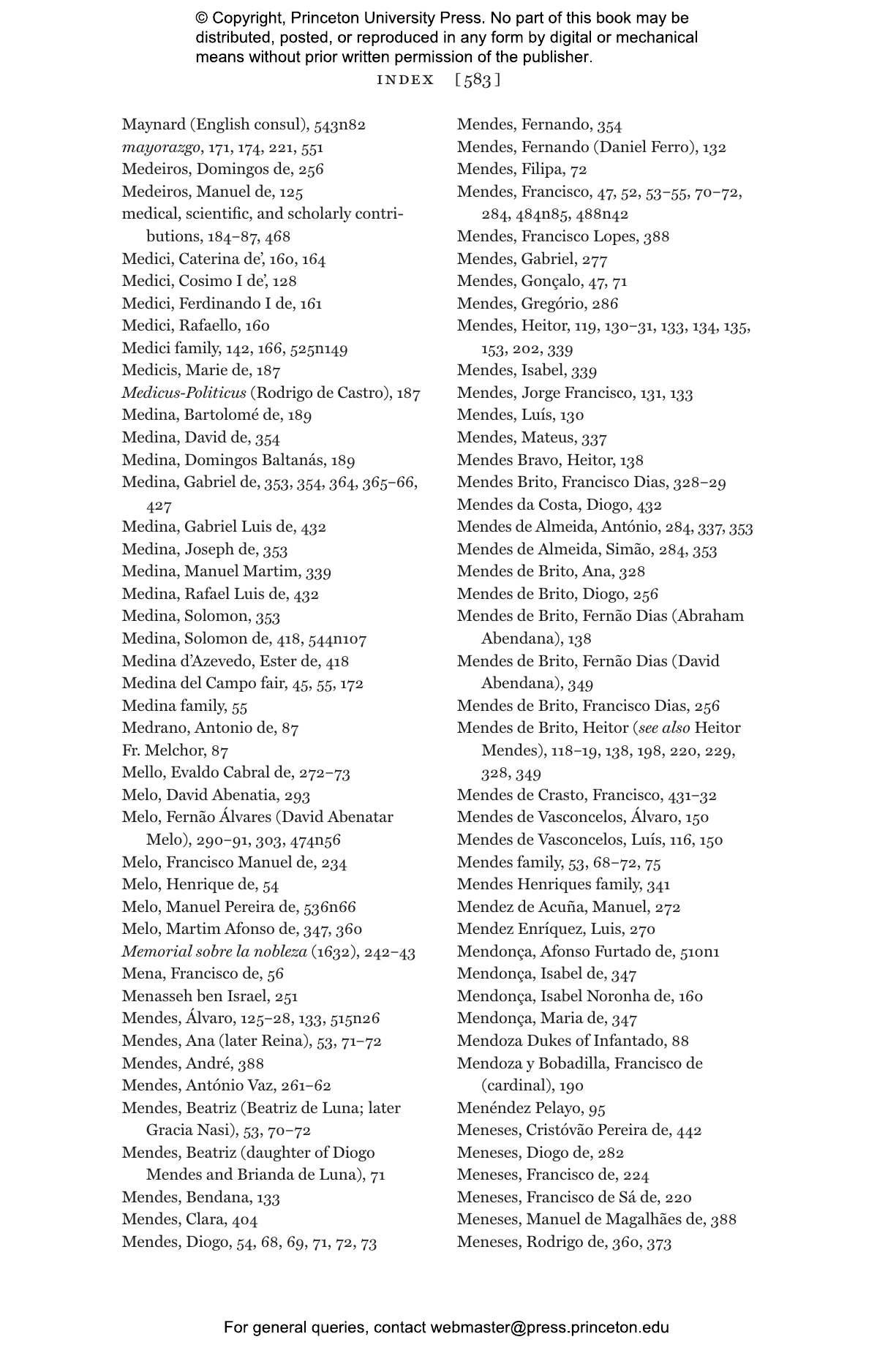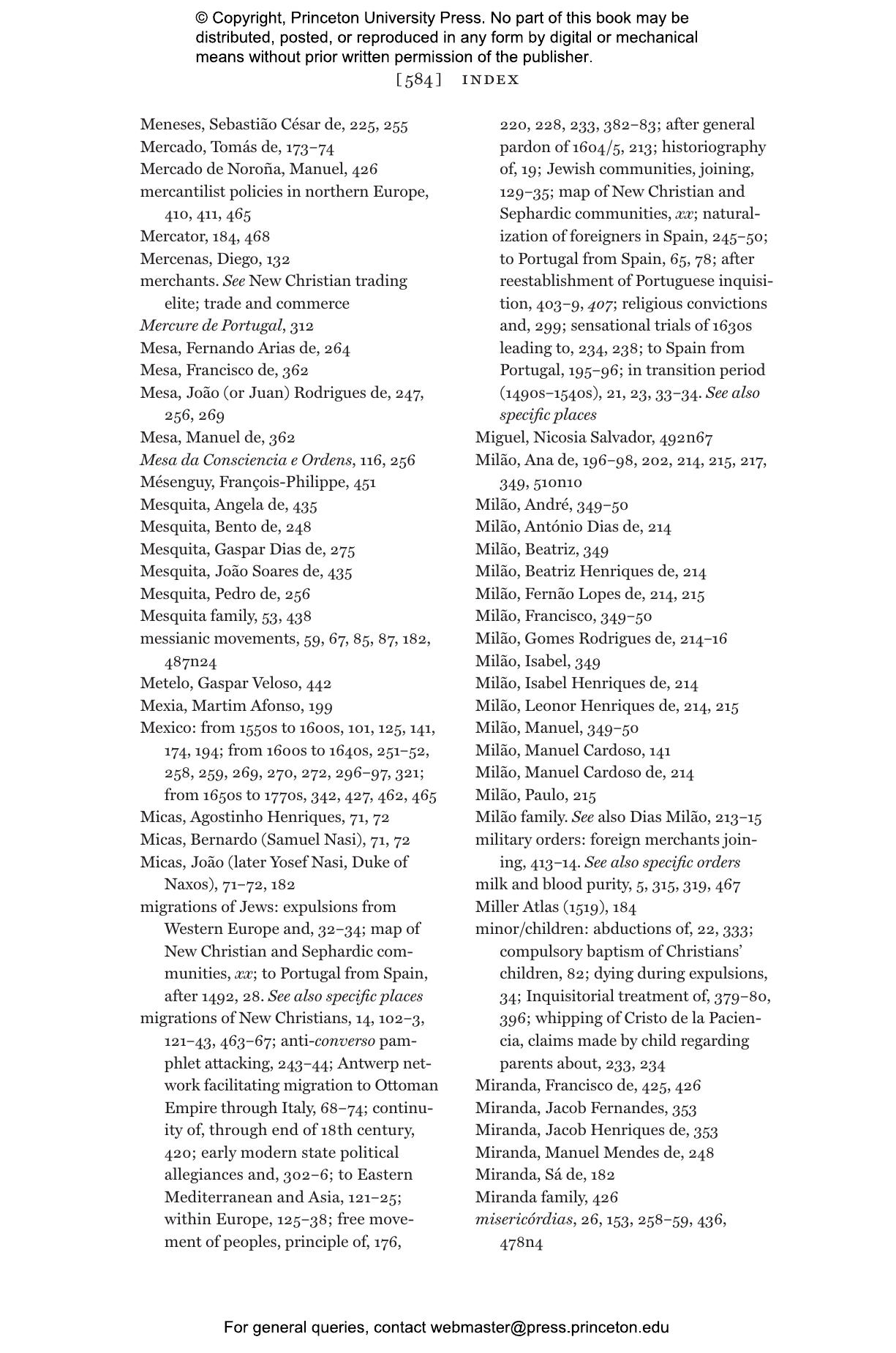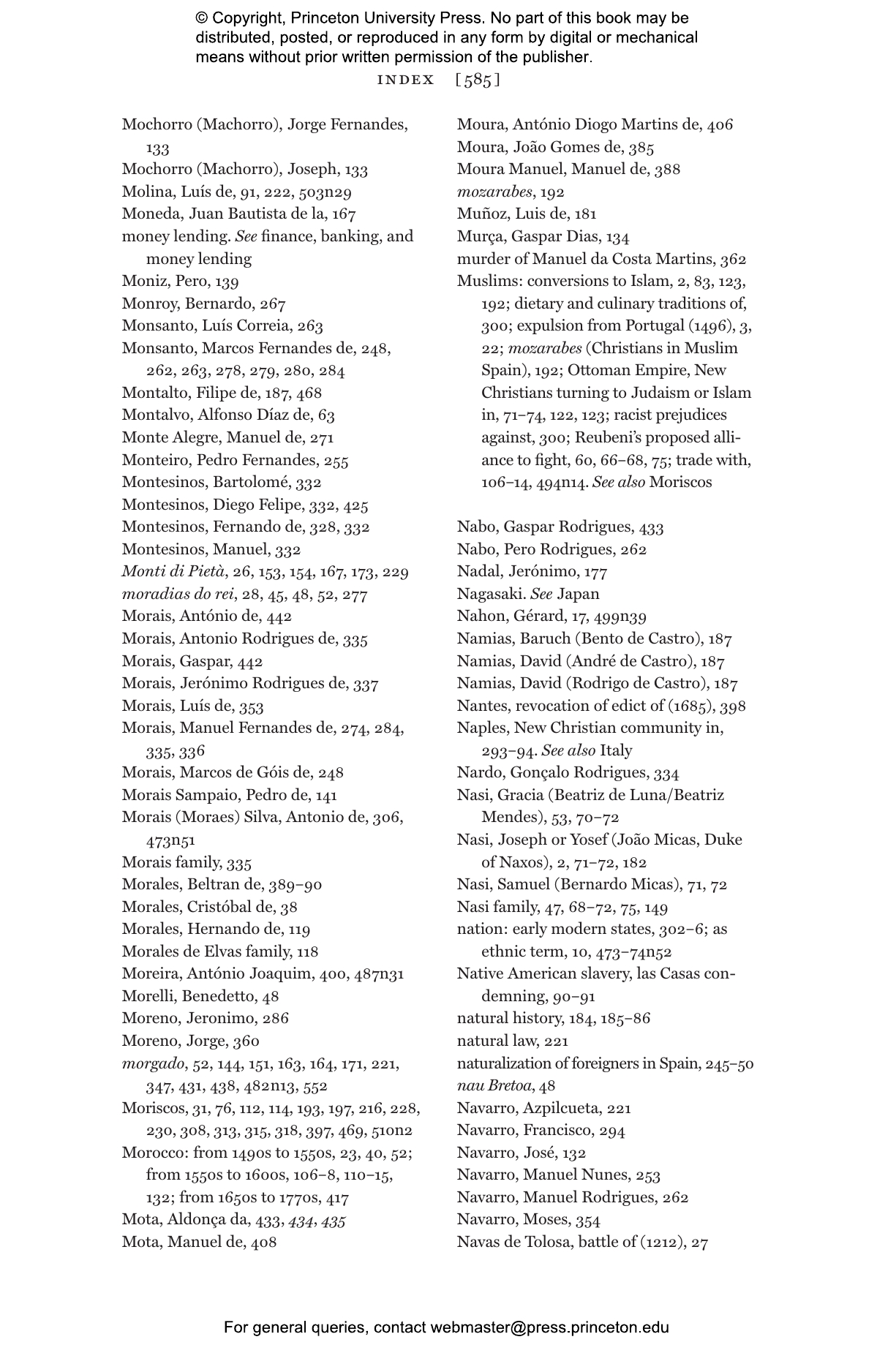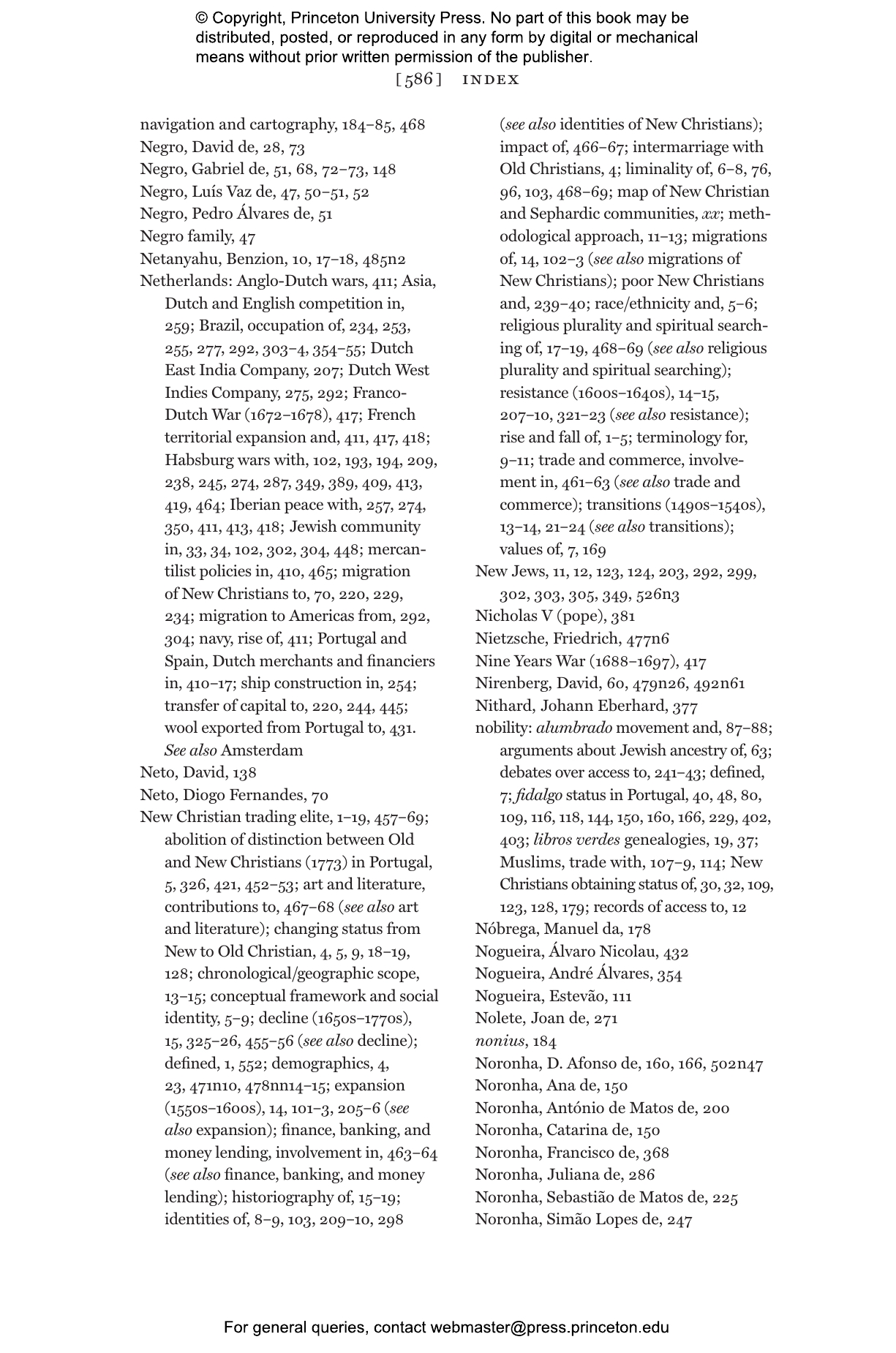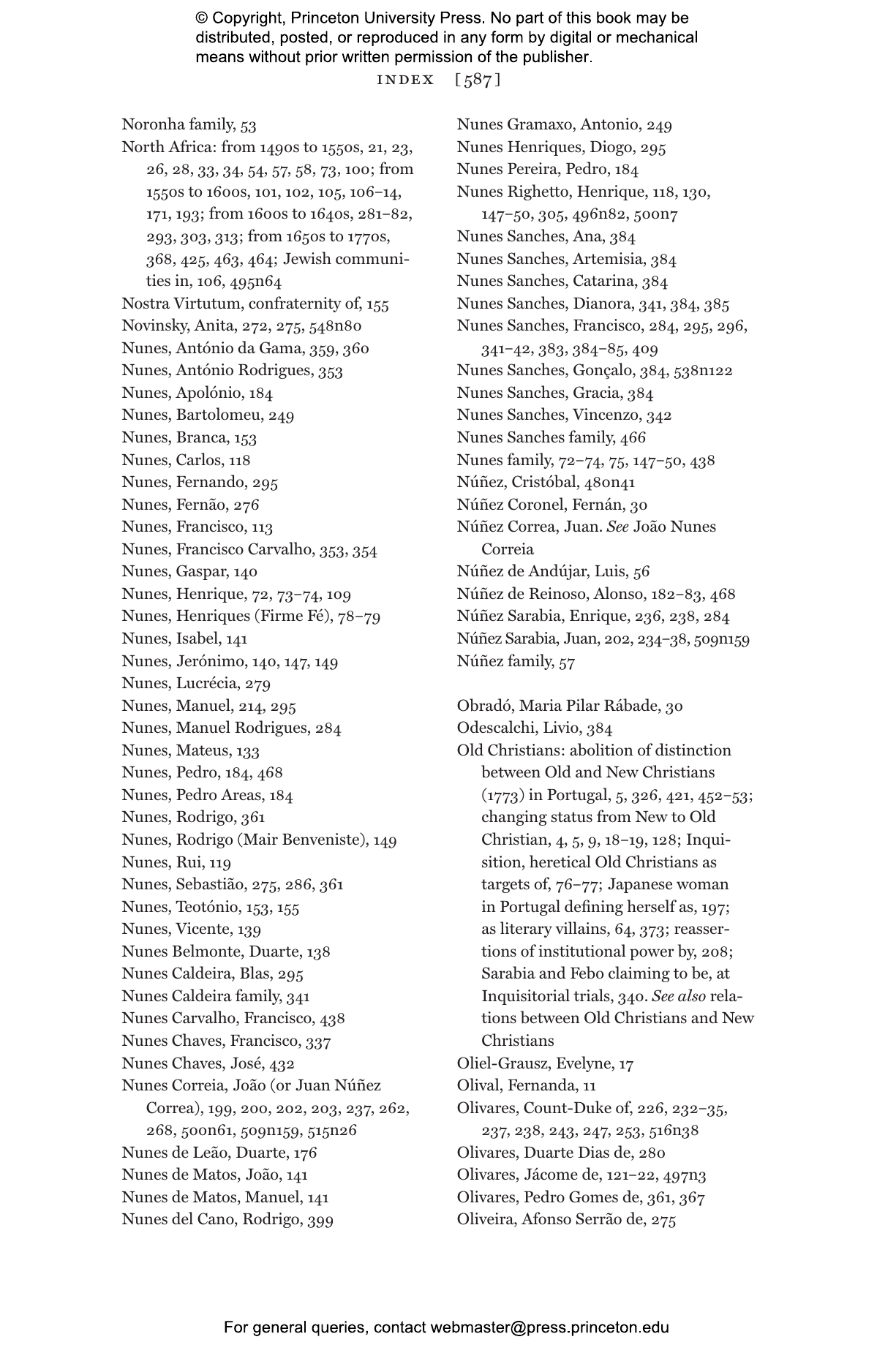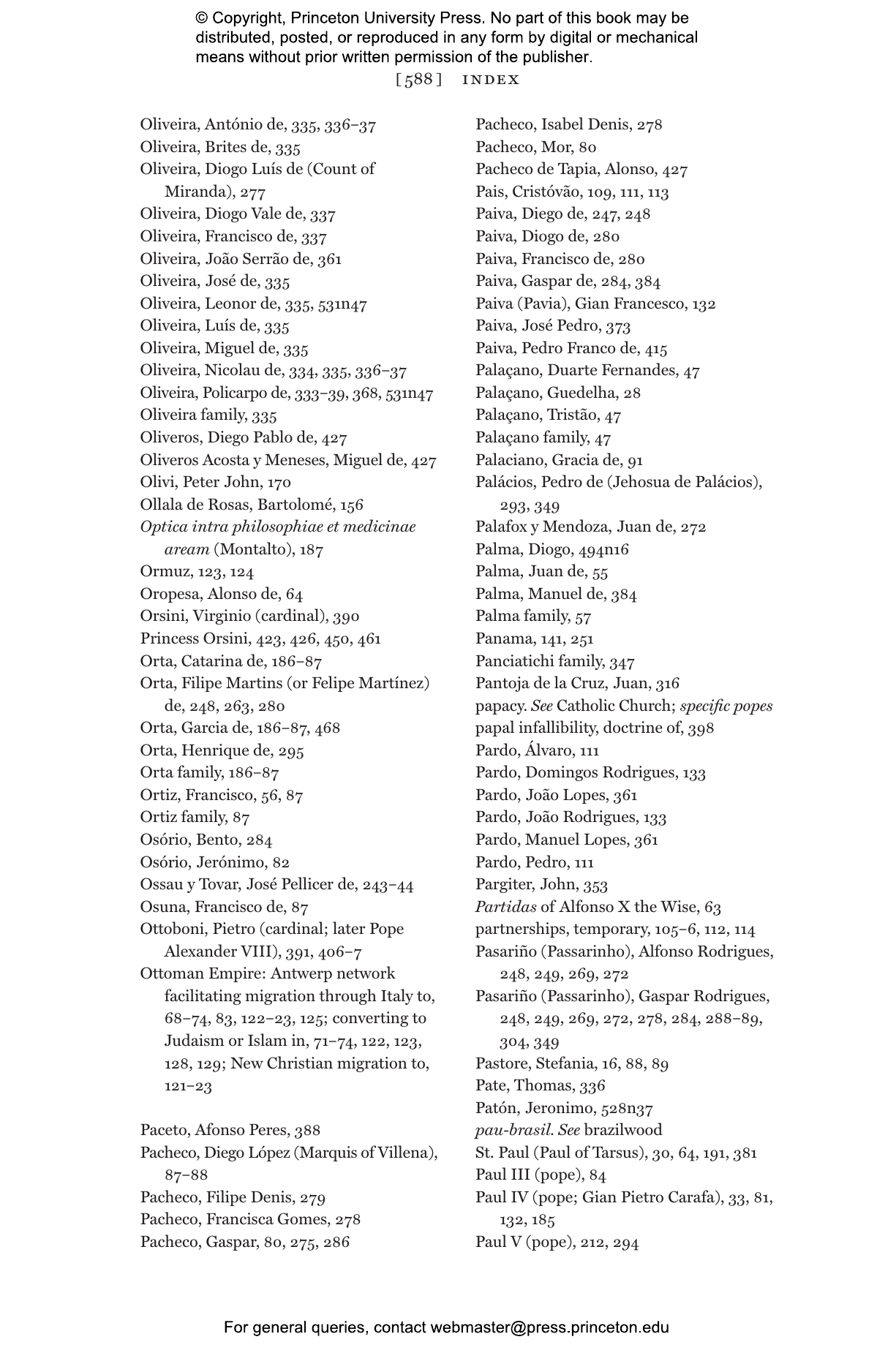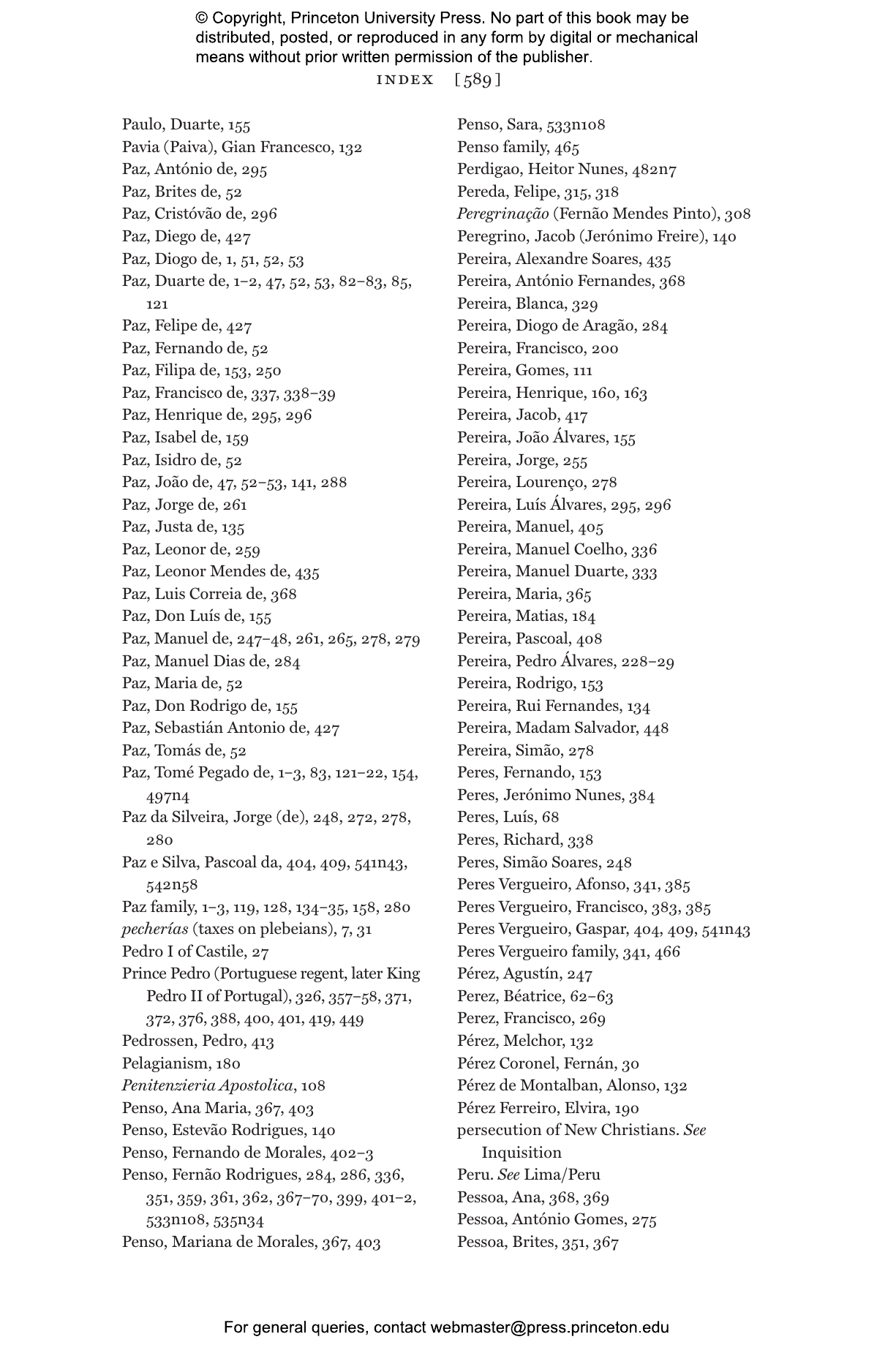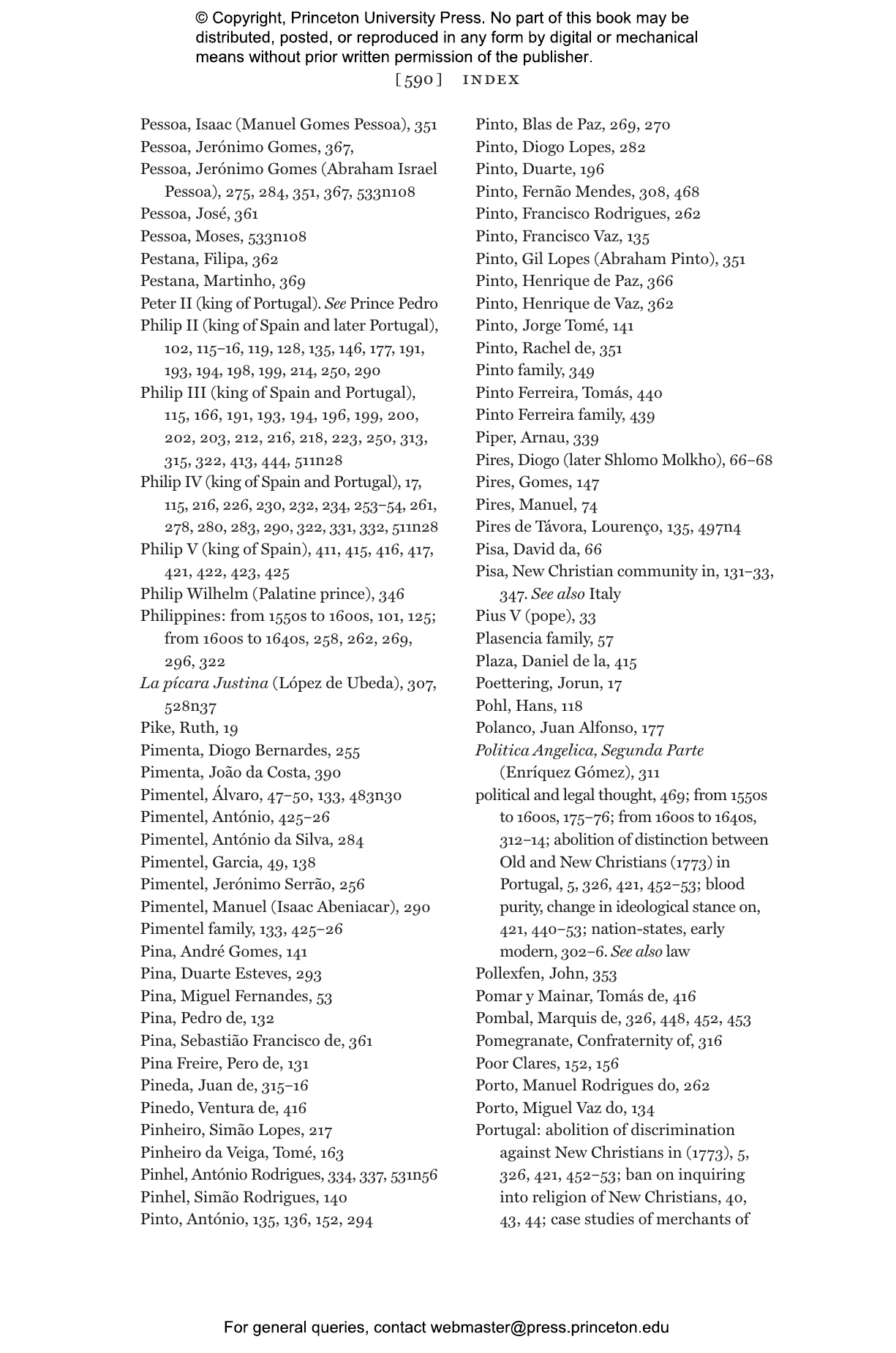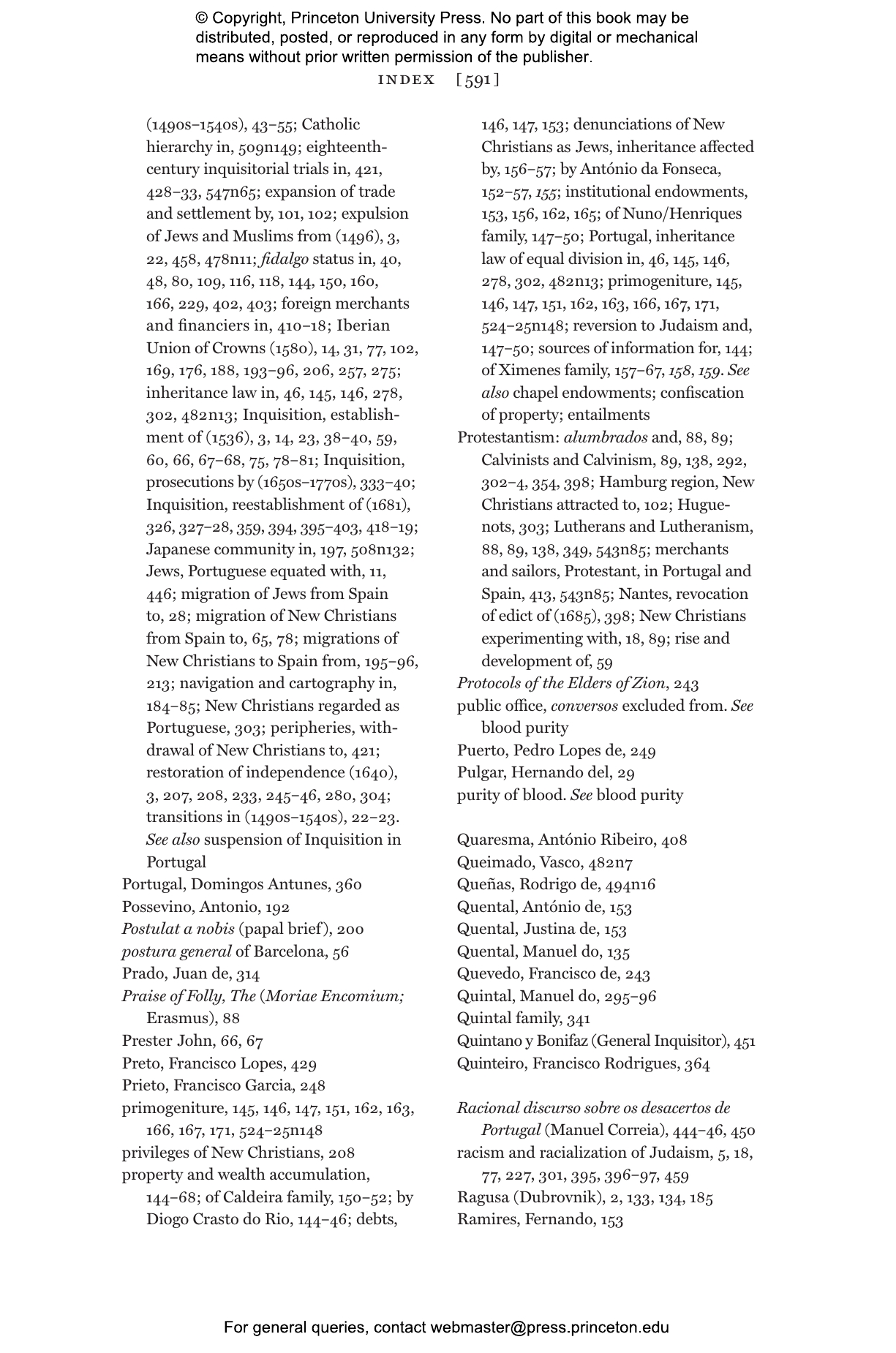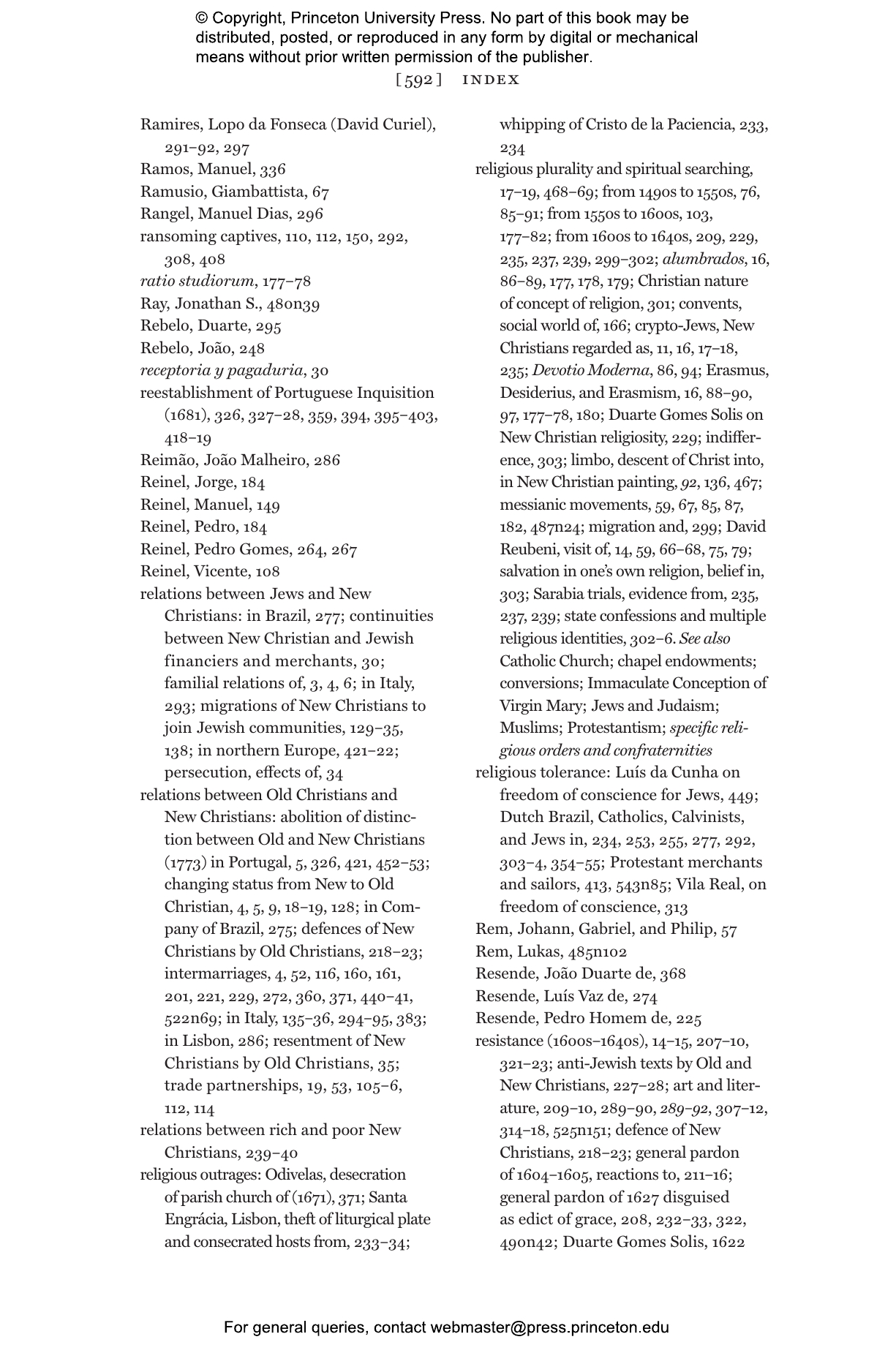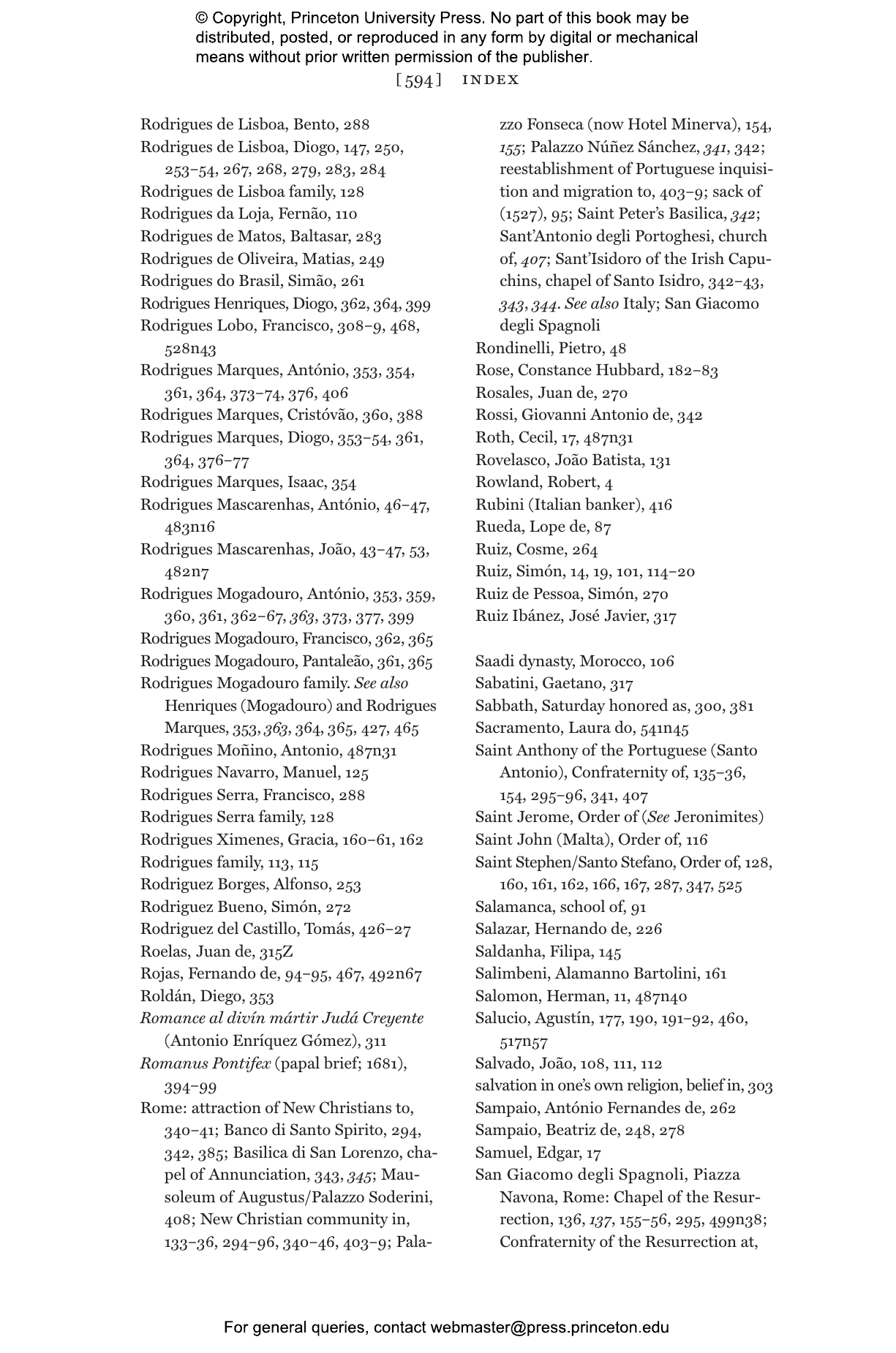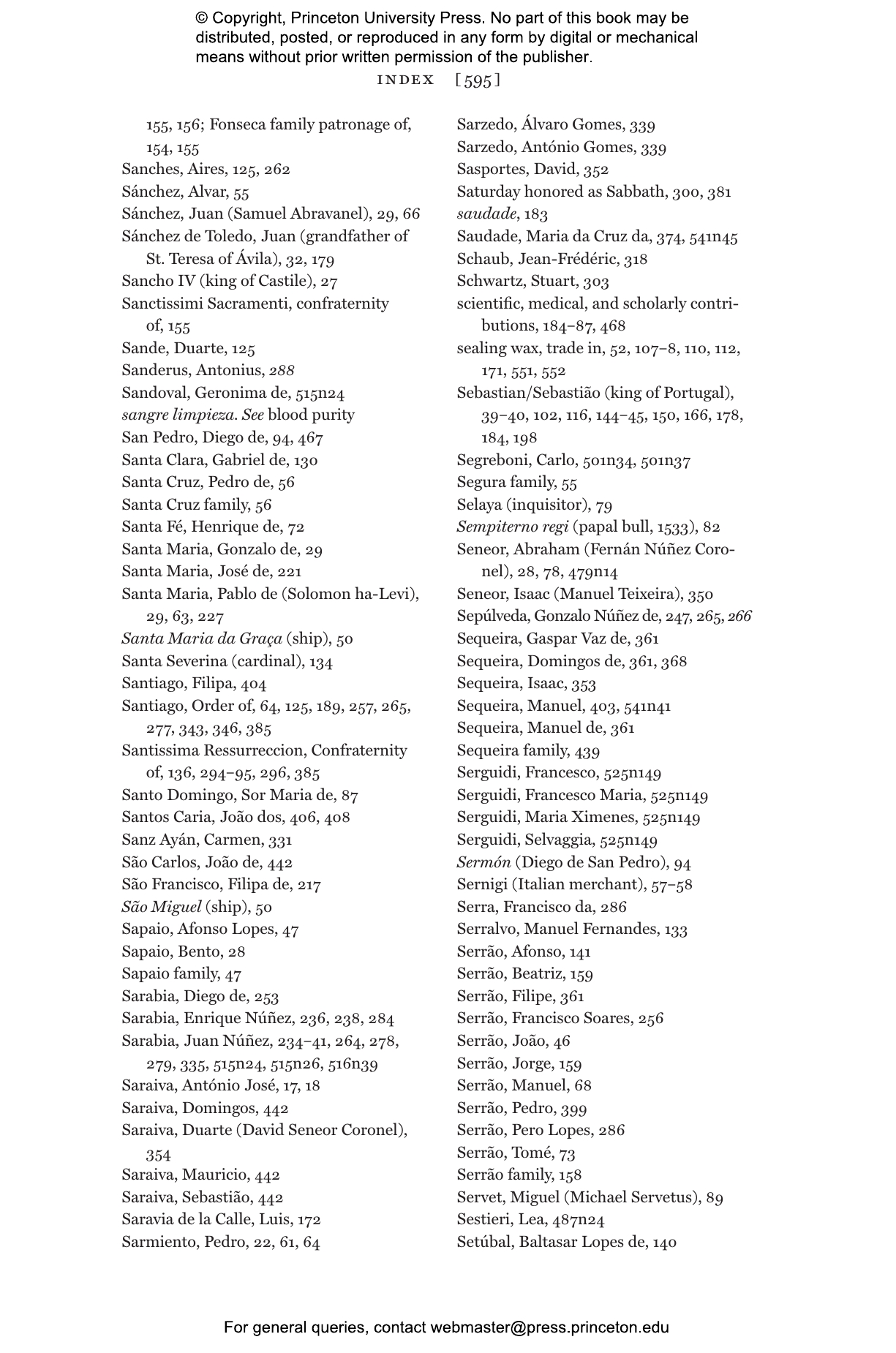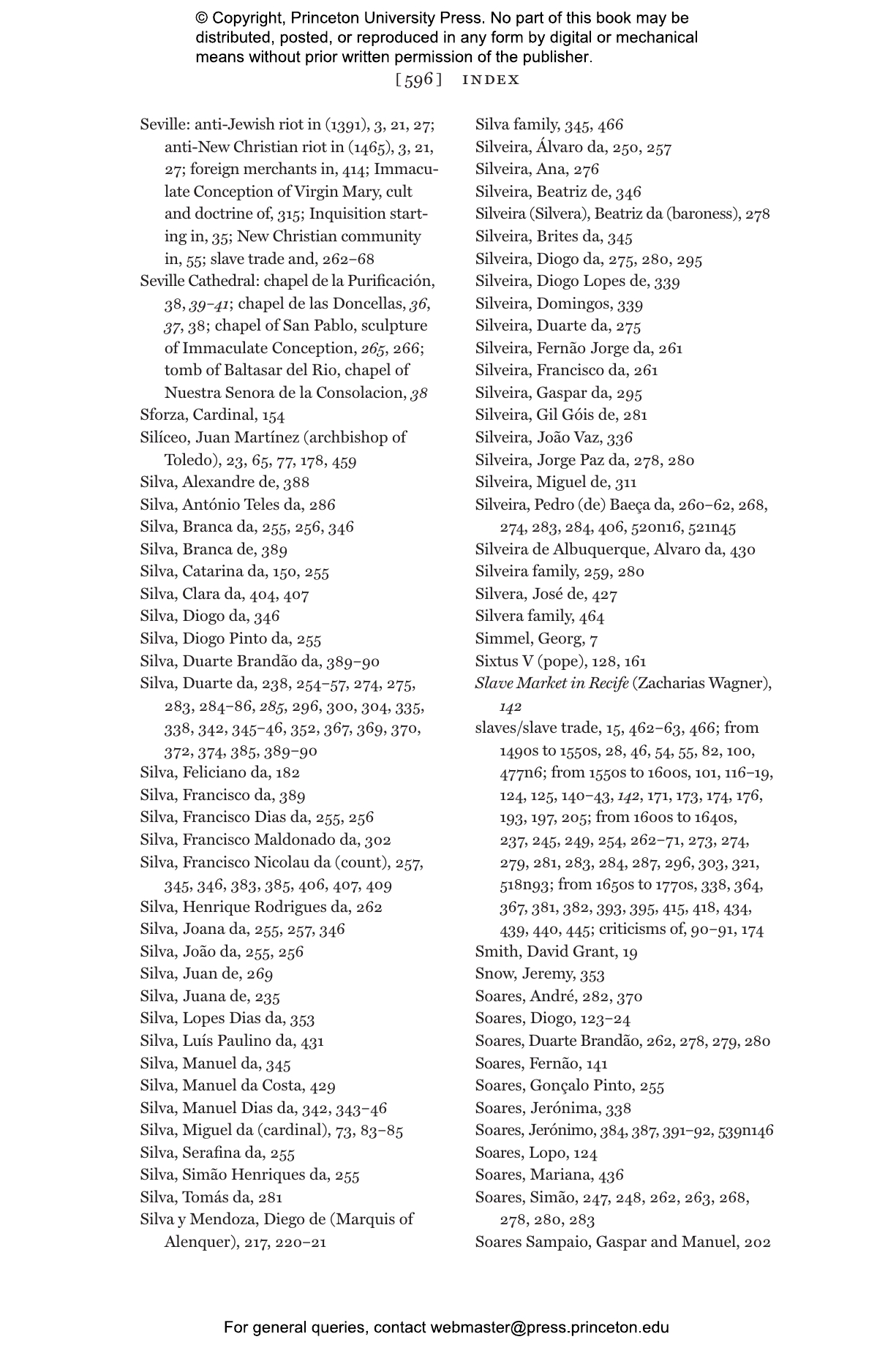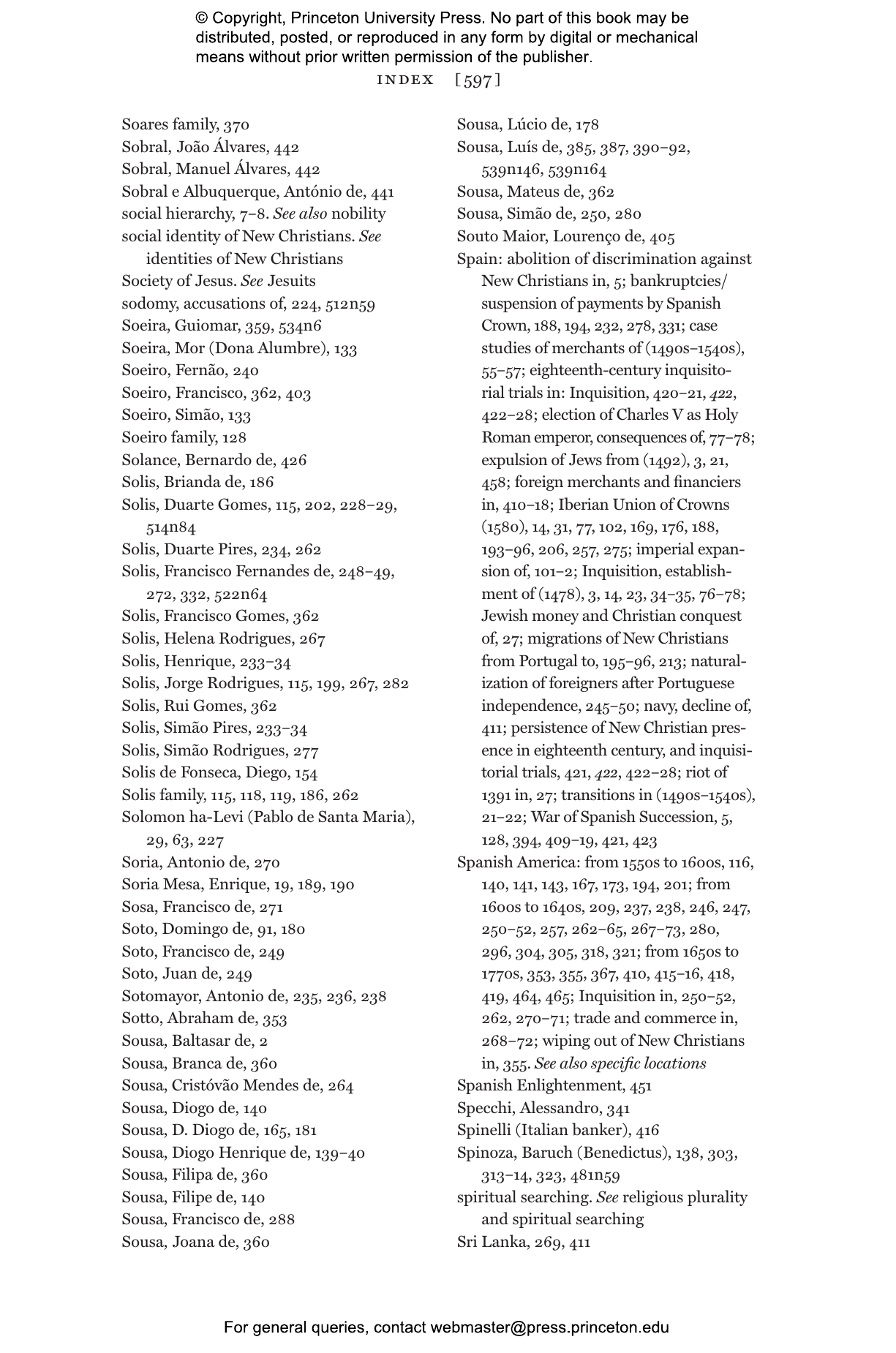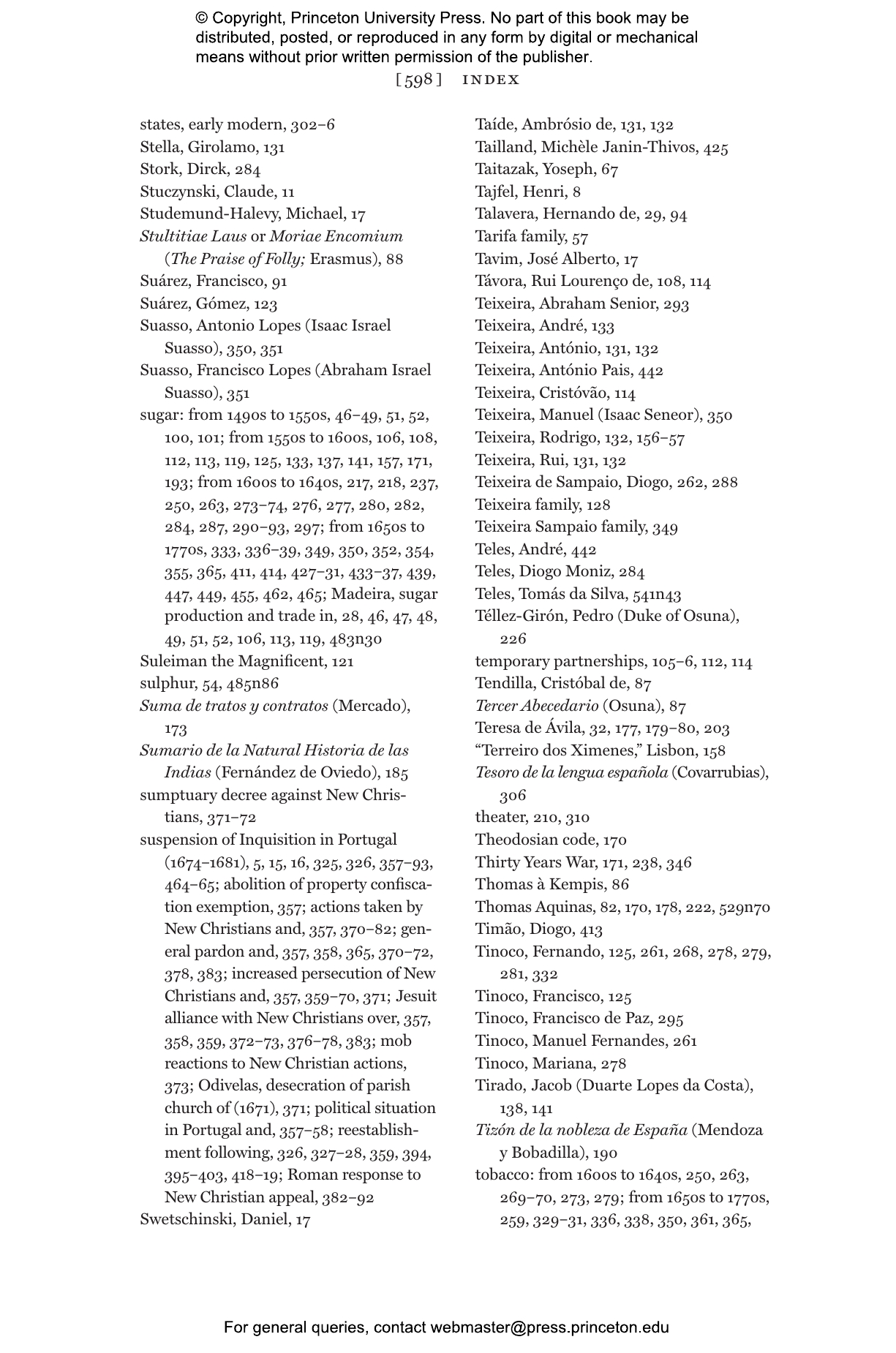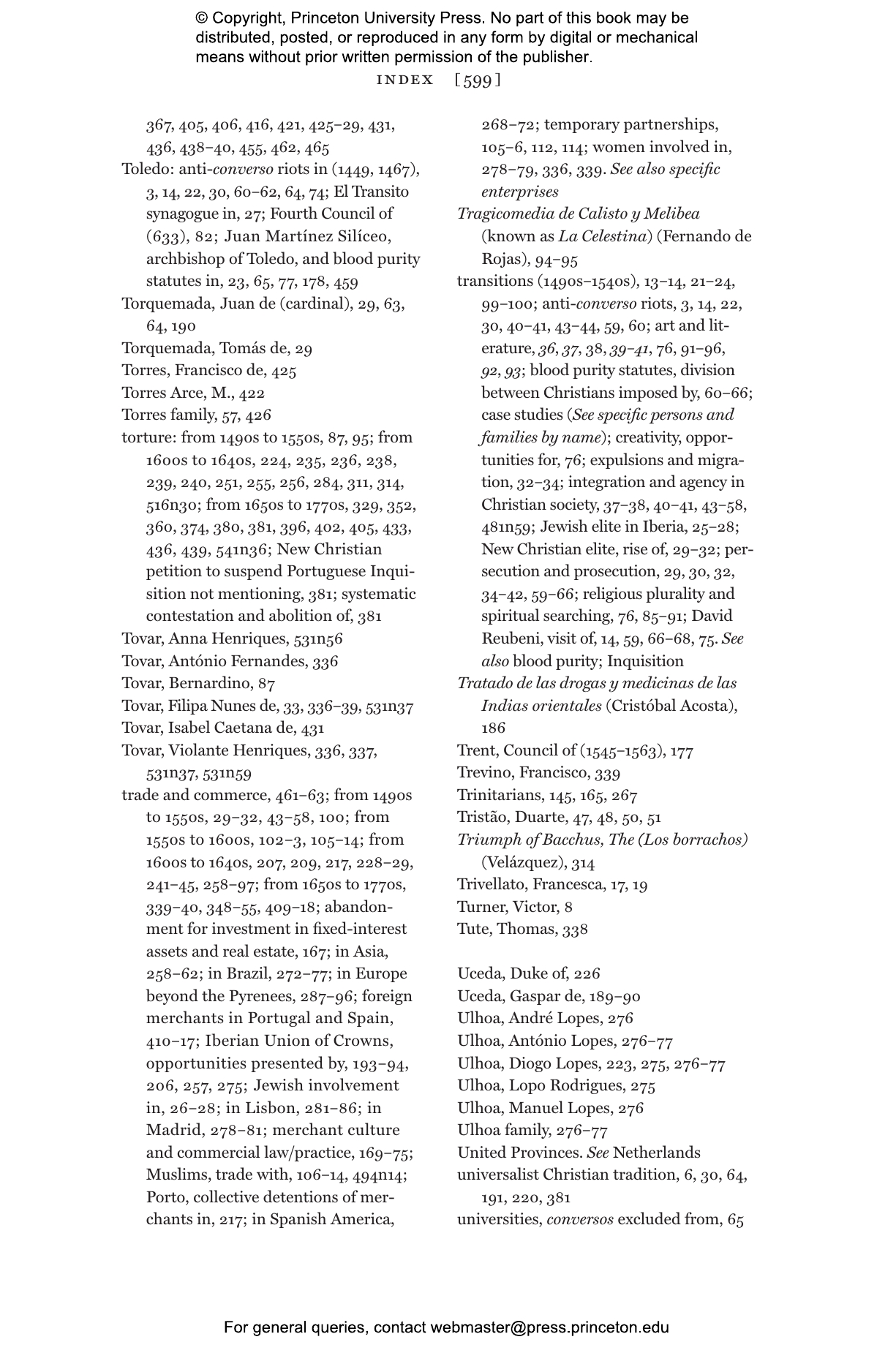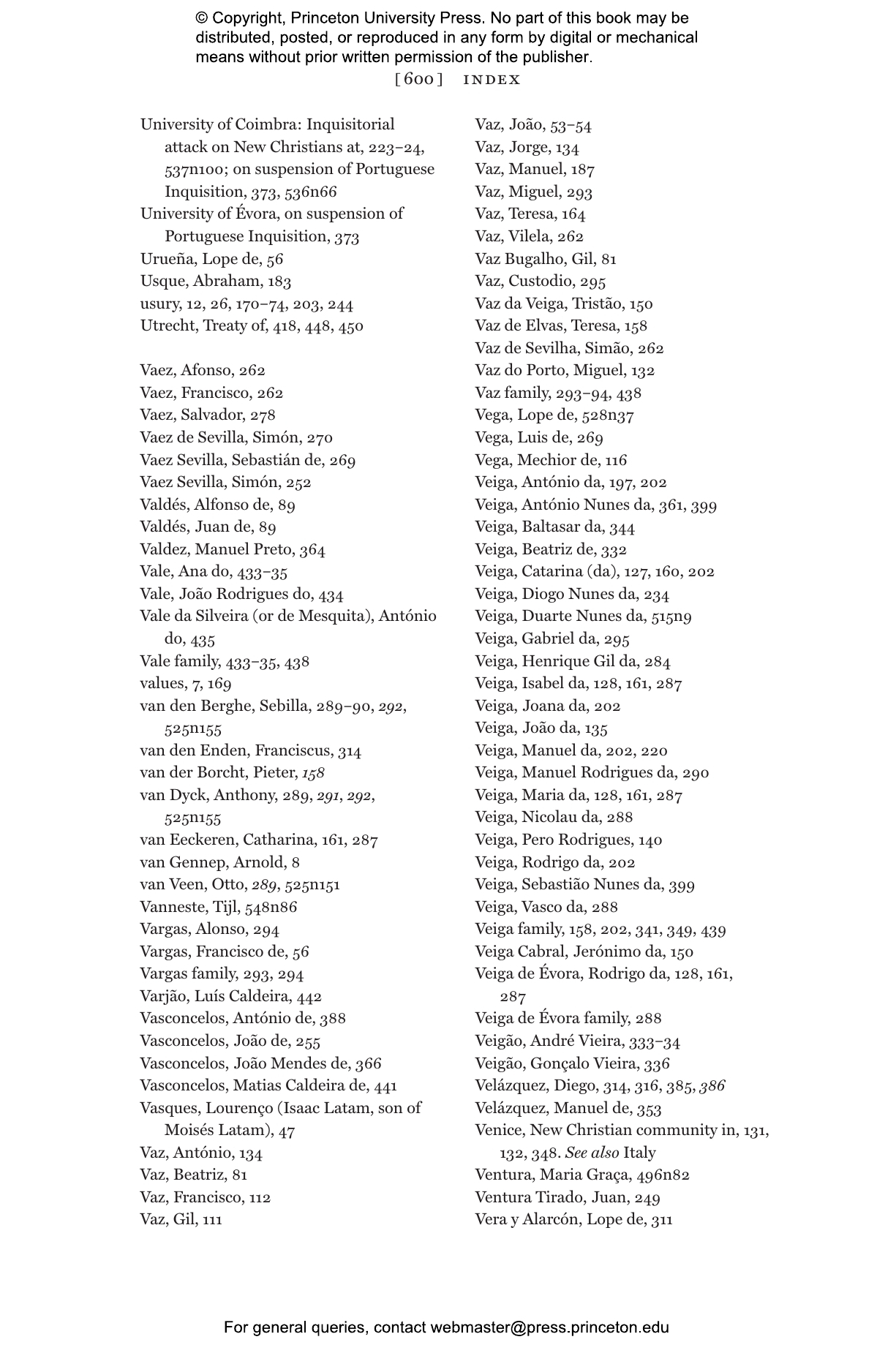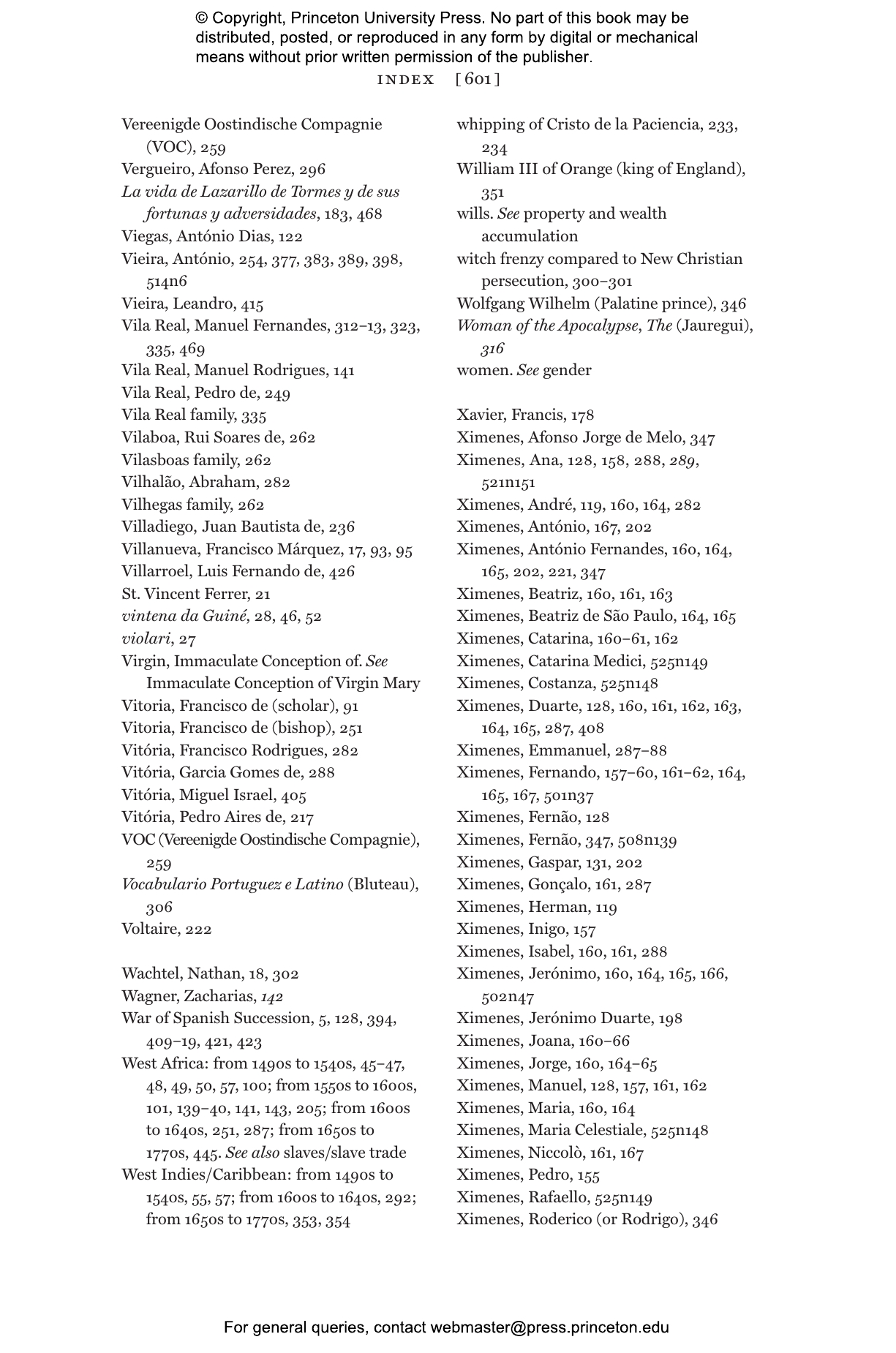In Strangers Within, Francisco Bethencourt provides the first comprehensive history of New Christians, the descendants of Jews forced to convert to Catholicism in late medieval Spain and Portugal. Bethencourt estimates that there were around 260,000 New Christians by 1500—more than half of Iberia’s urban population. The majority stayed in Iberia but a significant number moved throughout Europe, Africa, the Middle East, coastal Asia and the New World. They established Sephardic communities in North Africa, the Ottoman Empire, Italy, Amsterdam, Hamburg and London. Bethencourt focuses on the elite of bankers, financiers and merchants from the fifteenth to the eighteenth centuries and the crucial role of this group in global trade and financial services. He analyses their impact on religion (for example, Teresa de Ávila), legal and political thought (Las Casas), science (Amatus Lusitanus), philosophy (Spinoza) and literature (Enríquez Gomez).
Drawing on groundbreaking research in eighteen archives and library manuscript departments in six different countries, Bethencourt argues that the liminal position in which the New Christians found themselves explains their rise, economic prowess and cultural innovation. The New Christians created the first coherent legal case against the discrimination of a minority singled out for systematic judicial inquiry. Cumulative inquisitorial prosecution, coupled with structural changes in international trade, led to their decline and disappearance as a recognizable ethnicity by the mid-eighteenth century. Strangers Within tells an epic story of persecution, resistance and the making of Iberia through the oppression of one of the most powerful minorities in world history. Packed with genealogical information about families, their intercontinental networks, their power and their suffering, it is a landmark study.
Awards and Recognition
- A Times Literary Supplement Best Book of the Year
Francisco Bethencourt is the Charles Boxer Professor of History at King’s College London. He is the author of Racisms: From the Crusades to the Twentieth Century (Princeton) and The Inquisition: A Global History, 1478–1834.
"It is a book to which people cannot remain indifferent. He voices strong views on his sources and current literature on Early Modern Jewish, Sephardic and New Christian communities worldwide, and challenges entrenched ideas, particularly in Iberian scholarship, about the New Christians and their place in society. Scholars will be talking about this book for the years to come, and heated debate will ensue, I am confident, for the general betterment of scholarship in this and related subjects."—Cátia Antunes, Ler Historia
"An expansive look at one of the most influential and enigmatic communities of the early modern world. . . . Strangers Within is a major contribution to early modern history that will no doubt remain a landmark study of its subject for years to come."—Jonathan Ray, The Catholic Historical Review
"[A] richly researched work on a huge subject: the world of the “New Christians” (converted Iberian Jews), and their widely scattered financial and mercantile diaspora, from the fifteenth century to the eighteenth."—Noel Malcolm, Times Literary Supplement
“The prodigious research behind this book represents what is undoubtedly a staggering achievement. Bethencourt’s career-long familiarity with the archives and operations of the Iberian inquisitions and extensive knowledge of its Roman counterpart, combined with his more recent work on racism, have given him a knowledge of the relevant scholarship which is surely unrivalled for both its depth and its breadth.”—Simon Ditchfield, University of York
“This is an important and erudite book. The author has done a magnificent job in integrating archival materials with the existing historiography in certain areas of the field and in the printed documentation on a topic of great interest to a number of areas in religious, intellectual, economic and social history.”—Stuart Schwartz, Yale University
“Among its many achievements, this book avoids essentializing the almost three-century history of the New Christian merchant elite. Issues of identity, religious allegiance, economic and social opportunities, political and institutional regulations and cultural innovation provide the context for many different case studies. Bethencourt’s analysis of the disappearance of the New Christians as an ethnic elite at the end of the eighteenth century illuminates in new ways why and how this group came into existence as well as how it came to play such a pivotal role in international trade across continents and centuries.”—Mercedes García-Arenal, author of Polemical Encounters: Christians, Jews, and Muslims in Iberia and Beyond
“Bethencourt tackles a complex and divisive topic head-on. Specialists will have to contend with his learned and wide-ranging exposition. All readers will find here insights into an urgent scholarly debate: the early and diverse historical manifestations of race thinking.”—Francesca Trivellato, author of The Promise and Peril of Credit: What a Forgotten Legend about Jews and Finance Tells Us about the Making of European Commercial Society
“There may not be a more important topic in Iberian history than the so-called New Christians. This bold new synthesis will reenergize scholarly and public debates on the very essence of what it means to be Spanish or Portuguese.”—Stefania Pastore, Scuola Normale Superiore di Pisa
